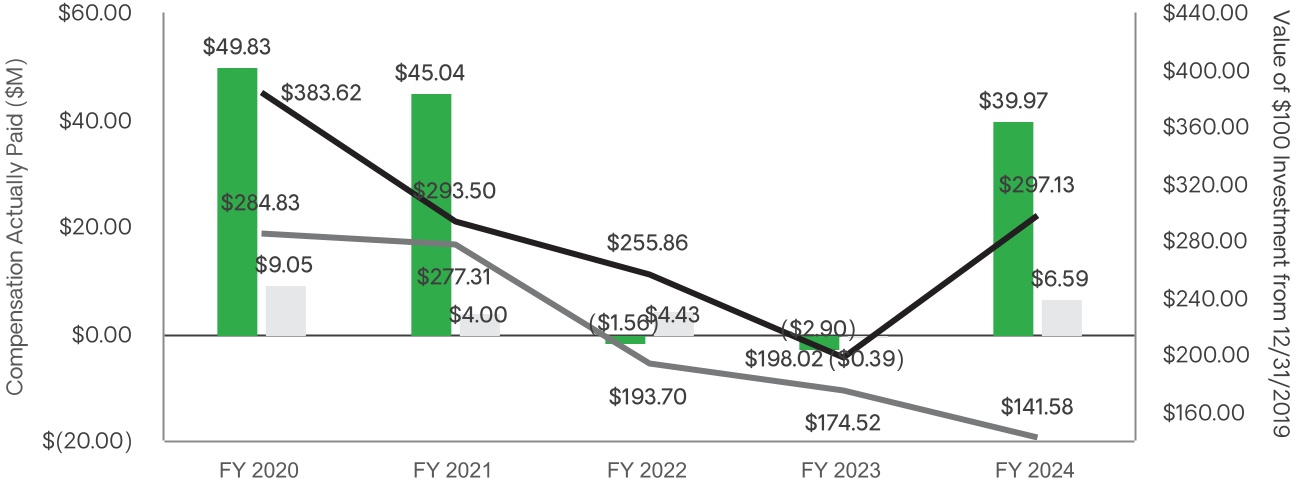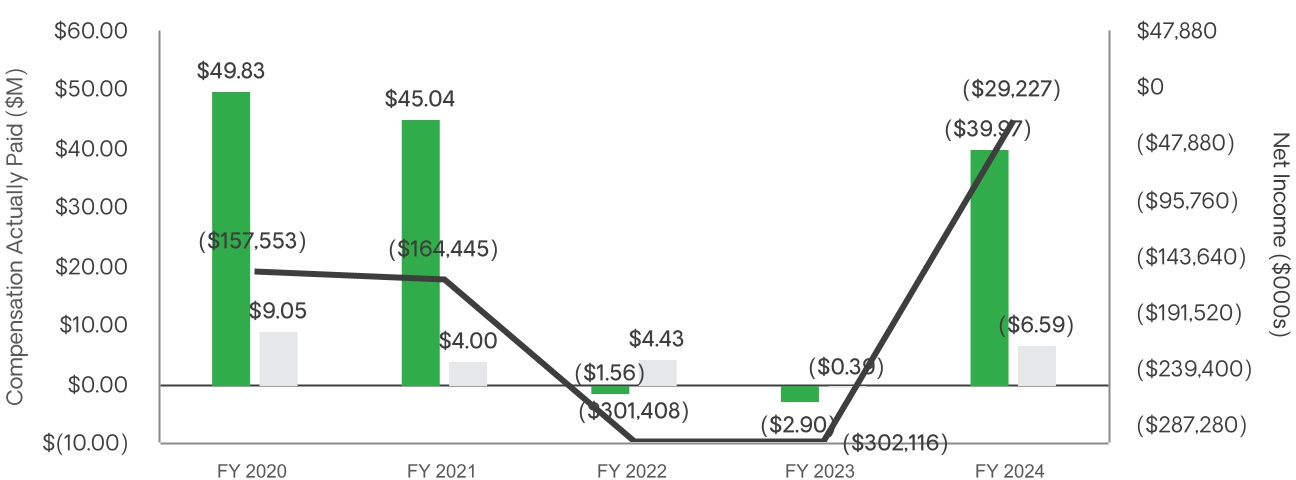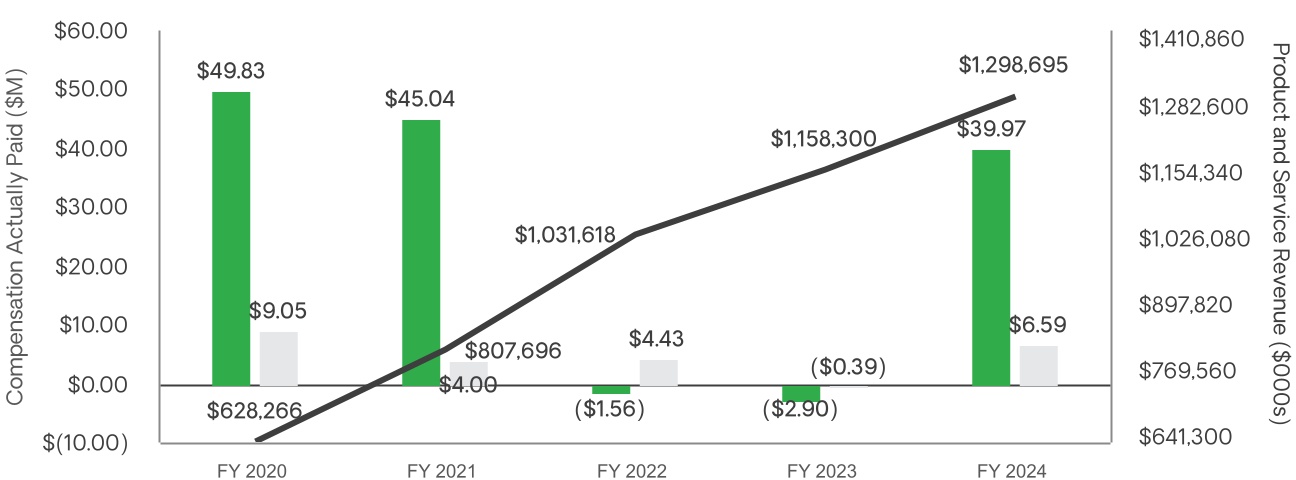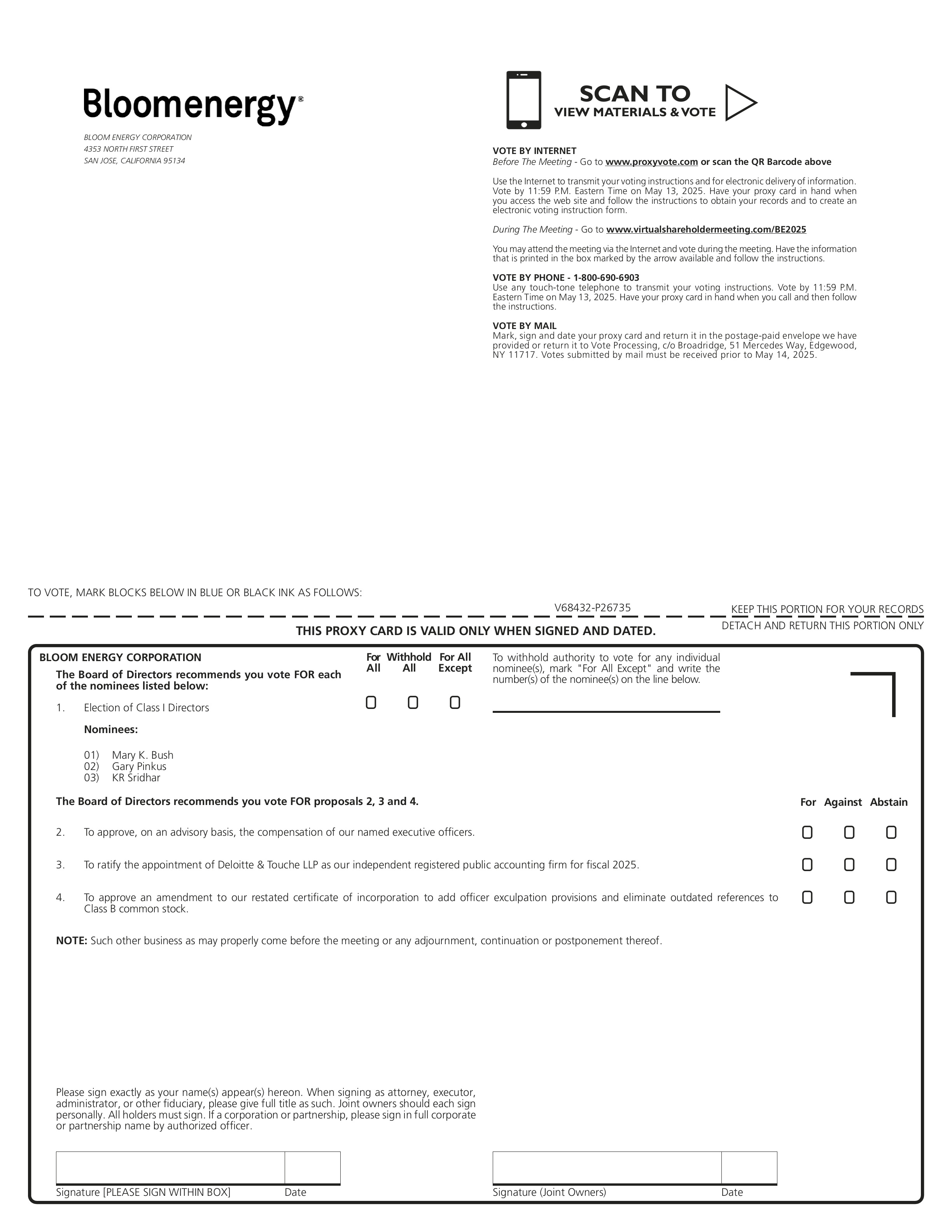Please wait
0001664703PRE 14AFALSEiso4217:USDxbrli:pure00016647032024-01-012024-12-3100016647032023-01-012023-12-3100016647032022-01-012022-12-3100016647032021-01-012021-12-3100016647032020-01-012020-12-310001664703ecd:EqtyAwrdsInSummryCompstnTblForAplblYrMemberecd:PeoMember2024-01-012024-12-310001664703ecd:EqtyAwrdsAdjsExclgValRprtdInSummryCompstnTblMemberecd:PeoMember2024-01-012024-12-310001664703ecd:YrEndFrValOfEqtyAwrdsGrntdInCvrdYrOutsdngAndUnvstdMemberecd:PeoMember2024-01-012024-12-310001664703ecd:ChngInFrValOfOutsdngAndUnvstdEqtyAwrdsGrntdInPrrYrsMemberecd:PeoMember2024-01-012024-12-310001664703ecd:VstngDtFrValOfEqtyAwrdsGrntdAndVstdInCvrdYrMemberecd:PeoMember2024-01-012024-12-310001664703ecd:ChngInFrValAsOfVstngDtOfPrrYrEqtyAwrdsVstdInCvrdYrMemberecd:PeoMember2024-01-012024-12-310001664703ecd:FrValAsOfPrrYrEndOfEqtyAwrdsGrntdInPrrYrsFldVstngCondsDrngCvrdYrMemberecd:PeoMember2024-01-012024-12-310001664703ecd:DvddsOrOthrErngsPdOnEqtyAwrdsNtOthrwsRflctdInTtlCompForCvrdYrMemberecd:PeoMember2024-01-012024-12-310001664703ecd:EqtyAwrdsInSummryCompstnTblForAplblYrMemberecd:NonPeoNeoMember2024-01-012024-12-310001664703ecd:EqtyAwrdsAdjsExclgValRprtdInSummryCompstnTblMemberecd:NonPeoNeoMember2024-01-012024-12-310001664703ecd:YrEndFrValOfEqtyAwrdsGrntdInCvrdYrOutsdngAndUnvstdMemberecd:NonPeoNeoMember2024-01-012024-12-310001664703ecd:ChngInFrValOfOutsdngAndUnvstdEqtyAwrdsGrntdInPrrYrsMemberecd:NonPeoNeoMember2024-01-012024-12-310001664703ecd:VstngDtFrValOfEqtyAwrdsGrntdAndVstdInCvrdYrMemberecd:NonPeoNeoMember2024-01-012024-12-310001664703ecd:ChngInFrValAsOfVstngDtOfPrrYrEqtyAwrdsVstdInCvrdYrMemberecd:NonPeoNeoMember2024-01-012024-12-310001664703ecd:FrValAsOfPrrYrEndOfEqtyAwrdsGrntdInPrrYrsFldVstngCondsDrngCvrdYrMemberecd:NonPeoNeoMember2024-01-012024-12-310001664703ecd:DvddsOrOthrErngsPdOnEqtyAwrdsNtOthrwsRflctdInTtlCompForCvrdYrMemberecd:NonPeoNeoMember2024-01-012024-12-31000166470312024-01-012024-12-31000166470322024-01-012024-12-31000166470332024-01-012024-12-31000166470342024-01-012024-12-31
UNITED STATES
SECURITIES AND EXCHANGE COMMISSION
Washington, D.C. 20549
SCHEDULE 14A
Proxy Statement Pursuant to Section 14(a) of the
Securities Exchange Act of 1934 (Amendment No. )
| | | | | |
☑ Filed by the Registrant | ☐ Filed by a party other than the Registrant |
CHECK THE APPROPRIATE BOX:
| | | | | |
| |
| | |
| ☑ | Preliminary Proxy Statement |
| |
| ☐ | Confidential, for Use of the Commission Only (as permitted by Rule 14a-6(e)(2)) |
| | |
| ☐ | Definitive Proxy Statement |
| | |
| ☐ | Definitive Additional Materials |
| | |
| ☐ | Soliciting Material under §240.14a-12 |
Bloom Energy Corp.
(Name of Registrant as Specified In Its Charter)
(Name of Person(s) Filing Proxy Statement, if other than the Registrant)
PAYMENT OF FILING FEE (CHECK ALL BOXES THAT APPLY):
| | | | | |
| |
| | |
☑ | No fee required |
| | |
| ☐ | Fee paid previously with preliminary materials |
| | |
| ☐ | Fee computed on table in exhibit required by Item 25(b) per Exchange Act Rules 14a-6(i)(1) and 0-1 1 |
PRELIMINARY PROXY STATEMENT— SUBJECT TO COMPLETION
Bloom Energy Server
Meets AI Data Center Needs
| | | | | | | | | | | | | | | | | | | | |
Fast Time To Power Available in as little as 90 days. Skid-mounted power units, capable of generating hundreds of megawatts, can be deployed quickly and redeployed to other locations. | | Highly Reliable and Efficient Achieve from 3-9s to 5-9s of reliability. Lower fuel costs due to high efficiency. | | Load Following Sub-Cycle scale response time that adapts to changing workloads. | | Sustainability Lower emissions vs combustion-based generation. Negligible air pollutants (NOx, SOx). |
| | | | | | | | | | | | | | |
Future Proof Fuel flexible for hydrogen and biofuel. Carbon capture ready. Heat capture application suited for chilling and cooling. | | Modular Capacity that scales to your needs – build out at your pace with the ability to pay as you grow. | | Proven, Tested Technology Deployed 1.4 GW of technology, 300 MW with data centers. Proven solution for islanded operation of critical facilities. |
| | |
Letter to Our Stockholders from
Our Chairman and CEO |
|
|
| | | | | | | | | | | | | | | | | | | | |
| | | | | | |
| | | | We built Bloom Energy exactly for this moment. It has been our belief from the outset that humanity needs more power, not less, and that reliable distributed power is an essential supplement to the centralized grid.” | |
|
| | |
| - KR Sridhar Founder, Chairman and Chief Executive Officer | |
| | | |
Dear Stockholder,
It is with great pleasure that I invite you to our annual stockholder meeting. I am delighted to report that 2024 was an outstanding year for Bloom Energy, one that marked a pivotal moment in the Company’s journey.
This past year, we achieved record results, solidifying our position in the market:
•We achieved record revenue of $1.47 billion for the year and record profits for both the 4th quarter and full year
•We delivered positive operating income for the year
•We generated positive cash flow from operations of $92 million
•Our service business was profitable every quarter
•We continued our tradition of double-digit product cost reductions
Our success in these areas is a testament to the increased adoption of our technology with Bloom being recognized as the solution of choice for businesses seeking to take control of their power and utilities looking to satisfy growing customer needs.
The Transformation of the Power Industry
In the past year, Bloom capitalized on converging trends in an industry that is undergoing a profound transformation: the explosive growth of AI and data centers, the electrification of everything, and increased automation have created demand for power at a scale we’ve never seen before. According to the North American Electric Reliability Corporation (“NERC”), aggregated peak power demand is expected to grow, with summer peak demand expected to rise by 15% and winter peak demand by almost 18% over the next 10 years.
Power utilities, once operating with a declining mindset, are facing a surge in demand, while time to power has gained significant importance. Aging infrastructure and transmission bottlenecks make it difficult for utilities to integrate additional sources of energy, so they are looking for scalable and reliable power solutions that are available now.
We built Bloom Energy exactly for this moment. It has been our belief from the outset that humanity needs more power, not less, and that reliable distributed power is an essential supplement to the centralized grid. Our core technology, the solid oxide fuel cell platform, has proven to be an ideal solution for converting molecular fuel to on-site power. With the ability to run on natural gas, biogas or a combination of fuels, our Energy Servers provide reliable power. Our islanded microgrid solutions allow data centers and other customers to bypass long interconnection queues. This flexibility is crucial in areas with constrained grids, where our systems can be deployed rapidly, providing reliable and efficient power in months versus years.
Meeting Critical Power Need Across AI Data Centers and C&I Sectors
The growing demand for power, accelerated by advancements in AI, and in the commercial and industrial (“C&I”) sectors, presents a unique opportunity for Bloom. Our technology is well-positioned to address the urgent needs of these industries.
Time to Power
For many customers, the time to power has become their number one purchasing criterion. They need reliable power, and they need it now. Our ability to provide reliable power within months of an order gives us a significant competitive advantage.
Reliability and Resilience
Our Energy Servers offer inherent reliability and resilience in a microgrid setting. Their modular and fault-tolerant design includes multiple independent power generation modules that can provide uninterrupted services for the most demanding critical infrastructure. This proven reliability and enhanced resilience to withstand weather events, cybersecurity threats, and other grid outages are increasingly valuable as current power infrastructures face mounting challenges.
A Future-Proof Platform
Our flexible platform can run on natural gas, biogas, hydrogen or a combination of fuels. The non-combustion process of our Energy Servers significantly reduces carbon dioxide and air pollution compared to traditional power generation. Our investments and innovation in heat capture and carbon capture technologies further enhance the value proposition of our core offering by providing multiple decarbonization options for customers, and our heat capture technology improves the overall efficiency of our Energy Server system.
Market Expansion and Diversification
Our commercial team delivered exceptional results in 2024, both domestically and internationally. AI is reshaping the global economy, creating an insatiable demand for power. AI is only as powerful as the energy that fuels it.
This past year we refined our Be FlexibleTM load following capability for grid independent microgrids, which is designed to directly support data center projects. We started to successfully deploy these islanded solutions, expanding our partnership with Quanta, to create our largest islanded load-following industrial installation.
We will continue to evolve our commercial and technology offerings to ensure our capability to support growth of critical digital infrastructure as well as our core C&I customer base. Our C&I market segments continue to strengthen, and in 2024 we secured orders from multiple industries, including telecom companies, retail, manufacturing, education, and healthcare. We’re proud to see many repeat customers, a testament to our products and services and the trust our customers place in us.
Internationally, South Korea remains an important market for us. We continue to win orders through annual auctions and outside development with our partners SK ecoplant and SK Eternix. Our commercial team is also seeing traction in other parts of Asia and in Europe.
Innovation and Service Excellence
Innovation and service excellence remain vital to our success. In 2024, we strengthened our market position by improving the life and reliability of our fuel cells, reducing the cost of replacement units, and using AI and machine learning to optimize field performance. Our service business was profitable every quarter and our cost discipline, as evidenced in continued double-digit cost reductions, positions us well for the future.
Building for the Future
We are excited about the opportunities that lie ahead. The demand for electricity has never been greater, and Bloom is well-positioned to meet this demand with unique and flexible solutions.
On behalf of the entire Bloom Energy Board of Directors, I want to thank you for your continued support.
Most respectfully yours,
KR Sridhar
Founder, Chairman and Chief Executive Officer
April , 2025
| | |
Letter to Our Stockholders from
Our Lead Independent Director |
|
|
Dear Stockholder,
On behalf of the Board of Directors, I am pleased to invite you to the 2025 Annual Meeting of Stockholders.
The global energy market continues to experience unprecedented change. While the core themes persist - rapid growth in demand for electricity, undersupply largely due to lack of grid infrastructure, interconnection and permitting delays, and the need for decarbonization - distributed generation or on-site power has emerged as a key solution. Bloom is at the forefront of this evolution from centralized to decentralized power with its reliable and resilient fuel cell power generation solutions.
The Company you see today was founded 24 years ago by Bloom’s CEO and Chairman KR Sridhar with a vision for decentralized power. This vision has been brought to reality by him and a long-serving team of subject matter experts who innovated, developed and built seven generations of its fuel cell platform, new product applications, a robust supply chain, and automated manufacturing centers and who collectively inspired a culture of innovation and drive. This Company was built and is ready for this moment – empowering businesses to take control of their energy needs and enabling utilities to add on-site generation for their customers.
I, together with my fellow board members, are actively engaged with KR and the senior management team to help the Company remain strategically positioned throughout this energy transition.
In 2024, Bloom’s management team executed on the Company’s strategic plan by completing key technology development and operational scaling activities to meet the demand for quickly deployable, reliable, resilient, scalable power solutions required by AI data centers and large-scale industrial loads. Having spent almost 40 years investing in energy innovation, I believe the developments made to the Company’s fuel cell platform provide the Company with the unique ability to meet the power needs driven by current market dynamics as well as a future zero-carbon environment.
Also during this time, your Board undertook several key activities to support management’s strategic initiatives.
In January, Bloom appointed Aman Joshi as its global Chief Commercial Officer. Throughout the year, Board members regularly engaged with Mr. Joshi to provide
guidance and monitor the sales pipeline, deal dynamics and deal closures. This level of oversight gave Board members greater insight into how the energy markets are evolving, along with our sales cycle, product adoption and customer requirements. These insights better equip the Board to work with the management team on both the Company’s current initiatives and longer-term strategy.
We believe our Board currently reflects the right mix of skills, qualifications and experiences to guide our Company, fulfill our responsibilities as stewards of your interests as stakeholders and respond to changing circumstances as we navigate the energy transition and scale for the future. In 2024, as a result of our ongoing review of Board composition and our Board refreshment process, we welcomed two highly qualified directors to the Board: Gary Pinkus and Barbara Burger. Gary spent his professional career at McKinsey & Company, including leading the firm’s North American practice and serving as a member on its board and finance, audit and risk committees. Gary brings valuable strategic planning and risk management leadership experience to the Board. Barbara is an energy industry veteran, with a scientific background, having spent almost 35 years leading Chevron’s efforts in technology innovation and new ventures. Her experience spanning both traditional and renewable energy, including the natural gas ecosystem, will be instrumental as we navigate the energy transition. Gary and Barbara bring valuable skills and perspectives to the Board as we enter new territories, introduce new product solutions and continue to evolve our go-to-market strategies and models. I encourage you to review Proposal 1 beginning on page 20 for our Director profiles.
One of the most important decisions the Independent Directors made in 2024 was to secure the continued services of KR Sridhar, the Company’s Founder, Chairman, and CEO, through a new equity package that is described in the Compensation Discussion and Analysis section of this Proxy Statement. KR is responsible for much of the Company’s technical progress and evolution, putting us in a position to secure large AI data center wins and partner with utilities to expand our footprint. His recent achievements include the development of new applications for the Company’s core solid oxide fuel cell platform, which are particularly well-suited for the
AI data center market, manufacturing automation and scale, margin expansion and a strengthened balance sheet. Retaining KR and making sure he is properly incentivized to capitalize on the Company’s opportunity in the AI data center market and distributed power trend was a key priority for the Board.
We believe KR’s new equity package accomplishes these goals at a reasonable cost to stockholders and is aligned with building long-term stockholder value. KR’s equity package is primarily tied to the Company’s achievement of certain financial and strategic metrics over a three-year period designed to deliver enterprise value. Once you have had a chance to review the terms of KR’s equity package, we believe you will conclude, similar to the Board, that this was an important investment to make at a critical point in the Company’s growth trajectory. If you agree, I ask you to support this year’s say-on-pay proposal.
As we have in each of the past few years, in 2024 we continued our outreach program with our stockholders, listening to your feedback on our business, governance, compensation, sustainability, and many other topics. We appreciate having this direct dialogue and value your input. We look forward to continuing these discussions in 2025.
On behalf of my fellow Directors, we extend our appreciation and gratitude for your continued investment in Bloom Energy. We’re excited to see the Company’s impact on the energy transition in 2025 and beyond.
| | | | | |
| Sincerely, Jeffrey Immelt
Lead Independent Director
April , 2025 |
| | |
Notice of Annual Stockholder Meeting |
|
|
| | | | | | | | | | | | | | | | | | | | | | | | | | | | | |
| WHEN May 14, 2025
9:00 A.M. Pacific Time | | | | WHERE Via live audio webcast at
www.virtualshareholdermeeting.com/BE2025 | | | | RECORD DATE March 17, 2025 |
| | | | | | | | | | | | | | |
| Proposal | | Board
Recommendation | More Information |
| | | | |
| | | | |
1. | To elect the three Class I directors named in the Proxy Statement |  For Foreach director nominee | |
| | | | |
| | | | |
2. | To approve, on an advisory basis, the fiscal 2024 compensation of our named executive officers |  For For | |
| | | | |
| | | | |
3. | To ratify the appointment of Deloitte & Touche LLP as our independent registered public accounting firm for fiscal 2025 |  For For | |
| | | | |
| | | | |
4. | To approve an amendment to our restated certificate of incorporation to add officer exculpation provisions and eliminate outdated references to Class B common stock |  For For | |
| | | | |
Stockholders will also transact any other business that may be properly brought before the 2025 Annual Meeting or any adjournment, continuation, or postponement thereof.
Who Can Vote and Attend. Holders of our Class A common stock at the close of business on the Record Date can attend the meeting online and vote on the proposals. Whether or not you expect to attend, we encourage you to read the Proxy Statement and vote using one of the methods described below as soon as possible so that your shares may be represented at the meeting.
Your Vote is Very Important. Holders of Class A common stock are entitled to one vote per share. If you are a registered holder and have questions regarding your stock ownership, you should contact our transfer agent, Equiniti Trust Company, LLC through its website at https://equiniti.com/us/ast-access/individuals or by phone at 1-800-937-5449.
Mailing Date. On or about April , 2025, we will mail to most stockholders a Notice of Internet Availability of Proxy Materials with instructions on how to access our proxy materials, including our Proxy Statement and Annual Report.
Meeting Disruptions. In the event of a technical malfunction or other situation that the meeting chair determines may affect the ability of the meeting to satisfy the requirements for a meeting of stockholders to be held by means of remote communication under the Delaware General Corporation Law, or that otherwise makes it advisable to adjourn the meeting, the chair of the meeting will convene the meeting at 9:30 A.M.. Pacific Time on the date specified above and at our address at 4353 North First Street, San Jose, CA 95134 solely for the purpose of adjourning the meeting to reconvene at a date, time, and physical or virtual location announced by the meeting chair, and we will post information regarding the announcement on the investors page of our website at https://investor.bloomenergy.com.
By Order of the Board of Directors,
Shawn M. Soderberg
Chief Legal Officer and Corporate Secretary
April , 2025
How to Vote
| | | | | | | | | | | | | | | | | | | | | | | | | | | | | |
| BY INTERNET Before the Meeting: www.proxyvote.com During the Meeting: www.virtualshareholdermeeting.com/BE2025 | | | | BY TELEPHONE 1-800-690-6903 | | | | BY MAIL Mark, sign, date, and promptly mail the enclosed proxy card or voting instruction form (if received) |
| | | | | | | | |
| | |
| Important Notice Regarding the Availability of Proxy Materials for the Annual Meeting to be held on May 14, 2025. The Notice, Proxy Statement, and 2024 Annual Report on Form 10-K are available at www.proxyvote.com. | |
| | |
Certain statements in this Proxy Statement of Bloom Energy Corporation (also referred to as “Bloom,” “Bloom Energy,” “we,” “our,” “us,” or “Company”), other than statements of historical fact, including estimates, projections, statements relating to our business plans, objectives and expected operating results, statements regarding our environmental and other sustainability plans and goals, and the assumptions upon which those statements are based, are “forward-looking statements” within the meaning of the Private Securities Litigation Reform Act of 1995, Section 27A of the Securities Act of 1933, as amended, and Section 21E of the Securities Exchange Act of 1934, as amended (the “Exchange Act”). In some cases, forward-looking statements may be identified by terms such as “believe,” “project,” “expect,” “anticipate,” “estimate,” “intend,” “strategy,” “future,” “opportunity,” “plan,” “may,” “should,” “will,” “would,” “will be,” “will continue,” “will likely result,” and similar expressions. Forward-looking statements are based on current expectations and assumptions that are subject to risks, uncertainties, and other factors, including those identified in our Annual Report on Form 10-K for the year ended December 31, 2024, filed with the U.S. Securities and Exchange Commission (“SEC”) on February 27, 2025 and other subsequent documents we file with the SEC, which may cause actual results and outcomes to differ materially from the forward-looking statements. We undertake no obligation to update or revise publicly any forward-looking statements, whether as a result of new information, future events, or otherwise. Any standards of measurement and performance made in reference to our environmental and other sustainability plans and goals are developing and based on assumptions that continue to evolve, and no assurance can be given that any such plan, initiative, projection, goal, commitment, expectation, or prospect can or will be achieved. The inclusion of information related to our environmental and other sustainability goals and initiatives is not an indication that such information is material to us, our investors or other stakeholders, or required to be reported in our filings for SEC or other mandatory reporting purposes. Website references throughout this document are provided for convenience only, and the content on the referenced websites is not incorporated by reference into this document.
Bloom Energy®, BE®, Be FlexibleTM and Energy Server® are trademarks owned by or licensed to Bloom. All other trademarks and trade names referenced in this Proxy Statement are the property of their respective owners. Such terms, when first mentioned in this Proxy Statement, appear with the trade name, trademark or service mark notices and then throughout the remainder of this Proxy Statement without the trade name, trademark or service mark notices for convenience only and should not be construed as being used in a descriptive or generic sense.
Please note that any Internet addresses provided in this Proxy Statement are for informational purposes only and are not intended to be hyperlinks. Accordingly, no information found and/or provided at such Internet addresses is intended or deemed to be incorporated by reference herein.
| | | | | | | | |
| |
| |
| |
| |
| | |
| |
| 2024 Financial Highlights | 13 |
| | 14 |
| | |
| | |
| |
| | |
| | |
| | |
| | |
| | |
| | |
| | |
| | |
| | |
| | |
| | |
| |
| | |
| | |
| | |
| |
| | |
| | |
| | |
| | |
| | |
| | |
| | |
| | |
| | |
| | |
| | |
| | |
| | |
| | |
| | |
| | |
| | |
| | | | | | | | | | | |
| | | |
| Frequently Requested Information | | |
| | | |
| | | |
| | | |
| | | |
| | | |
| | | |
| | | |
| | | |
| | | |
| | | |
| | | |
| | | |
| | |
Our Business and Strategy |
|
|
Mission and Values
Our Mission
To make clean, reliable energy affordable for everyone in the world.
Our Values
At Bloom Energy, our values define who we are and shape our corporate culture. Changing the future of energy is no small task, but our diverse group of thinkers, solvers, and dreamers are up to the challenge. Driven by a shared passion our employees innovate, develop, manufacture and install unique energy solutions that transform how we power our world.
Over the past 24 years, Bloom has steadily built a foundation of innovation, expertise, and resilience creating not just technology and manufacturing capabilities but a deep well of knowledge and experience within its workforce. This dedicated workforce has built the Company over two decades with a conviction to deliver on the mission and deliver value to the stockholders. Today, as the energy landscape undergoes a profound transformation and the need for decentralized, reliable, flexible solutions becomes essential, that long-term investment is positioned to unlock tremendous value with a team that understands both the complexity of the challenges ahead and the opportunities that come with them.
| | |
The Company is uniquely positioned to lead – translating decades of work into innovative power solutions that will help shape the future of energy.To achieve our mission of energy abundance without compromises, we strive to: |
|
|
BE Bold We challenge the status quo using a considered, data-driven approach to exceed our customers’ needs and solve their most complex problems. |
|
|
BE Inspired Our passion for our planet pushes us to deliver world-leading energy solutions. Our compassion and desire to do the right thing establishes trust and delivers excellence across the products we build and the customers we serve. |
|
|
BE Agile We learn quickly and embrace entrepreneurship to adapt nascent ideas into best-in-class products that enable scalable, low-cost energy transformation. |
|
|
These shared values are what power our team to create a more sustainable energy future. |

Solid Oxide Platform
One Platform. Multiple Applications.
Our modular and configurable solid oxide platform is capable of providing a variety of sustainable energy solutions, from zero-carbon electricity to clean hydrogen. We continue to evolve and expand our offerings as we pursue our mission to make clean, reliable energy affordable for all.
| | | | | | | | |
| | |
| Be Flexible Platform Enhancements | |
| | |
| Our customers have an urgency to procure energy, and our Energy Server solutions are increasingly being configured as microgrids operating independently of the grid. To meet this need, we have made changes to our column design and manufacturing process for all new products moving forward to better accommodate load following capability aligned with the needs of our microgrid customers as well as customers such as AI data centers and utilities with load variability requirements. | |
| | |
Our Products
| | | | | | | | | | | | | | | | | | | | |
| | | | | | |
| Bloom Energy Server for Power Generation | |
| | | | | | |
| Our Energy Server is an advanced distributed energy generation device that creates cost-effective, clean, reliable, and resilient electricity from a variety of fuels, including natural gas, biogas, and hydrogen at high efficiency and without combustion. Bloom Energy Servers deliver non- combustion energy solutions for businesses seeking reliability, predictable pricing, and highly efficient power for their operations. Bloom Energy Server systems typically result in reduced emissions and improved air quality and require minimal water usage. | |
| | | | | | |
| Modular fault tolerant designs offer scalability and operational advantages, with easy maintenance and the ability to function as a microgrid. | | | | |
| | | | | |
| | | | | |
| Resilient solutions for energy independence, ensuring uninterrupted power supply during natural disasters and extreme weather conditions. | | | |
| | | | | |
| | | | | |
| Reliable generation for mission critical facilities with up to 99.999% availability rate, minimal downtime, and customizable redundancy. | | | |
| | | | | |
| | | | | |
| Flexible deployment configurations: Servers can operate independently or as a distributed energy resource, offering load following capabilities. | | | |
| | | | | |
| | | | | |
| Future Proof for the energy transition, providing fuel flexibility and sustainability benefits in combination with CCUS capabilities. | | | |
| | | | | | |
| | | | | | | | | | | | | | | | | | | | |
| | | | | | |
| Bloom Electrolyzer for Hydrogen Production | |
| | | | | | |
| The Bloom Electrolyzer supplants the conventional way of making hydrogen. In place of a dirty process that creates carbon emissions, our electrolyzer efficiently uses electricity to split water into hydrogen and oxygen. It can be paired with zero-carbon power sources, such as that produced by solar and wind power, as well as with the steam generated by nuclear power operations. | |
| | | | | | |
| | | | | | |
| Efficient use of power through high temperature electrolysis lowers cost of hydrogen production. | | | |
| | | | | |
| | | | | |
| Proven with decades of experience as the Bloom Electrolyzer uses the same solid oxide platform as our Energy Server system. | | | |
| | | | | |
| | | | | | | | | | | | | | | | | | | | |
| | | | | | |
| Bloom Energy Server in Action | |
| | | | | | |
| Configurations | | | | | |
| | | | | | |
| | | | | | |
| Primary Power operating in parallel to the grid Microgrids capable of islanding from the grid | | | |
| | | | | | |
| Deployments | | | | | |
| | | | | | |
| | | | | | |
| Skid Mounted for ease of installations and movement | | Stacked to provide additional power density | |
| | | | | | |
| | | | |
| | | | | | |
| Applications | | | | | |
| | | | | | |
| | | | | | |
| | | Combined Heat and Power (“CHP”) The Bloom Energy Server operates at high temperatures and when attached to a heat exchanger, can deliver both power and heat to buildings as well as chilling or cooling needed for AI data centers or refrigeration. | |
| | | | | | |
| | | Carbon Capture Utilization & Storage (“CCUS”) The Bloom Energy Server enables capture of high purity CO2 for utilization and sequestration. | |
| | | | | | |
| | | Waste to Energy Onsite operation of the Bloom Energy Server utilizes a diverse set of biogas feedstocks through an integrated biogas clean-up process. | |
| | | | | | |
Key Macro Trends
There are many factors driving demand for our solid oxide technology across the energy landscape, including:
| | | | | | | | |
| | |
| Demand for Power is Increasing, Driven by Data Centers and Artificial Intelligence | Peak power demand is expected to grow by 151 GW (17%) over the next 10 years, the highest levels in decades.(1) Demand is driven by several factors, including electricity use by data centers, driven by AI, cloud computing, and crypto-mining operations; the re-shoring of manufacturing in the U.S.; EV growth; and electrification generally. |
| | |
| | |
| Time to Power is Growing in Importance as Demand Outstrips Supply | A Lawrence Berkeley National Laboratory report in 2024 found that there is nearly 2,600 GW of new electric capacity in existing interconnection queues. The time to complete significant transmission and distribution system upgrades needed to ensure grid reliability and deliverability remain bottlenecks to entry. Independent estimates indicate that to meet growing electricity demands, there may need to be a 60% increase in transmission capacity by 2030. We believe behind-the-meter, on-site distributed power generation is critical to provide the necessary power quickly. |
| | |
| | |
| Co-locating Large Loads with Distributed Generation Configured as Islanded Microgrids are Gaining in Traction to Bypass Long Interconnection Queues and Transmission Upgrades | Our islanded microgrid(2) solutions allow customers to skip the interconnection queue and start construction as transmission and distribution grid upgrades are not needed. Our Be Flexible load following capability allows us to serve customers with variable loads without the need to export excess power to the grid. Our solutions can serve as an energy transmission asset, helping utility companies serve their customers, avoid or delay costs to build new infrastructure, and better allocate the costs of supplying energy to their largest users rather than ratepayers generally. |
| | |
| | |
| Utilities are Turning to Distributed Energy Solutions to Decrease their Customers’ Time to Power | Building new transmission and distribution infrastructure is expensive and time consuming. As demand for power continues to grow, and time to power becomes increasingly important, utilities are exploring alternative means of producing and supplying energy to their end customers, including our Energy Server systems. We expect more utility customers in the future to supplement their power generation with Bloom solutions deployed front of the meter for their entire rate base or as an onsite power solution for a specific customer. As we reduce our product costs, and utility rates continue to increase, we expect our energy solutions to become more cost competitive in more countries, communities and industries around the world. |
| | |
| | |
| Fuel Flexible Solutions Address Reliability Concerns as well as Near- and Long-term Sustainability Considerations | Impacts from extreme weather events have placed further strain on aging utility infrastructure, leading to periods of power outages for those reliant on the grid. Simultaneously, in response to the threat of climate change, companies and governments have set ambitious emissions goals to reduce the release of CO2 to the atmosphere. However, projected large increases in demand for power and limited new transmission infrastructure are challenging access to prevailing carbon reduction trajectories. These constraints have created demand for clean, reliable off-grid power. Our Energy Server systems have up to “five nines” (99.999%) availability using a microgrid solution which enables their use to support critical infrastructure while avoiding use of dirtier and less efficient conventional combustion solutions like turbines and engines. Deeper decarbonization potential on our Energy Server systems is enabled through fuel flexibility, CHP offerings and CCUS capability. |
| | |
(1) North American Electric Reliability Corporation’s (“NERC”) 2024 Long Term Reliability Assessment (“LTRA”).
(2)A microgrid is a group of interconnected loads and distributed energy resources that acts as a single controllable entity with respect to the grid. It can connect and disconnect from the grid to operate in grid-connected or island mode.
2024 Financial Highlights
| | | | | | | | | | | | | | |
Revenue | | Product & Service Revenue | | Gross Margins |
| | | | |
| | | | |
Non-GAAP Gross Margins | | GAAP Operating Income | | Non-GAAP Operating Income |
| | | | |
| | | | |
Cash Flow from Operations | | | | |
| | | | |
2024 Business Highlights
Strategic Highlights
| | |
Indispensable Technology in the AI Data Center Market: |
The data center market is facing significant growth and power challenges due to the increase of AI and EV loads. Due to our ability to deliver clean, reliable, and onsite power in months instead of years, this sector has become an important component of our pipeline. With our Be Flexible offering and our CHP application designed for heat capture, our products are well-positioned to serve this market with dynamic load following, power stability, and the modularity and fuel flexibility to advance the data center market into the hydrogen-fueled infrastructure of the future. |
|
| Signed Landmark 1GW Agreement with American Electric Power: |
| In November, we entered into a supply agreement with American Electric Power (“AEP”) for up to 1 gigawatt (“GW”) of our fuel cells, the largest commercial procurement of fuel cells in the world to date. As part of this agreement, AEP has placed an order for 100 megawatts (“MW”) of fuel cells with further expansion orders expected in 2025. |
|
Largest Single Site Fuel Cell Installation in Korea: |
In November, we announced a project with SK Eternix to deliver our fuel cells to the largest single-site installation to date in history. The 80MW project is funded by Korea Development Bank and is expected to begin commercial operations in 2025. |
|
Strengthened Management Team: |
We made significant additions to our management team in 2024 that we believe positions the Company for future growth. In January, Aman Joshi joined our team as our Chief Commercial Officer, and in April, Daniel Berenbaum joined Bloom as our Chief Financial Officer and Karen Maxwell joined as our Head of Quality and Reliability. In December, Natalie Sunderland joined us as our Chief Marketing Officer. |
|
Sustainability at Bloom
The health and well-being of our people, our communities, and our planet matter greatly to Bloom Energy. While our focus is firmly established, our formal processes, strategies, and governance concerning sustainability matters continue to evolve. We are actively engaging with stakeholders to discuss their interests and expectations regarding our corporate responsibility and sustainability performance. Our Board of Directors (the “Board”) and the Nominating, Governance, and Public Policy Committee (the “Nominating Committee”) of the Board oversee our sustainability program.
We are also committed to transparency with respect to our sustainability initiatives. Since 2021, we have issued an annual Task Force on Climate-related Financial Disclosures (“TCFD”), Sustainability Accounting Standards Board (“SASB”), and Global Reporting Initiative (“GRI”) aligned sustainability report. Now that these standards are incorporated into the International Financial Reporting Standards (“IFRS”) Framework, we intend to align with the IFRS Framework moving forward. In April 2025, we plan to publish our fifth sustainability report, renamed the 2024 Global Citizenship Report, which will be available on our website at bloomenergy.com/sustainability, and provides more information regarding greenhouse gas emissions and other sustainability topics. Please note that our sustainability report is not a part of our proxy solicitation materials.
Governance Highlights
Our Board at a Glance
Director Nominee Summary
| | | | | | | | | | | |
Director Nominee | Primary Occupation | Career Highlights |
| Nominees for Election as Class I Directors |
| | | |
| Mary K. Bush  Age 76 Director Since 2017 AC–C* | President, Bush International, LLC | •30+ years advising corporations and U.S. and foreign governments •Held several Presidential appointments in banking and international finance |
| | | |
| | | |
| Gary Pinkus  Age 59 Director Since 2024 CC–M | Senior Partner, McKinsey & Company | •35+ years at McKinsey & Company and now Chairman of its North America operations •Co-founder of McKinsey’s Private Equity & Principal Investors Practice •2022 recipient of Top Consultants Lifetime Achievement Award from Consulting Magazine |
| | | |
| | | |
| KR Sridhar Age 64 Director Since 2002 | Founder, Chairman & CEO, Bloom Energy | •20+ years at Bloom Energy as Founder, Chairman & CEO •Former Professor of Aerospace and Mechanical Engineering •Former advisor to NASA |
| | | |
| Continuing Class II Directors |
| | | |
| Barbara Burger  Age 64 Director Since 2024 NC–M | Adviser to multiple energy companies and investment firms | •30+ years at Chevron focusing on energy innovation and decarbonization technologies •Former Vice President, Innovation and President, Chevron Technology Ventures |
| | | |
| | | |
| Jeffrey Immelt  Lead Independent Director Age 69 Director Since 2019 CC–C | Venture Partner, New Enterprise Associates, Inc. Former Chairman & CEO, General Electric | •15+ years leading General Electric as CEO/Chair •Named one of the “World’s Best CEOs” 3x by Barron’s •Former Chair of the President’s Council on Jobs and Competitiveness under the Obama Administration |
| | | |
| | | |
| Eddy Zervigon  Age 56 Director Since 2007 AC–M* NC–C | CEO, Quantum Xchange | •Former CPA at PwC •15 years as a Managing Director at Morgan Stanley where he worked with us during our early growth stages •CEO of Quantum Xchange, a cybersecurity company |
| | | |
| Continuing Class III Directors |
| | | |
| Michael J. Boskin  Age 79 Director Since 2019 AC–M NC–M | Professor of Economics & Hoover Institution Senior Fellow, Stanford University | •50+ years as Stanford University faculty member •Former chairman of the President’s Council of Economic Advisors •20+ years on ExxonMobil board |
| | | |
| | | |
| John T. Chambers  Age 75 Director Since 2018 CC–M | Founder & CEO, JC2 Ventures Former Chairman & CEO, Cisco | •20+ years leading Cisco Systems as CEO/Chair •Global Ambassador of the French Tech •Named a “Best-Performing CEO in the World” from Harvard Business Review and received the “Edison Achievement Award for Innovation.” |
| | | |
| | | |
| Cynthia (CJ) Warner  Age 66 Director Since 2023 AC–M* NC–M | Former President and CEO, Renewable Energy Group | •Former President and CEO of Renewable Energy Group, a leading international producer of low carbon, bio-based diesel •Named “Director of the Year, Corporate Governance” by the Corporate Directors’ Forum in 2023 and “Alumni of the Year, 2023” by Vanderbilt University |
| | | |
| | | | | | | | | | | | | | |
| AC | Audit Committee | | C | Chair |
| CC | Compensation and Organizational Development Committee (“Compensation Committee”) | | M | Member |
| NC | Nominating Committee | | * | Audit Committee Financial Expert |
| | | IND | Independent Director |
Board Composition
Our directors reflect a range of tenures and experiences that support our strategy with relevant expertise.
TENURE
(non-employee directors)
| | | | | |
| <5 years |
| 5-10 years |
| >10 years |
INDEPENDENCE
| | | | | |
| Independent |
| Not Independent |
Director Experience
When selecting directors to join our Board, we seek candidates with:
| | | | | | | | | | | | | | | | | | | | | | | | | | | | | |
100% of Directors | | | 100% of Directors | | | 100% of Directors | | | 100% of Directors |
| | | | | | | | | |
Extraordinary Leadership Qualities | | | High Personal and Professional Integrity and Ethics | | | Diversity of Thought, Corporate Governance Expertise, and Independent Thinking | | | Demonstrated Experience in Strategy, Risk Management, and Driving Change and Growth |
Board Action Highlights
The Board took an active role in overseeing Bloom’s operations in 2024, both in and outside formal meetings, including the following activities:
| | | | | | | | |
| | |
| Governance | The Board added two new directors, Gary Pinkus and Barbara Burger, increasing the size of the Board to 9 members. The Board also approved changes to the Company’s Bylaws, governance guidelines, and code of conduct. |
| | |
| | |
| Sales and Commercial Execution | Members of the Board held a number of informal meetings with the Company’s new Chief Commercial Officer to discuss the sales pipeline, deal dynamics and deal closures, process enhancements and team build-out, and entry into new markets, among other topics. |
| | |
| | |
| Policy and Sustainability | The Board reviewed important regulatory and public policy developments impacting the Company’s business, including the expiration of the Investment Tax Credit at the end of 2024 with respect to fuel cells running on non-zero carbon fuels. |
| | |
| | |
| Compensation | The independent directors of the Board approved the “2025 Equity Package” and “One-Time Grant” for the Company’s Founder, Chairman, and CEO, KR Sridhar, as described in the Compensation Discussion and Analysis section of this Proxy Statement. |
| | |
| | |
| Capital Markets and Liquidity | In May, the Board approved the 3% Green Convertible Senior Notes due June 2029 with an aggregate principal amount of $402.5 million. |
| | |
Active and Engaged Board Oversight
We maintain an engaged and attentive Board. All directors attended at least 75% of all Board and committee meetings during the period in which he or she was on the Board or committee in 2024, with an average attendance of 97%, with the exception of Michael Boskin who attended 73.3% of meetings due to scheduling conflicts. It is our policy to encourage our directors to attend our annual meetings of stockholders. All of our then-serving directors attended our 2024 Annual Meeting of Stockholders. The independent directors met in executive session at every regularly scheduled Board meeting. The Lead Independent Director chaired each of the executive sessions which promote an open discussion of matters in a manner that is independent of the Chairman and CEO.
| | | | | | | | | | | | | | | | | | | | | | | | | | | | | |
6 | | | 5 | | | 5 | | | 4 |
| | | | | | | | | |
Board Meetings
Directors also participated on calls in between formal meetings | | | Audit Committee Meetings | | | Compensation Committee Meetings | | | Nominating Committee Meetings |
Stockholder Engagement
We engage with our stockholders on both the portfolio management and stewardship sides. On the portfolio management side, our investor relations team, CEO, and CFO regularly communicate with stockholders and attend conferences. On the stewardship side, our management team proactively interacts with our stockholders throughout the year to better understand their perspectives on significant issues. The feedback from these meetings, and from our stockholder engagement in general, is shared with our Board and the relevant Board committees.
Stockholder Engagement in Calendar Year 2024
| | | | | | | | | | | |
| Conferences | Investor Meetings | Topics
Discussed |
| 16 | 400+ | Financial Performance Strategic Positioning Operational Priorities | Corporate Governance Executive Compensation Sustainability |
Corporate Governance Best Practices
| | | | | |
Governance Practices | |
| |
Independent Leadership
|  Strong Lead Independent Director with robust and transparent authority and clearly defined responsibilities Strong Lead Independent Director with robust and transparent authority and clearly defined responsibilities |
 100% independent Board committees 100% independent Board committees |
 Majority independent Board (8 out of 9 directors are independent) Majority independent Board (8 out of 9 directors are independent) |
 Regular executive sessions of independent directors at Board and committee meetings Regular executive sessions of independent directors at Board and committee meetings |
| |
| |
Regular Board Assessments
|  Annual Board, committee, and director performance assessments through self-evaluations conducted by an independent third party Annual Board, committee, and director performance assessments through self-evaluations conducted by an independent third party |
 Annual review of combined chair/CEO leadership structure Annual review of combined chair/CEO leadership structure |
| |
| |
Active and Engaged Oversight
|  Board- and committee-level oversight of sustainability matters and reporting, including a sustainability report that aligns with TCFD and SASB disclosure principles Board- and committee-level oversight of sustainability matters and reporting, including a sustainability report that aligns with TCFD and SASB disclosure principles |
 Year-round engagement program for proactive outreach to understand stockholder perspectives, including one-on-one meetings and numerous investor relations touchpoints with feedback regularly reported to the Board Year-round engagement program for proactive outreach to understand stockholder perspectives, including one-on-one meetings and numerous investor relations touchpoints with feedback regularly reported to the Board |
 Regular sessions of directors outside of the planned quarterly meetings Regular sessions of directors outside of the planned quarterly meetings |
 Overboarding limits on outside board service (including Bloom: 5 boards for directors generally; 3 boards for public company CEO directors) Overboarding limits on outside board service (including Bloom: 5 boards for directors generally; 3 boards for public company CEO directors) |
 Required resignation if substantial change in job circumstances Required resignation if substantial change in job circumstances |
| |
| |
Other Best Practices
|  Single class of common stock Single class of common stock |
 Prohibition on hedging and pledging Prohibition on hedging and pledging |
 Orientation program for new directors Orientation program for new directors |
 Long-standing commitment to sustainability Long-standing commitment to sustainability |
 Robust stock ownership requirements for executive officers and directors Robust stock ownership requirements for executive officers and directors |
 Clawback policies applicable to cash and equity-based incentive compensation, whether vested or unvested Clawback policies applicable to cash and equity-based incentive compensation, whether vested or unvested |
| |
Executive Compensation Highlights
Our 2024 executive compensation program emphasized pay for performance. Highlights included:
•CEO 2025 Equity Package and One-Time Grant. In December 2024, the independent Directors cancelled 1,150,000 of the remaining performance share units (“PSUs”) awarded to our CEO in May 2021 (“2021 Grant”), replacing them with a 2025 Equity Package of 1,500,000 PSUs and 500,000 restricted stock units (“RSUs”) and a one-time grant of 600,000 PSUs (“One-Time Grant”) consisting of two awards: (1) a grant of 300,000 PSUs that fully vested on December 18, 2024 in recognition of the CEO’s contributions since 2021 that were not fairly rewarded under the 2021 Grant, and (2) a grant of 300,000 PSUs that vest upon Dr. Sridhar’s achievement of specific, objective criteria tied to specific strategic priorities prior to December 31, 2027. These awards are designed to increase the retentive value of his equity awards, recognize significant operational and financial achievements, and better align the awards to Bloom’s strategic priorities and growth opportunities.
•New Compensation Committee Consultant and Peer Group. In November 2024, the Compensation Committee selected a new, independent executive compensation consultant (Meridian Compensation Partners LLC (“Meridian”)) and updated the executive compensation peer group to better reflect the Company’s markets.
•Emphasis on Performance-Based Incentives. A majority of the target compensation provided to our continuing named executive officers (“NEOs”) was performance-based and varied based on the achievement of certain operating and financial metrics.
•Challenging Performance Objectives. The Compensation Committee set rigorous goals for our annual cash incentive (“ACI”) plan, which would only be met if the Company performed at a high level. Based on our performance in 2024, our ACI plan was funded at 135%, reflecting the Company’s strong financial performance. Our NEOs, based on the performance of their respective functions, received payouts between 100% and 150% of their targets.
•PSUs and Performance Stock Options (“PSOs”). For fiscal 2024, the Compensation Committee awarded long-term PSUs to the NEOs. In addition, the Compensation Committee provided our NEOs the opportunity to select PSUs or PSOs as their primary long-term incentive. The Compensation Committee granted PSUs or PSOs representing at least 50% of total target equity compensation for our NEOs (other than new hire grants).
•RSUs. The Compensation Committee granted the remaining equity compensation to NEOs in the form of RSUs that vest over time.
Emphasis on Performance-Based Compensation
The percentages below were calculated using the 2024 base salary, grant date fair value of equity awards and target ACI for our NEOs. The allocation of the target value of the primary elements of total direct compensation for our CEO and our other NEOS as a group in 2024 was as follows:
2024 PAY MIX: CEO
| | | | | | | | | | | | | | | | | | | | | | | |
| Base Salary | | ACI | | RSUs | | PSUs & PSOs |
2024 PAY MIX: ALL OTHER NEOs AS A GROUP
| | | | | | | | | | | | | | | | | | | | | | | |
| Base Salary | | ACI | | RSUs | | PSUs & PSOs |
| | |
Proposal 1 Election of Directors |
| | | | | |
| |
| The Board of Directors unanimously recommends a vote FOR the election to the Board of Directors of each of the Class I director nominees, Mary Bush, Gary Pinkus, and KR Sridhar, each for a three-year term. |
Our Board Structure. Our Board is divided into three classes, each with staggered three-year terms. As a result, only one class of directors is elected at each annual meeting, with the other two classes continuing for the remainder of their respective three-year terms. Each director’s term will continue until their successor is elected and qualified, or until their earlier death, resignation, or removal. The Board has nine members.
Nominees. The Nominating Committee and the Board have carefully considered the qualifications of the nominees and believe they are well qualified to serve on the Board. The nominees possess considerable professional and business experience, and as a group, they have the appropriate skills to exercise their oversight responsibilities.
If a Nominee is Unable to Serve. The nominees have consented to being named as nominees in the Proxy Statement and have agreed to continue serving as directors, if elected. If any nominee becomes unavailable to serve for any reason before the election, which is not anticipated, your proxy authorizes management to vote for another person nominated by the Board or the Board may reduce its size.
Vote Required. Directors will be elected by a plurality of votes cast. That means the three nominees receiving the highest number of votes will be elected. Withheld votes and broker non-votes, if any, will not affect the outcome of the vote.
How We Build an Effective Board
Board Membership Criteria
The Nominating Committee is responsible for reviewing the skills, qualifications and experience desired in directors, in light of the Company’s current business conditions, short- and long-term strategic initiatives, and existing competencies and experience on the Board. Potential Board candidates are evaluated in the context of the current Board composition to confirm we have directors with a diverse mix of professional and personal backgrounds, skills and expertise, providing the Company with a broad perspective on a range of issues. The Nominating Committee regularly evaluates the size and composition of the Board and continues to assesses whether its makeup aligns with Bloom’s strategic needs, which evolve alongside the business environment.
Core Competencies Required of All Directors
The Nominating Committee seeks to construct a Board consisting of directors with the following attributes:
•The highest personal and professional integrity, ethics, and values, consistent with our Global Code of Business Conduct and Ethics (“Code of Conduct”), available on Bloom’s website at www.bloomenergy.com
•A commitment to representing the long term interests of stockholders and building stockholder value
•Awareness of a director’s vital role in corporate governance
•Willingness to devote the required amount of time to carrying out the duties and responsibilities of Board membership and a commitment to serve over a period of years to develop knowledge about Bloom’s operations
•An appreciation for and an ability to work in a collegial manner with a diversity of occupational and personal backgrounds, experiences, and thoughts
•Has professional skills and experience that align with the needs of Bloom’s current and long-term business strategy and complements the experience represented on the Board
•High-level leadership experience in business or managerial activities and significant accomplishments
•Demonstrated ability to think strategically, exercise independent thinking and show mature judgement
•For incumbents, a demonstrated willingness to remain current with the industry and other developments relevant to Bloom’s strategic direction and participation in, and contributions to, the Board
•An absence of conflicts of interest
Director Skills and Experience
The Board has identified key skills and experiences that should be represented collectively, considering the Company’s business strategy and anticipated future business needs. Listed below are the skills and experience our Board considers important to effectively oversee our current and long-term business strategy, execution, and risk management, including the unique challenges we face as a developer, manufacturer, and provider of new, innovative technology and products in the complex, policy-driven, regulated energy industry that is undergoing substantial change. The table below summarizes how these key skills and experiences are linked to the Company’s core business needs and priorities. The directors’ biographies note each director’s relevant experience, qualifications and skills relative to this list.
| | | | | | | | | | | | | | |
| | | | |
| | Senior Leadership
| | Experience Serving as the Chief Executive Officer or other senior leadership role of an organization Serving in senior leadership positions, including as CEO, provides a demonstrated record of leadership and a practical understanding of enterprise structure, operations and management, strategy and strategic planning, risk and risk management, and the methods to drive change and growth. As a Company that has and should continue to undergo evolving strategies and growth, leadership experience in a large or complex organization provides experience and expertise to our management team in leading and developing talent, scaling and driving change and long-term growth. |
| | | | |
| | | | | | | | | | | | | | |
| | | | |
| | Public Company Board Experience | | Experience as a board member of another publicly traded company As a relatively new public company, we aspire to high governance standards. Service on the boards of other publicly traded companies provides an understanding of corporate governance practices, trends and insights into board management, relations between the Board and senior management, stockholder expectations and appropriate oversight as the Company scales and evolves with the changing energy landscape. This experience supports our goal of Board and management accountability, transparency, and protection of stockholder interests. |
| | | | |
| | | | |
| | Global Business/International
| | Experience doing business internationally Expanding our business beyond the U.S. is a key component of our growth strategy as a global provider of technology solutions for energy. Directors with global business or international experience provide valuable perspectives on diverse business environments, economic conditions, political and regulatory environments and cultures. |
| | | | |
| | | | |
| | Financial/Accounting/Capital Markets/Project Finance
| | Experience or expertise in financial accounting and reporting, the financial management of an organization or experience in corporate borrowing and capital markets/project finance We seek to have directors with a strong understanding of accounting, finance, and financial reporting processes to effectively monitor and assess our strategic and operational performance, which is often measured through financial metrics. Additionally, they play a crucial role in overseeing robust controls and accurate financial reporting, both of which are essential to our success. We currently have three directors who qualify as audit committee financial experts (per SEC rules), each with executive leadership experience, and we expect all of our directors to be financially knowledgeable. Our capital structure and operations include the use of debt instruments and financing arrangements. We regularly engage in project finance to enable our customer’s use of our products as well as to support project development. It is important for our directors to have an understanding of the capital markets, financing, and energy project finance structures to advise on, and oversee, our project finance and corporate finance activities. |
| | | | |
| | | | |
| | Strategic Business Development
| | Experience driving strategic direction and growth of an organization The energy market is in the middle of a massive transition as countries move to a zero carbon environment while at the same time deal with a lack of generation and transmission. As a provider of innovative power generation and other products for the energy market, the applications and products we chose to develop, the partnerships we engage in, and the product markets and territories we sell in are all strategic decisions we engage in on a regular basis. Directors with experience in shaping future strategies related to new product development, market expansion, partnerships in an evolving industry - particularly in the context of opportunities presented by the energy transition - can provide valuable guidance to both the Board and management. Their expertise in strategic decision-making, due diligence and best practices promotes informed and effective leadership in driving the Company’s long-term success. |
| | | | |
| | | | |
| | Emerging Technology/ Business Models
| | Experience developing a successful market adaptation of a new technology and deriving new business models Our fuel cell based Energy Server system is a new and innovative product offering, as is the variety of applications we have developed from our core solid oxide fuel cell platform. We continue to evolve the various ways in which we sell our products and attendant service offerings to drive additional growth and adapt to new and changing market conditions and requirements. Given the relative newness of our technology and resulting products and the rapid changes in the energy industry, we seek directors with experience bringing new products to market and developing business and service models as this is important for our continued evolution and growth. |
| | | | |
| | | | | | | | | | | | | | |
| | | | |
| | Energy
| | Knowledge or experience in the Company’s specific industry Directors with energy industry experience can share with us their insight with respect to strategic and operational matters related to the complex, heavily regulated, and constantly changing energy industry. This includes experience in both the retail and wholesale energy markets, experience with both distributed generation and utilities, energy technologies, renewable and clean energies and gas transmission and distribution as we seek to expand both in the U.S. and in select international markets. Knowledge of the competitive landscape provides valuable perspective as we consider partnerships and alliances in our go-to-market activities. |
| | | | |
| | | | |
| | Government/Public Policy/Regulatory
| | Experience working in a heavily regulated industry or an industry heavily influenced by policy and with regulatory and government organizations The energy industry is heavily regulated and directly affected by governmental actions and decisions. Our operations require compliance with diverse regulatory requirements across multiple countries and involve interactions with governmental entities worldwide. Directors with expertise in government affairs at the state and federal levels, as well as experience in developing and implementing policy, can help us engage effectively with governments globally. This expertise is essential as we work to shape legislation and regulatory frameworks that support the adoption of our technology in both the U.S. and in select international markets. Directors with experience working within a regulatory framework help the Board fulfill its oversight responsibilities related to Bloom’s legal and regulatory compliance, as well as its engagement with regulatory authorities. |
| | | | |
| | | | |
| | Sales and Marketing
| | Experience selling and marketing products globally and through direct and indirect channels It is crucial to our growth that we attract new customers, develop new channel partnerships, and expand the sales and marketing of Energy Server systems and our new applications and products into new territories and markets. Directors with experience in the strategy and mechanics of sales, customer acquisition and retention, marketing, channel and partnership models, and building brand awareness can help support our efforts to grow our customer and channel partnership base and develop our brand. |
| | | | |
| | | | |
| | Manufacturing/Operations
| | Experience in manufacturing supply chain and fully integrated companies We both develop and manufacture our products, making supply chain management, factory automation, and global expansion of our manufacturing and related operations critical to scaling our business, achieve operating leverage, and driving growth. Directors with experience in these areas, particularly within large, global, fully integrated companies, provide valuable perspectives as we expand our manufacturing footprint. |
| | | | |
| | | | |
| | Human Capital Management
| | Experience in developing, retaining and rewarding employees in a global, fully integrated engineering and manufacturing organization We operate in a highly competitive employment market. As a fully integrated development and manufacturing company expanding globally and scaling within an evolving energy industry, retaining top talent and maintaining our culture through periods of change is critical to our success. Directors with experience in attracting, motivating, developing, and retaining talent across office, manufacturing, and engineering environments, as well as in succession planning, provide valuable insights to support the Board’s oversight in these critical areas. In addition, as we continue to evolve our compensation structure, employee practices, and culture, these elements remain critical to our global expansion and growth. Directors with experience in compensation practices, organizational design, and managing a global workforce provide valuable expertise to our senior management team. |
| | | | |
| | | | | | | | | | | | | | |
| | | | |
| | Technology/Science
| | Experience or expertise in technology or engineering Knowledge and experience in product development, materials science, chemistry, and hardware development are crucial for our continuing development and innovation of our products and to the evolution of our strategy. As a high-tech industrial company and an innovator in the fuel cell industry, we seek directors with technology or engineering backgrounds as our success depends on developing and investing in the continued evolution of our solid oxide platform and its applications. |
| | | | |
| | | | |
| | Environment/ Sustainability
| | Experience with environmental compliance and sustainability development As a technology company serving the energy industry, effective oversight and transparency regarding the risks and opportunities pertaining to climate change and the energy transition are critical to our growth and are expected by our stockholders and other stakeholders. In addition, we prioritize the health and safety of our workforce, the communities where we operate, and the environment. Directors who have experience analyzing and responding to climate change, as well as assessing environmental compliance obligations and operations, can help us navigate the changing requirements around sustainability, related reporting requirements and environmental policy, regulation and risk management. |
| | | | |
| | | | |
| | Cybersecurity/ Information Security
| | Experience or expertise in cybersecurity, cloud computing or data analytics As a provider of power generation and other energy applications, we provide a critical infrastructure asset for our customers. We provide remote monitoring of our products at our customer locations. A cyber attack on our products, whether through our remote monitoring system, the grid or our internal systems containing critical IP, could have material adverse effects on our business. Directors with experience managing cybersecurity and information security risks, or those with a deep understanding of the cybersecurity threat landscape, systems and data management, provide valuable insights and guidance to the Board in its oversight of our cybersecurity and information risk management infrastructure. |
| | | | |
The Board and Nominating Committee value diversity of occupational and personal backgrounds, including with respect to geography, education, experience, perspectives, leadership in different fields and demographics when identifying nominees. We believe representation of a range of perspectives expands the Board’s understanding of our customers, partners, employees, investors, and other stakeholders. The Nominating Committee assesses its effectiveness in balancing these considerations as part of its director nomination process and the Board and the Nominating Committee consider these factors when refreshing Board membership.
Our Board’s Skills and Attributes
The chart below illustrates how the skills and experiences identified by our Board are distributed across our directors. We have highlighted the directors with the most expertise in each area. The absence of a mark does not indicate that a director lacks a particular qualification or skill. The Board and the Nominating Committee believe that the collective skills, qualifications and experiences of the Board contribute to its effectiveness, ensuring strong oversight of the business and high-quality advice and guidance to the Company’s management. The individual biographies beginning on page 29 of this Proxy Statement provide further detail on how each director’s specific skills and experiences align with and support Bloom’s strategic direction. | | | | | | | | | | | | | | | | | | | | | | | | | | | | | |
| Skills | Boskin | Burger | Bush | Chambers | Immelt | Pinkus | Sridhar | Warner | Zervigon |
| Public Company Board | | | | | | | | | |
| Senior Leadership | | | | | | | | | |
| Global Business/International | | | | | | | | | |
Financial/Accounting/ Capital Markets/Project Finance | | | | | | | | | |
| Manufacturing/Operations | | | | | | | | | |
| Sales and Marketing | | | | | | | | | |
| Human Capital Management | | | | | | | | | |
Government/Public
Policy/Regulatory | | | | | | | | | |
| Energy | | | | | | | | | |
| Strategic Business Development | | | | | | | | | |
Emerging Technology/Business Model | | | | | | | | | |
| Science/Technology | | | | | | | | | |
| Sustainability | | | | | | | | | |
Cybersecurity/
Information Security | | | | | | | | | |
| | | | | | | | | | | | | | | | | | | | | | | | | | | | | | | | |
| Independence and Tenure | Boskin | Burger | Bush | Chambers | Immelt | Pinkus | Sridhar | Warner | Zervigon | Total/Average |
| Independent | | | | | | | | | | 89% |
| Tenure | 6 | 1 | 8 | 7 | 5 | 1 | 23 | 2 | 18 | 9 years (6 years for independent directors) |
| Age | 79 | 64 | 76 | 75 | 69 | 59 | 64 | 66 | 56 | 67.5 |
Board Refreshment and Director Nominations
Annual Nomination Process
| | | | | | | | |
| | |
1 | | Review membership criteria, including key skills and attributes, and update as necessary |
| | |
| | |
| | |
| | |
2 | | Assess current Board skills, attributes and performance in light of short- and long-term strategies of the Company |
| | |
| | |
| | |
| | |
3 | | Evaluate incumbent directors for renomination |
| | |
| | |
| | |
| | |
4 | | Determine if new director(s) would be beneficial |
| | |
| | |
| | |
| | |
5 | | Identify nominee candidates |
| | |
| | |
| | |
| | |
6 | | Evaluate nominee candidates |
| | |
Each year the Nominating Committee and the Board evaluate the composition and size of the Board in light of the Company’s current operations, strategic initiatives, and overall industry conditions. The Nominating Committee believes that the skills, experiences, and qualifications of the directors considered as a group should provide a significant breadth of experience, knowledge, and abilities to assist the Board in fulfilling its responsibilities. The Board considers feedback received from its stockholders as part of this process. The Nominating Committee will then engage in a search process to identify qualified candidates, which process may include the use of an independent search firm. The Nominating Committee, together with the search firm if one is retained, will assess the candidates’ skills and experience and alignment with the Company’s business and strategy. Candidates are also reviewed for any legal impediment, conflict of interest, or other considerations that might prevent or interfere with service on our Board. Director candidates are interviewed by members of the Board. After completing its evaluation, the Nominating Committee makes a recommendation to the Board as to persons who should be added to the Board.
Identifying Nominees. The Nominating Committee has the responsibility of establishing criteria, and identifying, evaluating, and recommending candidates for Board membership. The Nominating Committee works closely with the Chairman, the Lead Independent Director, and other Board members in the identification and evaluation process. The Nominating Committee may also use outside consultants to assist in identifying candidates. Board members may recommend potential candidates from their own business and professional networks to the Nominating Committee for consideration. In formulating its Board membership recommendations, the Nominating Committee considers advice and recommendations from stockholders, management, and others as it deems appropriate.
Stockholder Nominees. The Nominating Committee considers candidates recommended by stockholders using the same criteria as any other Board nominee candidate. Any stockholder may recommend a person for election as a director by complying with the nomination procedures set forth in the Bylaws. For more information, see the Stockholder Proposals and Nominations section on page 105. Evaluating Board Nominees. After a nominee is identified, the Board determines whether the nominee’s background, experience, personal characteristics, and skills will advance the Board’s goal of maintaining a Board with a diversity of skills, experiences, backgrounds, and perspectives that can provide effective oversight and governance and help advance our evolving and growing business and strategic priorities. The Chairman and Lead Independent Director interview candidates that the Nominating Committee has determined satisfy the evaluation criteria and would add value to the Board. Prior to any formal action, other independent members of the Board are offered the opportunity to interview prospective candidates. For incumbent directors, the Nominating Committee also evaluates whether they should be nominated for re-election to the Board upon expiration of their term, based upon factors established for new director candidates, as well as:
•the extent to which the director’s judgment, skills, qualifications, and experience (including that gained due to tenure on the Board) align with the Company’s future strategic challenges and opportunities and continue to contribute to the success of the Board;
•the director’s length of service on the Board;
•feedback from the annual Board evaluation;
•attendance and participation at, and preparation for, Board and committee meetings;
•independence;
•outside board and other affiliations, including compliance with Bloom’s overboarding guidelines and whether there are any actual or perceived conflicts of interest; and
•such other factors as the Nominating Committee deems appropriate
| | | | | | | | | | | | | | | | | | | | | | | | | | | | | | | | |
| | | | | | | | | | |
| Board Additions Over Last Six Years | | | | | |
| | | | | | | | | | |
| Jeffrey Immelt | | Michael J. Boskin
| | Cynthia (CJ) Warner | | Gary Pinkus | | Barbara Burger | |
| Venture Partner, New Enterprise Associates Former Chairman & CEO, General Electric (“GE”) | | Professor of Economics & Senior Fellow, Stanford University CEO & President, Boskin & Co. | | Former President and CEO Renewable Energy Group, Inc. | | Chairman of North America, McKinsey & Company | | Advisor to multiple energy companies and investment firms | |
| | | | | | | | | | |
Gary Pinkus and Barbara Burger were nominated and appointed to the Board in June 2024 and August 2024, respectively, bringing the total membership to nine directors. Their nominations followed an extensive and thorough search process, during which the Board considered numerous candidates and conducted a rigorous vetting process to ensure the selection of highly qualified individuals with extensive expertise relevant to Bloom’s business.
Why Gary Pinkus and Barbara Burger were Added to the Board
Refreshment has been a key priority for the Company’s Board over the past two years, with the addition of three directors during that time. In choosing Gary Pinkus, the Board considered his extensive Strategic Business Development experience gained through 35+ years at McKinsey & Company advising clients on strategic business development, organizational transformation, operational efficiency, the integration of emerging technologies, and helping organizations drive innovation, unlock growth opportunities, and stay competitive in rapidly evolving industries. Mr. Pinkus also possesses significant Financial/Accounting/Capital Markets experience as a co-founder and former global leader of the firm’s private equity practice and as a member of McKinsey’s board and its audit, finance and risk committees. He also brings substantial Global Business/International experience, having provided strategic guidance and advice to clients At McKinsey on navigating complex international landscapes, cross-border operations, and global growth initiatives across multiple industries and markets, including energy, technology, and advanced manufacturing.
In selecting Barbara Burger, the Board considered her 30+ year career at Chevron working across the Energy landscape, including both oil and gas and renewable sectors, which inform her perspective on the energy transition. As President of Chevron Technology Ventures, she developed significant expertise in Strategic Business Development and Emerging Technology/Business Model, spearheading efforts to identify, invest in, and scale emerging technologies such as renewable energy integration, carbon capture, and digital innovation, and fostering partnerships with startups and industry leaders to bring transformative technologies to market. Trained as a scientist with a PhD in chemistry, Dr. Burger brings extensive expertise in Technology and product development - an asset as we continue to advance our fuel cell platform and applications in the energy market. Dr. Burger has gained significant Sustainability experience through her work at Chevron and as an active participant in educational institutions and industry associations, including the MIT Energy Initiative Leadership Council, the National Renewable Energy Laboratory Advisory Council, and the Strategic Advisory Board of Resnik Sustainability Institute at Caltech.
No Tenure Limits or Retirement Age
The Board believes that our longer-tenured directors, with their comprehensive historical and institutional knowledge, have a comprehensive understanding of the Company’s history and its evolution, and are able to leverage that knowledge to facilitate additional scale and growth. Bloom is the only stationary power solid oxide fuel cell company that has achieved commercial scale. Given the complexity of scaling a global, fully-integrated manufacturing business, and the policy-driven, regulated, and changing energy industry we operate in, we believe longer-tenured directors who have followed the Company’s progression and gained a deep understanding of its operations can add significant value as we expand into new markets and introduce new products.
The Board also recognizes that the Company is growing and that both the Company and the energy industry are evolving. The Board believes that maintaining a mix of long- and short-tenured directors fosters a balance of perspectives and insights. This approach allows the Board to benefit from historical institutional knowledge of longer-tenured directors while incorporating the fresh perspectives, new skill sets, and experiences contributed by newer directors. While director tenure is taken into consideration when making nomination decisions, the Board believes that imposing strict limits on director tenure would deprive the Board of the valuable perspectives of its most experienced members. Similarly, the Board does not believe that a fixed retirement age for directors is necessary or appropriate.
Our Nominees and Board of Directors
Class I Directors: Standing for Election at the 2025 Annual Meeting of Stockholders
| | | | | | | | | | | | | | | | | |
| | | |
| | Relevant Qualifications for Bloom: Ms. Bush has held senior executive and leadership roles in international public and private financial institutions and directorships of leading financial institutions and Fortune 500 companies. She, therefore, brings to the Board extensive experience in and knowledge of capital markets, finance, and accounting oversight, financial reporting and corporate governance. Ms. Bush also has wide-ranging experience with U.S. and foreign governments and their financial regulatory systems as well as with risk management. She was appointed by Treasury Secretary Henry M. Paulson to the U.S. Treasury Advisory Committee on the Auditing Profession. These attributes make her particularly qualified as Chair of the Audit Committee. With her international expertise in corporate and sovereign finance, her extensive network of global relationships and her work advising foreign governments, Ms. Bush provides valuable insights to the Board and management as Bloom adapts its business model to optimize for the evolving energy transition and expands its energy solutions into global markets. Ms. Bush’s expertise in developing and implementing innovative financial strategies provides value to the Board in securing financing for energy projects globally. Ms. Bush has served on all significant standing committees of public company boards. She has chaired both governance and audit committees and brings deep knowledge, valuable experience and insights on public company governance. She was selected by the National Association of Corporate Directors as one of the top 100 directors in the nation. |
| | | |
| Mary K. Bush Age: 76 Director Since: January 2017 Committee Membership: •Audit (Chair & Audit Committee Financial Expert) Other Public Company Boards: •None | | |
| | | | |
| | | Professional Background •1991 – Present: President, Bush International, LLC, an advisor to U.S. corporations and foreign governments on international capital markets, strategic business, and economic and governance matters •Held several Presidential appointments, including the U.S. Government’s representative on the International Monetary Fund Board and the Director of Sallie Mae •Former head of the Federal Home Loan Bank System during the Savings and Loan crisis •Former advisor to the Deputy Secretary of the U.S. Treasury Department •2007: Appointed by the Secretary of the Treasury to the U.S. Treasury Advisory Committee on the Auditing Profession •2006: Appointed by President George W. Bush as Chair of the congressionally-chartered HELP Commission on reforming foreign aid •Managed global banking and corporate finance relationship at New York money center banks, including Citibank, N.A., Bankers Trust Company and Chase Manhattan Bank (now JP Morgan Chase) | Other Directorships & Memberships •Chairman, Spark the Journey (formerly known as the Capital Partners for Education), a not-for-profit organization that mentors low-income high school and college students in the Washington, D.C. area •2006 – Present: Director, ManTech International Corporation (Moose Holdings) •2008 – 2020: Director, Marriott International, Inc. •2007 – 2023: Director, Discover Financial Services •2012 – 2023: Director, T. Rowe Price •2007 – 2010: Director, United Airlines •1997 – 2000: Director, Texaco |
| | | |
| | | |
| INDEPENDENT President, Bush International LLC | | |
| | | | | |
| | | | | | | | | | | | | | | | | |
| | | |
| | Relevant Qualifications for Bloom: Mr. Pinkus is a highly respected leader and strategic advisor, bringing nearly four decades of experience in management consulting to Bloom’s board. As Chairman, North America for McKinsey & Company, he has provided guidance to some of the world's most influential organizations, helping them address complex challenges and achieve transformational growth. During his tenure, Mr. Pinkus has held numerous leadership roles including managing partner for North America and leader of McKinsey's western United States office. He also co-founded McKinsey's Private Equity and Principal Investors Practice and served on the firm's global governance board, showcasing his extensive expertise in corporate strategy, governance, and investment decision-making. Mr. Pinkus' experience advising clients across industries positions him as an invaluable asset to Bloom. His understanding of global markets, operational scalability, and strategic innovation provides essential insights as Bloom continues to grow its business and expand its clean energy technologies to meet global energy demands. Mr. Pinkus’ extensive exposure to multiple compensation structures across industries and his experience advising clients on executive and organizational performance strategies make him a valuable member of Bloom’s Compensation Committee. His ability to align compensation frameworks with business goals adds tremendous value as Bloom strives to attract and retain top talent. His experience serving on various committees at McKinsey, including managing the firm’s governance and enterprise risk, aids in his oversight of corporate governance and risk issues at Bloom. With a proven track record of helping organizations achieve operational excellence and long-term success, Mr. Pinkus brings a unique perspective to Bloom's Board of Directors. His expertise in navigating complex business environments and driving strategic initiatives align with Bloom's mission to accelerate the energy transition through advancements in clean, reliable, and affordable energy solutions. |
| | | |
| Gary Pinkus Age: 59 Director Since: June 2024 Committee Membership: •Compensation Other Public Company Boards: •Walker & Dunlop, Inc. | | |
| | | | | |
| | | | Professional Background •1987 – 1990, 1992 to Present: McKinsey & Company –2018 – Present: Chairman, North America –2015 – 2018: Managing Partner, North America –2006 – 2015: Managing Partner, West Coast –2003 – 2006: Managing Partner, San Francisco •formed McKinsey & Company’s Private Equity & Principal Investors Practice –1987 – 1990; 1992 – 2003: various positions, including a member of the firm’s global governance board (Shareholders Council), including chairing the Finance and Infrastructure Committee, the Strategy Committee, and the Risk, Audit, and Governance Committees. | Other Directorships & Memberships •May 2024 – Present: Director, Sackville Capital, global investment firm focused on private markets •2024 – Present: Trustee, Wake Forest University Board of Trustees •Trustee, US Ski and Snowboard Foundation Board of Trustees |
| | | |
| INDEPENDENT Chairman of North America, McKinsey & Company | | |
| | | | | |
| | | | | | | | | | | | | | | | | |
| | | |
| | Relevant Qualifications for Bloom: As a founder of Bloom who has guided our growth and development as both CEO and Chairman for 24 years, Dr. Sridhar has unparalleled and in-depth knowledge of our technology, operations, employees, policy and regulatory environment, and customers. Dr. Sridhar’s depth and breadth of technical and scientific expertise in the areas of chemistry and physics and his experience with technological and manufacturing innovation, having been part of the original development team for both Bloom’s innovative solid oxide fuel cell platform and the tooling and equipment required to manufacture it, brings invaluable perspectives as Bloom continues to develop additional products and applications based on the solid oxide platform and seeks to automate, scale, and expand its manufacturing base. As CEO, Dr. Sridhar has guided the introduction of the Bloom Energy Server from its initial launch to commercialization and through that process has gained tremendous experience and expertise driving policy and regulatory initiatives and working with government agencies to aid adoption and growth of Bloom’s products in the energy landscape. Having grown the employee talent base from four original founders to over 2,300 full-time employees in various global locations, Dr. Sridhar has significant experience in building a sustaining culture at Bloom and attracting, retaining, and developing a global workforce and he brings a unique employee perspective to Board discussions. Dr. Sridhar’s vision for Bloom’s solid oxide platform and his knowledge of the energy landscape and the political and economic conditions driving energy policy and adoption in various countries, aids the Board in its strategic planning. Dr. Sridhar also provides management’s perspective in Board discussions and brings important insights regarding our daily operations to the Board’s deliberations. |
| | | |
| KR Sridhar Age: 64 Director Since: January 2002 Committee Membership: •None Other Public Company Boards: •C3.ai, Inc. | | |
| | | | |
| | | Professional Background •2002 – Present: Founder, Chief Executive Officer, Chairman, Bloom Energy •2009 – Present: Strategic Limited Partner, Kleiner Perkins, a venture capital firm •Former Professor of Aerospace and Mechanical Engineering, Director, Space Technologies Laboratory at the University of Arizona Former Advisor, NASA •Led major consortia of industry, academia and national labs •Served on many technical committees, panels, and advisory boards, and has several publications and patents | Other Directorships & Memberships •Member, National Academy of Engineering •Strategic Advisory Board Member of the California Institute of Technology Resnick Sustainability Institute
|
| | | |
| | | |
| Founder, Chairman & CEO, Bloom Energy | | |
| | | | | |
Class II Directors: Terms Expiring at the 2026 Annual Meeting
| | | | | | | | | | | | | | | | | |
| | | |
| | Relevant Qualifications for Bloom: Dr. Burger's distinguished 35 year career at Chevron positions her as a transformational leader in advancing innovation during the energy transition. At Chevron, she led groundbreaking efforts to identify and integrate emerging technologies and sustainable business models, focusing on the transition to renewables and reducing environmental impact. Dr. Burger's deep expertise in fostering innovation and her ability to bridge technological advancements with business strategy directly support Bloom’s mission to deliver clean, reliable and affordable energy. Her strategic insights and commitment to sustainability are invaluable as Bloom continues to expand its innovative solutions globally. Over the course of her career, Dr. Burger held various leadership positions across multiple sectors bringing strong technical and engineering expertise to Bloom in the areas of international marketing, chemicals, technology marketing, lubricants, ventures, and innovation. Her technical expertise spans traditional oil and gas, renewable energy, and cutting-edge technologies, making her a critical asset to Bloom, its customers and other stakeholders. Her comprehensive understanding of technology and passion for education, innovation, sustainability and the challenges facing the energy transition, equip her to provide valuable insights into Bloom’s advancement in its solutions, as well as its ongoing development of new applications such as CCUS and CHP that support the energy transition and zero carbon future. Since leaving Chevron, Dr. Burger has leveraged her extensive network and expertise to advise several energy-focused companies and investment firms. Her unique combination of technical knowledge, strategic leadership, and industry connections is valuable as Bloom works to revolutionize the energy landscape. |
| | | |
| Barbara Burger Age: 64 Director Since: August 2024 Committee Membership: •Nominating Other Public Company Boards: •Heliogen, Inc. | | |
| | | | |
| | | Professional Background •2022 – Present: Advisor to energy-focused companies and investment firms, including Emerald Technology Ventures Advisory Council (since April 2022), Energy Impact Partners (since April 2023), Epicore Biosystems (since July 2022), Lazard Ltd., (since October 2022), Marunouchi Innovation Partners (since October 2023), Sparkz, Inc. (since April 2023), and Syzygy Plasmonics (since June 2022) •1987 – 2022: Chevron Corporation, most recently as President, Chevron Technology Ventures (since 2013) and Vice President, Innovation (since 2020). Prior to that, Dr. Burger held a number of management positions at Chevron across International Marketing, Chemicals, Technology Marketing, Lubricants, Ventures, and Innovation. | Other Directorships & Memberships •Milestone Environmental Services Board of Managers (since February 2024) •Revterra Director (since November 2023) •Greentown Labs Director (June 2022 – August 2024) •Active in educational, industry associations, and other non-profits, including Activate Leadership Council, President of the Board of Directors of the Houston Symphony, MIT Energy Initiative, National Renewable Energy Laboratory Advisory Council, Rice University Corporate Innovation Advisory Board, River Campus Libraries National Council, Strategic Advisory Board Member of the California Institute of Technology Resnick Sustainability Institute, and University of Rochester Board of Trustees. |
| | | |
| | | |
| INDEPENDENT Advisor, multiple energy companies and investment firms | | |
| | | | | |
| | | | | | | | | | | | | | | | | |
| | | |
| | Relevant Qualifications for Bloom: Mr. Immelt serves as our Lead Independent Director and brings to the Board more than 30 years of public company, senior executive, and boardroom experience, including 15+ years as Chairman and CEO of GE. His extensive public company board experience gives Mr. Immelt a strong understanding of his role as a director and corporate governance practices and this combined with his senior leadership experience provides the Board with a well-qualified lead independent director. Mr. Immelt brings to the Board experience and insights in all aspects of running a global business, including operations, finance, sales and marketing, human capital management, and strategic business development. In addition, with his experience running GE’s renewable energy and power business, Mr. Immelt provides valuable expertise to the Board regarding the traditional and renewable energy sectors, the evolving energy transition market, and its regulatory and competitive landscape. Mr. Immelt’s vast experience in the energy industry and his efforts in driving innovation, portfolio transformation, and customer focus at GE enables him to provide unparalleled guidance to the Board and management as Bloom seeks to evolve its business strategy to best capitalize on the energy transition, expand its product markets and global sales footprint, and develop channel and partnership strategies. Mr. Immelt’s experience in leading a large global organization and his efforts in transforming GE’s workplace culture make him an asset as Chair of the Compensation Committee, overseeing human capital management, executive compensation, and succession planning. As a venture capital partner, Mr. Immelt is familiar with a number of emerging technologies and business models that inform discussions regarding Bloom’s strategic direction. |
| | | |
| Jeffrey Immelt Age: 69 Director Since: January 2019 Committee Membership: •Compensation (Chair) Other Public Company Boards: •Twilio Inc. •Desktop Metal, Inc. •NeueHealth, Inc. (formerly Bright Health Group, Inc.) | | |
| | | | |
| | | Professional Background •2018 – Present: Venture Partner, New Enterprise Associates, a venture capital firm •2001 – 2017: Chairman and CEO, GE, a diversified industrial company •GE was named “America’s Most Admired Company” by Fortune magazine and one of “The World’s Most Respected Companies” in polls by Barron’s and the Financial Times during his tenure | Other Directorships & Memberships •Member, The American Academy of Arts & Sciences •Former Chair, President’s Council on Jobs and Competitiveness under the Obama Administration •2019 – 2022: Director, Tuya Inc. •2020 – 2022: Director, Hennessy Capital Investment Corp. V Accolades •Named one of the “World’s Best CEOs” three times by Barron’s •Recipient of 15 honorary degrees and numerous awards for business leadership |
| | | |
| | | |
| INDEPENDENT: Venture Partner, New Enterprise Associates Former Chairman & CEO, General Electric (“GE”) | | |
| | | | | |
| | | | | | | | | | | | | | | | | |
| | | |
| | Relevant Qualifications for Bloom: Mr. Zervigon brings significant institutional knowledge regarding Bloom given his involvement with us at our early growth stages through his position with Morgan Stanley, and later as a Board director. Mr. Zervigon’s oversight of Bloom from its first product introduction in 2009 and the development of its first in kind supply chain and manufacturing operations for solid oxide fuel cells to its present scale enables him to provide a unique perspective to the Board on the Company’s culture, talent, and strengths. As a former investment banker, with global finance and capital markets expertise, Mr. Zervigon has provided valuable insights to the Board with respect to the Company’s corporate financing activities. As Bloom’s strategy seeks to utilize external financing for its global energy project development, Mr. Zervigon’s capital markets expertise continues to provide critical support to the Company’s growth. As CEO of a cybersecurity company with an innovative technology, Mr. Zervigon provides valuable insight to the Board on cybersecurity threats that could impact our customers and our internal systems, and the leading practices for the effective risk management of these threats. In addition, Mr. Zervigon’s experience introducing new technologies also enables him to provide perspectives to the Board as Bloom continues to introduce new applications of its innovative solid oxide platform and evolve its strategy to meet the needs of the energy transition and continued growth. Mr. Zervigon’s accounting expertise as a Certified Public Accountant (“CPA”) with PricewaterhouseCoopers LLP provides critical financial reporting experience, skills, and qualifications to the Audit Committee. His public company board and related governance experience working with companies in an investment banker role contribute to his effectiveness in his role as the Chair of the Nominating Committee. |
| | | |
| Eddy Zervigon Age: 56 Director Since: October 2007 Committee Membership: •Audit (Audit Committee Financial Expert) •Nominating (Chair) Other Public Company Boards: •None | | |
| | | | |
| | | Professional Background •2020 – Present: CEO, Quantum Xchange, a cybersecurity company •2012 – Present: Special Advisor, Riverside Management Group, a boutique merchant bank •1997 – 2012: Managing Director, Principal Investments Group, Morgan Stanley & Co. LLC, a global financial services firm •Former CPA, Coopers & Lybrand (now PricewaterhouseCoopers LLP), a public accounting firm | Other Directorships & Memberships •2019 – 2023: Director, Maxar Technologies Inc. •Member, Latino Corporate Directors Association •Former Director, MMCinemas •Former Director, Impsat Fiber Networks, Inc. •Former Director, TVN Entertainment Corporation •Former Director, Stadium Capital Management, LLC |
| | | |
| | | |
| INDEPENDENT: CEO, Quantum Xchange | | |
| | | | | |
Class III Directors: Terms Expiring at the 2027 Annual Meeting
| | | | | | | | | | | | | | | | | |
| | | |
| | Relevant Qualifications for Bloom: Dr. Boskin is recognized internationally for his research on world economic growth, tax and budget theory and policy, U.S. saving and consumption patterns and the implications of changing technology and demography on capital, labor, and product markets. He brings to the Board significant economic and financial expertise and provides a unique perspective on a number of issues faced by Bloom given its global operations in the energy market, including factors driving energy policy and demand in certain countries, tax and treasury functions regarding corporate financing and U.S. energy tax incentives, financing models for energy equipment, and general economic and labor trends and risks. His service for over twenty years on the board of Exxon Mobil and experience with governments globally with his economic work enable Dr. Boskin to provide us with guidance on regulatory and policy issues pertaining to energy and the global energy transition. Dr. Boskin’s experience as CEO of his consultancy firm and as a current and former director of large complex global organizations provide the Board with important perspectives as Bloom seeks to scale its organization and expand globally as well as evaluate its governance and sustainability practices. |
| | | |
| Michael J. Boskin Age: 79 Director Since: November 2019 Committee Membership: •Audit •Nominating Other Public Company Boards: •Oracle Corporation | | |
| | | | |
| | | Professional Background •1971 – Present: Tully M. Friedman Professor of Economics and Wohlford Family Hoover Institution Senior Fellow, Stanford University •1980 – Present: CEO and President, Boskin & Co., Inc., a consulting firm •1989 – 1993: Chairman, President’s Council of Economic Advisers | Other Directorships & Memberships •Co-President, Koret Foundation, which gives grants to support educational advancement and career success of children from disadvantaged backgrounds •1996 – 2018: Director, ExxonMobil |
| | | |
| | | |
| INDEPENDENT Tully M. Friedman Professor of Economics & Wohlford Family Hoover Institution, Senior Fellow, Stanford University CEO & President, Boskin & Co. | | |
| | | | | |
| | | | | | | | | | | | | | | | | |
| | | |
| | Relevant Qualifications for Bloom: Mr. Chambers’ experience as CEO of Cisco Systems for over 20 years, scaling it through strategic development and partnerships from $1B in revenue into a global communications technology company with over $47B in revenue enables him to provide valuable insights to the Board as Bloom seeks to grow its operations globally and expand its product offerings into new markets and territories. Leading a complex, global organization through this scale of growth also provides unique perspectives on organizational structures, leadership and team development, and human capital management, which are areas of constant evolution for Bloom as a fully integrated R&D and manufacturing company. Mr. Chambers provides experience and expertise leveraging customer and strategic partnerships for growth, which provides valuable lessons to the Board and management as Bloom seeks to develop its sales teams and channel partners. As Bloom brings new, innovative technology to market, Mr. Chambers, through his experience with new technology ventures at Cisco as well as mentoring startups, provides the Board with perspectives on commercializing new technology and developing new business models to enable scale and growth. Mr. Chambers work with governments across the world with respect to technology and economic development provides the Board with unique perspectives as Bloom seeks to expand globally in the heavily-regulated and policy-driven energy industry. Mr. Chambers’ brings cybersecurity expertise with his years of experience in communications technology. |
| | | |
| John T. Chambers Age: 75 Director Since: August 2018 Committee Membership: •Compensation Other Public Company Boards: •None | | |
| | | | |
| | | Professional Background •2017 – Present: Founder, Chief Executive Officer, JC2 Ventures, a venture capital firm •2015 – 2017: Executive Chairman, Cisco Systems, Inc. (“Cisco”), a networking and information technology company •2006 – 2015: Chairman, Cisco •1995 – 2015: Chief Executive Officer, Cisco •1995 – 2006: President, Cisco •1982 – 1990: Senior Vice President of U.S. Operations, among other roles, Wang Laboratories, Inc., a former computer-based office information processing systems company | Other Directorships & Memberships •Chairman of the US-India Strategic Partnership Forum •Appointed Global Ambassador of the French Tech by President Emmanuel Macron of France •2017 – 2023: Director, Sprinklr, Inc. |
| | | |
| | | |
| INDEPENDENT Founder & CEO, JC2 Ventures | | |
| | | | | |
| | | | | | | | | | | | | | | | | |
| | | |
| | Relevant Qualifications for Bloom: Ms. Warner brings over 40 years of business leadership experience in the traditional and renewable energy sectors which provides critical insights to the Board on Bloom’s technology, market, and customers as Bloom’s technology solutions seek to accommodate all phases of the energy transition - from resilient power generation running on natural gas or low or zero carbon biofuels and hydrogen to carbon capture solutions and electrolyzers. As a CEO and in other senior leadership roles, Ms. Warner has led product development, global operations, business development, and strategy, all of which enable her to provide perspectives on Bloom’s technology, on-going product development efforts, and its efforts to automate, scale, and expand manufacturing and attendant operations. Ms. Warner’s experience in the energy sector provides the Board with unique perspectives on strategic direction for Bloom - as to key markets for Bloom in the energy transition as well as potential customers and strategic partnerships. In particular, her experience in developing and selling renewable fuels provides the Board with insights into potential strategies and partnerships with fuel providers to complement Bloom’s hardware and solutions offerings as well as commercializing Bloom’s innovative technology in the energy landscape. Ms. Warner also adds sustainability experience to the Board with her extensive background in refining and its health, safety, and environmental operations, which is important for board oversight of Bloom’s engineering and manufacturing operations. |
| | | |
| Cynthia (CJ) Warner Age: 66 Director Since: June 2023 Committee Membership: •Audit (Audit Committee Financial Expert) •Nominating Other Public Company Boards: •Chevron Corporation •Sempra | | |
| | | | |
| | | Professional Background •2023 – Present: Senior Operating Partner, GVP Climate, LLP •2019 – 2022: President and CEO of Renewable Energy Group, a biodiesel production company •2016 – 2018: EVP, Operations of Andeavor •2014 – 2016: EVP, Strategy and Business Development of Andeavor •2012 – 2014: Chairman and CEO of Sapphire Energy •2009 – 2011: President of Sapphire Energy •2007 – 2009: Group Vice President of Global Refining, British Petroleum •2005 – 2007: Group Vice President of Health, Safety, Security, Environmental and Technology, British Petroleum | Other Directorships & Memberships •Trustee of the Committee for Economic Development •Member of the National Petroleum Council •Trustee, Vanderbilt University Board of Trust •Columbia University Center on Global Energy Policy (Executive Committee of the Advisory Board) •Board of Trustees, University of the Incarnate Word •2013 – 2021: IDEX Corporation •2019 – 2022: Renewable Energy Group, Inc. Accolades •Vanderbilt University School of Engineering Academy of Distinguished Alumni (2019 Induction) •Director of the Year - Corporate Governance, Corporate Director’s Forum •Recipient of the Vanderbilt University Alumni Professional Achievement Award in 2023 |
| | | |
| | | |
| INDEPENDENT: Senior Operating Partner, GVP Climate, LLP Former President and CEO, Renewable Energy Group, Inc. | | |
| | | | | |
Our Board’s Oversight Role and Responsibilities
Role and Responsibilities
Strategy
Our Approach to Strategy Oversight. The Board has oversight responsibility for management’s establishment and execution of corporate strategy. The Board is deeply engaged and involved in overseeing our long-term strategy, including our product development roadmap, market opportunities and related policy and regulation, our manufacturing capacity and footprint, and how we adapt our business model to enable scale and focus. The Board regularly discusses and engages with management on a number of topics throughout the year, including:
•strategic and operational priorities;
•long-term planning and the competitive environment;
•sustainability, environmental, and climate change issues (which are a core part of our business);
•regulatory and policy trends and other changes occurring in the energy industry; and
•capital allocation plans, performance against budget, financial risk, and actions needed to align with strategic priorities.
Risk Oversight
How We Oversee Risk. The Board’s oversight of risk is a fundamental aspect of its broader responsibility for strategic oversight and engagement. To fulfill this responsibility, the Board receives regular reports from our management team, including senior personnel who lead a variety of functions across the business, as well as input from external advisors and experts, as appropriate. These reports provide timely visibility to the Board and its committees about the identification and assessment of key risks, our risk mitigation strategies, and ongoing developments. The Company also has enterprise risk management (“ERM”) procedures in place to identify and mitigate significant risks and prepare for future risks. In 2024, the full Board engaged with management and compliance leaders on the Company’s ERM procedures to identify and mitigate the most significant risks.
How We Allocate Risk Oversight Responsibilities. The Board is responsible for overseeing our risk management, exercising its oversight both directly and through its committees. Any risk area that is not assigned to a committee, whether by charter or delegation, remains under the Board’s oversight. Each of our committees provides reports to the full Board on its oversight activities and escalates risk issues for Board review as appropriate.
| | | | | | | | | | | | | | |
| | | | |
| Board of Directors Has the primary responsibility for evaluating strategic and operational risk management | |
| | | | |
| | | | |
| | | | |
| Audit Committee Oversees risks arising from: •Major financial and legal risk exposures •Financial statements, internal controls, and reporting •Compliance, regulatory, and litigation •IT, cybersecurity, data privacy, and data security •Credit, liquidity, and capital allocation •Ethics, related parties, and conflicts of interest •Project financing and deal structuring for product sales | Compensation and Organizational Development Committee Oversees risks arising from: •Compensation and benefits •Succession planning •Human capital management •Recruiting and retention | Nominating, Governance, and Public Policy Committee Oversees risks arising from: •Corporate governance practices •Sustainability, environment and climate change •Public policy and regulatory/legislative matters (non-financial) •Social responsibility •Stockholder activism | |
| | | | |
| | | | |
| | | | |
| Management The Board and its committees oversee our management in its efforts to effectively mitigate and manage risk. Members of our executive and senior management team are responsible for implementing our day-to-day risk management processes. This includes identifying risks and risk controls related to significant business activities, developing programs and recommendations to determine the sufficiency of risk identification, and managing the risk appropriately. We have established robust standards of business conduct that apply to our employees and partners worldwide. We provide methods for employees to report risk concerns directly to management or through anonymous channels where permitted. Our Chief Legal Officer and Head of Compliance oversee these activities and our overall compliance program and reports periodically to the Audit Committee. | |
| | | | |
Enterprise Risk Management Program
The Board has primary responsibility for risk management, with the Audit Committee having responsibility for the ERM framework and risk assessment process. The Audit Committee oversees the policies and processes established by the ERM Committee to assess, monitor, manage, and control the Company’s material financial and other risk exposures, including operational, regulatory, and strategic risks.
The ERM Committee is composed of members of Bloom's executive management and senior leadership team. The ERM Committee plays a crucial role in setting the tone and developing a culture of risk management, promoting open discussions regarding risk, and integrating risk management into the Company's goals.
Bloom regularly reviews and assesses new and emerging risks, including analyzing their potential impact and evaluating mitigation approaches. Both internal and external factors are considered, including industry trends and changes in the business environment.
The Audit Committee currently focuses on the top risks and receives quarterly updates from risk owners who are responsible for developing and managing action plans to mitigate these risks. The ERM Committee continues to evolve and improve our program and processes to identify, assess, and respond to risks and opportunities across the organization.
Sustainability Management and Oversight
The Board approves our strategy, including governance and sustainability components, and provides guidance on matters relevant to our business. While the Nominating Committee has primary oversight of our governance and sustainability matters and makes recommendations to the Board on these matters, the other Board committees also play a role. The Audit Committee oversees our risk management policies and procedures, including those intended to mitigate material sustainability risks. The Compensation Committee is responsible for overseeing issues related to human capital management. At the management level, a committee made up of senior executives across the business assesses our sustainability programs and our ability to identify, assess, monitor, and manage these risks. The Compensation Committee often leverages cross functional teams to review or assess certain agenda items. The working group provides updates to the committee on a regular cadence.
Protecting the security of our systems and networks is a top priority for Bloom. Our Chief Information Officer leads the Company’s cybersecurity program, which is supported by a dedicated virtual cybersecurity team, employees with cybersecurity expertise, internal security staff and external experts. As part of our security efforts, we engage outside consultants to conduct vulnerability assessments and identify potential risks, ensuring our systems remain resilient against evolving cybersecurity threats. The program includes regular risk assessments, security controls, and incident response measures to protect our data and systems.
Our Board is committed to effectively managing cybersecurity and information technology risk and has delegated primary oversight of those risks to the audit committee. The Board receives periodic reports from both the Audit Committee and management on cybersecurity risk. The Audit Committee also receives regular updates from management, including presentations from the Chief Information Officer. These updates include reports on any significant cybersecurity incidents or multiple incidents that may be significant in the aggregate.
Our cybersecurity program includes:
•An incident response and disaster recovery plan;
•Risk assessments;
•Security controls;
•Identity and access management;
•Cybersecurity awareness training; and
•A third party risk management program for service providers, suppliers and vendors.
In addition, we conduct regular examination of our security posture and assess our data and system protection controls. We also utilize threat intelligence and other security tools.
2024 Board Accomplishments
The Board was actively engaged in 2024, with several key accomplishments in governance, executive compensation, capital markets and liquidity; augmenting the Company’s commercial sales engine and senior leadership team; and advising on sustainability, policy, and regulatory changes impacting the Company.
Board Structure and Governance
Strengthened Board membership by adding two highly-skilled directors. In 2024, Gary Pinkus and Barbara Burger were added to the Board. Gary Pinkus and Barbara Burger bring a wealth of strategic leadership experience to the Board based on their decades long experience working at McKinsey & Company and Chevron Corporation, respectively, as more fully described in Why Gary Pinkus and Barbara Burger were Added to the Board on page 27. Sales and Commercial Execution
Commercial execution was a top Board priority in 2024. Following the onboarding of the Company’s new Chief Commercial Officer, Aman Joshi, the Board held a series of informal meetings with the commercial sales leadership team to discuss the sales pipeline, process enhancements, team expansion, deal dynamics and closures, and entry into new markets, among other topics, In this forum, management and the Board were able to share information on the rapidly evolving energy market including that pertaining to the AI-driven data center market.
Policy and Regulatory Initiatives
The Board provided guidance on a number of sustainability, policy, and regulatory challenges and initiatives in 2024. With 2024 being a presidential election year in the United States, the Board reviewed various regulatory and public policy developments impacting the Company’s business. These included the expiration of the Investment Tax Credit as of December 31, 2024, for fuel cells running on non-zero carbon fuels; energy and environmental regulations in the U.S., California, and Europe; proposed climate and AI regulations; and the potential adoption of tariffs and other trade protection measures in the U.S.
Executive Compensation
Incentivizing and retaining the CEO. In December 2024, the Board took actions to incentivize and retain the Company’s Chairman and CEO, KR Sridhar. The Board approved the cancellation of 1,150,000 PSUs originally granted in 2021 based on the Board’s judgment that they no longer provided incentive or retention value and in recognition of the Company’s evolving strategic priorities and growth opportunities. In exchange, the Board approved the 2025 Equity Package consisting of 1,500,000 PSUs and 500,000 RSUs. The PSUs are tied to financial metrics over a three year period, that if achieved, are designed to deliver stockholder value.
In addition to receiving the 2025 Equity Package and in recognition of Dr. Sridhar’s deemed level of performance (including. among other things, product development for the AI data center market, manufacturing automation and scale, margin expansion and a strengthened balance sheet), that was not reflected in the compensation realized under the 2021 Grant, Dr. Sridhar received a One-Time Grant consisting of 300,000 PSUs that vested on grant and 300,000 PSUs tied to delivering strategic initiatives over the next three years. The 2025 Equity Package and the One-Time Grant are intended to be the only equity awards Dr. Sridhar is awarded through the end of fiscal 2027. For more detail, see page 75. Capital Markets and Liquidity
The Board advised management on capital market activities in 2024, strengthening the Company’s liquidity position. In May, the Board approved the 3% Green Convertible Senior Notes due June 2029 with an aggregate principal amount of $402.5 million. The Company used approximately $141.8 million of the net proceeds from this issuance to repurchase $115.0 million, or 50% of the outstanding principal amount of our 2.5% Green Convertible Senior Notes due August 2025 in privately negotiated transactions. We ended 2024 with over $950 million in cash on the balance sheet.
Executive Management
Bolstered senior leadership team. Working in close partnership with our Chairman and CEO, KR Sridhar, in 2024. the Board welcomed key additions to the executive management team, including our new Chief Commercial
Officer, Aman Joshi, in January; our new Chief Financial Officer, Daniel Berenbaum and our new Head of Quality and Reliability, Karen Maxwell, in April; and our new Chief Marketing Officer, Natalie Sunderland, in December.
Our Board and Governance Structure
How Our Structure Supports Bloom and Our Stockholders
We regularly evaluate our governance practices to determine the right governance structure for Bloom in light of the best interests of our stockholders. The following discussion and table highlight the key elements of our governance structure, the reasons behind their implementation, and how we believe they serve our stockholders’ long-term interests.
We are a Young and Evolving Public Company. Bloom became a public company in July 2018. At that time, we designed our post-IPO governance practices to support our ambitious mission to make clean, reliable, and affordable energy, to provide management sufficient time to execute its strategy, and to support our ability to capitalize on the market opportunity arising from the global energy transition to resilient, clean energy and distributed generation. We also incorporated structures to support our evolution as a public company. For example, at our IPO we had two classes of common stock—Class A common stock and Class B common stock—with the Class B common stock having ten votes per share and the Class A common stock having one vote per share. Our Chairman and CEO, KR Sridhar, also entered into voting agreements with a number of our stockholders prior to our IPO that gave him a proxy to vote their shares. The voting agreements provided Dr. Sridhar with significant influence over all matters to be voted on by our stockholders. The voting agreements terminated as stockholders converted their Class B common stock to Class A common stock. In July 2023, our dual class provision sunset on the 5th anniversary of our IPO in accordance with the terms of our Restated Certificate of Incorporation. With this change, every stockholder has one vote per share.
Bringing a New Technology to an Entrenched, Slow-Moving Industry Takes Time and A Long-Term Focus. Our solid oxide fuel cell platform together with the Bloom Energy Server and its related applications, is an innovative, distributed power generation solution. Providing innovative energy solutions with new technology takes significant time for both product development and market adoption, which necessitate long-term planning and execution of a consistent strategy. For example, it took 12 years to develop our initial energy server product and achieve commercial production. In addition, the energy industry has many large entrenched companies involved in the ecosystem, which makes adoption of new technologies and solutions slower and more complicated. This is exacerbated with the energy transition and a lack of clarity in regulation and policy particularly for new technologies. We often experience short-term fluctuations in our stock price that are not necessarily related to, or reflective of, our long-term prospects and value, but could foster shorter term-focused actions from stockholders that may distract or impede Bloom’s strategic execution and operational performance. Achieving our goals necessitates a significant amount of long-term planning and focus by the management team and the Board.
We Operate in a Competitive, Fragmented, Policy-Driven, and Highly Regulated Market. To compete in a policy-driven, highly regulated, and fragmented industry, we must navigate the policy and regulatory requirements and developments in multiple states and countries over a number of years. Bloom is a fully integrated business that develops, manufactures, installs, and services our products. Since our IPO, the global market has generally shifted toward renewable energy sources for a zero-carbon future. More recently, however, the lack of grid infrastructure and transmission, the lack of generation and the need for firm, resilient distributed power as well as the importance of time-to-power, is again shifting the policy and regulatory landscape. Since our founding, we have been focused on providing energy solutions that solve our customers’ energy and sustainability goals both today and in the future. The adoption of these solutions at any particular point in time is primarily driven by the current policy and regulatory environment. However, as our solutions are developed for the power needs of today, as well as a zero carbon future, we benefit from a governance structure that enables a continued focus on our long-term strategy. As an example, Bloom was founded 24 years ago with a vision for decentralized, distributed energy solutions, that is only today beginning to be endorsed and adopted by large scale customers and utilities.
Our Structure Supports Our Mission and Strategy. We believe our current governance practices are optimized for success, given the nature of our solutions and the market environment in which we operate. Our governance structure enables management to act decisively on short-term initiatives while maintaining focus on long-term
strategy. This approach allows us to prioritize delivering long-term value to stockholders while safeguarding their interests from short-term focused investors who may seek to act opportunistically, potentially to the detriment of Bloom, its stockholders, and other stakeholders. While the Company has continued to improve its core offerings with seven generations of fuel cell platform development, it has also been able to react quickly to changing customer and/or regulatory requirements by adjusting its short-term product roadmap to add new applications to its core platform and new solutions. The ability of our directors to focus on the long-term and maintain a longer board tenure, provides our directors with enough time to understand the complexities of our business and to oversee management’s strategy more effectively.
Stockholder Input Welcome. We value input from our stockholders and recognize that some of our stockholders may hold different views. We look forward to continuing to engage on our governance as part of our robust and proactive stockholder engagement program (see Engagement With Our Stockholders on page 53 for more information). | | | | | | | | | | | | | | | | | | | | |
| Governance Provision | | | What This Refers To | | How This Aligns With Stockholder Interests |
| Classified board | | | Directors serve three-year terms, with roughly one-third of the Board (instead of the entire Board) elected at each annual meeting | | Provides stability and continuity, permitting directors to develop and share institutional knowledge regarding our complex, unique business with a first of its kind product and focus on the long term; and encourages stockholders to engage directly with the Board and the management team regarding significant corporate transactions |
| | | | | | |
| | | | | | |
| Supermajority voting | | | Voting standard for most items is majority of votes cast, but two-thirds of the outstanding shares are needed to approve a limited number of items in the Restated Certificate of Incorporation | | Protects against a small group of stockholders acting to amend our governing documents or to remove directors for reasons that may not be in the best interests of all stockholders |
| | | | | | |
| | | | | | |
| Plurality voting to elect directors | | | Directors are elected by a plurality of votes cast (instead of a majority of votes cast), meaning the nominees with the most votes are elected | | Avoids potential disruption to the Board and management team as a result of a “failed election” in which a nominee does not achieve the votes necessary to be elected |
| | | | | | |
| | | | | | |
| Stockholders cannot call special meetings or act by written consent | | | Stockholders can propose business at each annual meeting (per our advance notice bylaws or Rule 14a-8), but cannot call a stockholder vote in between annual meetings | | Protects against potential abuse by a limited number of stockholders who could act to further short-term special interests and avoids unnecessary diversion of Board and management time from executing on our long-term strategy |
| | | | | | |
Board Leadership Structure
Our Board Leadership Policy. We believe that independent board oversight and leadership is essential for the Board to effectively perform its functions. Our Corporate Governance Guidelines and Bylaws allow the Board to choose the appropriate Board leadership structure based on the best interests of Bloom Energy and its stockholders. These documents do not require that the offices of the Chairperson and the CEO be separated, but do require that when both positions are held by the same person, the independent directors designate a Lead Independent Director to at least a one-year term. The Nominating Committee annually reviews and considers whether the Board’s leadership structure remains appropriate for us and makes recommendations to the Board. We believe it is important that the Board retain flexibility to determine whether the CEO and Chairperson roles should be separate or combined based upon the Board’s assessment of our needs. The Board will continue to evaluate the appropriateness of this leadership structure and whether it serves the best interests of Bloom Energy and its stockholders.
Why Our Current Leadership Structure is Right for Bloom. Dr. Sridhar, our founder and CEO, has historically served and is currently serving as Chairman of the Board. Since May 2020, Mr. Immelt has served as our Lead Independent Director. For 2024, the Nominating Committee recommended that Dr. Sridhar continue to serve as Chairman of the Board. The Board carefully considered that recommendation and whether to separate the roles of Chairman and CEO, and concluded that we and our stockholders are currently best served by having Dr. Sridhar perform both roles. Among other factors, the Board considered and evaluated:
 Dr. Sridhar’s direct involvement as CEO in our operations, enabling him to communicate knowledgeably, timely, and openly with the Board on short- and long-term objectives, and to identify strategic priorities and recommend ways to execute these strategies. We believe this helps the Board focus on important strategic objectives, yet also understand the challenges we face on a day-to-day basis.
Dr. Sridhar’s direct involvement as CEO in our operations, enabling him to communicate knowledgeably, timely, and openly with the Board on short- and long-term objectives, and to identify strategic priorities and recommend ways to execute these strategies. We believe this helps the Board focus on important strategic objectives, yet also understand the challenges we face on a day-to-day basis. Dr. Sridhar’s knowledge of Bloom Energy and the industry in which it operates, which comes from being a founder of Bloom Energy and our CEO for over 20 years
Dr. Sridhar’s knowledge of Bloom Energy and the industry in which it operates, which comes from being a founder of Bloom Energy and our CEO for over 20 years Dr. Sridhar’s vision for Bloom Energy
Dr. Sridhar’s vision for Bloom Energy The importance of unified leadership to execute and oversee our strategy during this time of growth and evolution in the business and the energy industry
The importance of unified leadership to execute and oversee our strategy during this time of growth and evolution in the business and the energy industry The Board’s overall independence (8/9 directors, or 89%)
The Board’s overall independence (8/9 directors, or 89%) The Lead Independent Director’s strong leadership and meaningful authority over Board governance and operations
The Lead Independent Director’s strong leadership and meaningful authority over Board governance and operationsCombining the roles of CEO and Chairman of the Board provides a clear chain of command and single point of accountability to develop and execute on our strategy. It also provides a unified public face of Bloom in its interactions with suppliers, partners, customers, and others. The Board believes that any potential conflicts that might arise from combining these roles can be effectively managed through the duties of our Lead Independent Director. The Board also believes that its programs for overseeing risk, as described under Our Board’s Role and Oversight Responsibilities on page 38, would be effective under a variety of leadership frameworks. Accordingly, the Board’s risk oversight function did not significantly impact its selection of the current leadership structure.
Board Chairman
As Chairman of the Board, Dr. Sridhar’s responsibilities include:
| | | | | | | | | | | | | | |
| | | | |
| Board Leadership | | | •Chairs Board meetings •Chairs annual and special stockholder meetings •Directs and organizes the Board’s work through robust leadership and operational and strategic insights into the Company’s business •Fosters a collaborative and engaged culture among directors |
| | | | |
| | | | |
| Board Agenda, Schedules & Information | | | •Schedules and sets the agenda for Board meetings, in consultation with the Lead Independent Director •Consults with the Lead Independent Director on the information sent to the Board •Guides discussion at Board meetings •Communicates, with other members of management, on corporate performance as well as strategic execution and decision-making •Organizes, prepares, and delivers information requests from the Board |
| | | | |
| | | | |
| Chairman & Director Communications | | | •Meets regularly with the Lead Independent Director about Bloom’s strategy and performance •Provides institutional and operational knowledge to support identification and review of key risks |
| | | | |
| | | | |
| Stockholder Communications | | | •Represents and articulates the Company’s strategy and performance in meetings and presentations with major stockholders and other stakeholders |
| | | | |
Lead Independent Director
The Lead Independent Director is elected annually by the independent directors. In selecting Mr. Immelt to serve as our Lead Independent Director, the Board considered his substantial experience in governance, management, operations, and leadership, having served as Chairman and CEO of GE, a large global infrastructure company, for over 15 years as well as a director on several other public company boards. The independent directors have concluded that Mr. Immelt is exceptionally well-qualified to serve as Bloom’s Lead Independent Director. To provide for vigorous, independent leadership, Mr. Immelt’s responsibilities as Lead Independent Director include:
| | | | | | | | | | | | | | |
| | | | |
| Board Leadership | | | •Chairs Board meetings in the Chairman’s absence •Provides leadership to the Board in any situation where the Chairman’s role may be perceived to be in conflict •Performs such other functions and responsibilities as requested by the Board from time to time |
| | | | |
| | | | | | | | | | | | | | |
| | | | |
| Board Processes & Information | | | •Ensures the quality, quantity, appropriateness, and timeliness of information provided to the Board and provides input to create meeting agendas •Ensures that feedback is properly communicated by and between the independent directors and Chairman •Ensures the institution of proper board processes, including the number, frequency, and scheduling of Board meetings and sufficient time for all agenda items •Promotes a strong Board culture, including encouraging and facilitating active participation of all directors |
| | | | |
| | | | |
| Chairman & Director Communications | | | •Meets regularly with the Chairman and CEO about Bloom’s strategy and performance •Serves as a liaison between the Chairman and the independent directors |
| | | | |
| | | | |
| Presides over Executive Sessions of Independent Directors | | | •Has authority to call executive sessions of the independent directors •Calls and chairs executive sessions which are regularly scheduled (in addition to numerous informal sessions that occur throughout the year) without any management directors or management present •Coordinates activities of the independent directors |
| | | | |
| | | | |
| Stockholder Communications | | | •Is available for consultation and direct communication with major stockholders and other stakeholders as appropriate |
| | | | |
| | | | |
| Board Governance Processes | | | •Works with the Nominating Committee to guide the Board’s governance processes, including the annual Board self-evaluation and the annual Chairman’s evaluation •Works with committee chairs to ensure coordinated coverage of Board responsibilities and effective functioning of all committees •Advises the Nominating Committee regarding the Board’s committee structure, committee member rotation, and selection of committee chairs |
| | | | |
Our Board Committees and Activities
To support effective corporate governance, our Board delegates certain responsibilities to its committees, who regularly report on their activities to the Board. The Board has three standing committees, each composed of only independent directors: the Audit Committee, the Compensation Committee and the Nominating Committee. These committees have the authority to engage legal counsel or other advisors or consultants as they deem appropriate to carry out their responsibilities. They also review their committee charters annually and recommend appropriate changes for approval by the Board.
Audit Committee
| | | | | | | | | | | | | | | | | | | | |
| | | | | | |
2024 MEETINGS: 5 Members: | | In fiscal 2024, we continued our strong focus on enterprise risk management, information security and cybersecurity, which promotes resilience in an evolving risk landscape.” - Mary K. Bush |
| | | | |
| | | | |
Mary K. Bush Chair | Michael J.
Boskin | Eddy
Zervigon | Cynthia (CJ)
Warner | |
| | | | | | |
| | | | | |
Key 2024 Highlights: •continued to play a key oversight role in the advancement of our ERM program; •focused on our business continuity and disaster preparedness; •continued to oversee the assessment of the Company’s compliance with cybersecurity regulations and safeguards for the information systems of the Company; •reviewed and approved the Internal Audit charter, Internal Audit risk assessment, and Internal Audit plan for the year; •reviewed and approved related-party transactions with SK ecoplant; •reviewed the Company’s compliance with artificial intelligence regulations; •reviewed the Company’s insurance coverage; •continually assessed the Company’s liquidity, cash and investment management, and balance sheet and oversaw the 3% Green Convertible Bond raise; and
| •maintained oversight of, among other things, key financial reporting and disclosure matters, ethical and legal compliance, cybersecurity, and Sarbanes-Oxley internal control requirements. Principal Oversight Responsibilities: •appointment, compensation, independence, performance, and scope of work of the independent auditor; •annual audited and quarterly financial statements; •whistleblower policies and procedures; •risk assessment, management, and reporting; •internal controls, disclosure controls, and internal audit functions; •material financial and other risk exposures; •compliance with significant applicable legal and regulatory requirements and our Code of Conduct; •financing transactions for the Company’s project development and product sales; and •related-party transactions. |
| |
| |
Composition: The Board has determined that each Audit Committee member: •meets the definition of “independent director” for purposes of serving on an audit committee under SEC and NYSE rules; and •is financially literate as required by NYSE listing standards. In addition, the Board has determined that each of Ms. Bush, Ms. Warner, and Mr. Zervigon is an audit committee financial expert. |
| |
Compensation and Organizational Development Committee
| | | | | | | | | | | | | | | | | | | | |
| | | | | | |
2024 MEETINGS: 5 Members: | | The Compensation Committee has continued to align executive compensation with our business strategy and the long-term interests of our stockholders using “at-risk,” long-term performance-based equity awards, fostering a pay-for-performance culture, including the recent equity package for our Chairman and CEO.” - Jeffrey Immelt |
| | | | |
| | | | |
Jeffrey Immelt Chair | John T. Chambers | Gary Pinkus | | |
| | | | | | |
| | | | | |
Key 2024 Highlights: •welcomed Gary Pinkus as a new committee member, reinforcing the Board’s commitment to aligning expertise with strategic oversight and ongoing refreshment; •oversaw talent development, succession planning, and organizational design, in addition to maintaining its responsibilities related to executive compensation and compliance; •drove 2024 executive compensation changes, including the use of PSOs and use of strategic and operational performance metrics in addition to financial metrics; •recommended a new long-term equity compensation package designed to incentivize and retain the Company’s Chairman and CEO, which the Board approved in December 2024; •approved compensation packages for the Company’s new Chief Financial Officer and Chief Commercial Officer; •reviewed the Company’s equity budget; •hired a new compensation consultant; •updated the Company’s executive compensation peer group; •reviewed the Company’s workforce and employee turnover; and •reviewed non-employee director compensation. | Principal Oversight Responsibilities: •overall compensation strategy and philosophy; •CEO performance and evaluation; •recommend CEO and approve executive officer compensation; •equity incentive plans; •compensation-related risk exposures; •employee incentive compensation and equity plans; •succession planning for the CEO, executive officers, and senior management; •non-employee director compensation; •general policies relating to employee compensation and benefits; •human capital management, including our culture, talent recruitment, development and retention, and employee engagement; and •appointment and compensation of independent compensation consultant. |
| |
| |
Composition: The Board has determined that each Compensation Committee member is: •independent under NYSE rules; and •a non-employee director for purposes of SEC rules. |
| |
Nominating, Governance and Public Policy Committee
| | | | | | | | | | | | | | | | | | | | |
| | | | | | |
2024 MEETINGS: 4 Members: | | Board refreshment has been a key priority over the past two years, leading to the addition of three highly-qualified directors, including Gary Pinkus and Barbara Burger in 2024, who collectively bring industry, governance, and strategic expertise, further strengthening our leadership and oversight.” - Eddy Zervigon |
| | | | |
| | | | |
Eddy Zervigon Chair | Michael J. Boskin | Barbara Burger | Cynthia (CJ) Warner | |
| | | | | | |
| | | | | |
Key 2024 Highlights: •continued to dedicate time and attention to Board composition and refreshment, including recommending new Board members Barbara Burger and Gary Pinkus; •reviewed new SEC rules related to insider trading and equity grant policies; •received updates on investor outreach and feedback related to our governance structure and sustainability matters; •oversaw the annual Board and committee evaluation process; •reviewed the Company’s sustainability program and reporting; •reviewed and recommended changes to our corporate governance and organizational documents; and •oversaw developments regarding public policy matters; specifically including the Inflation Reduction Act, Investment Tax Credit for fuel cells, and other regulatory and policy matters pertaining to energy and the adoption and installation of our products. | Principal Oversight Responsibilities: •size, structure, and composition of the Board and its committees; •director recruitment and vetting; •Board, committee, and director performance evaluations; •corporate governance guidelines, practices, reporting, and market and regulatory developments; •stockholder engagement program; •stockholder proposals; •stock ownership guidelines; •sustainability matters, social and political trends, and legislative proposals and non-financial regulatory developments; •external reporting on governance and sustainability matters, including climate-related risks and opportunities; •significant domestic and international legislation, regulation and trade, and energy and environmental policy; and •political, charitable, and lobbying activities. |
| |
| |
Composition: All members of the Nominating Committee are independent under NYSE rules. |
| |
Board Effectiveness
Director Orientation
New directors are provided a comprehensive orientation about the Company including business operations, strategy and governance. New directors have one-on-one sessions with the Chairman, the Lead Independent Director, other directors and members of senior management. New Audit Committee members also have one-on-one sessions with the Company’s independent auditors. Members of our senior management provide regular reviews of their respective operating areas with the Board. The Board also conducts periodic site visits to our manufacturing facilities and on an ad hoc basis visit our facilities and offices and meet with members of senior management and employees.
Director Education
The Board encourages all directors to stay up to date with the latest trends and developments related to their role by providing them access to a variety of materials. The Nominating Committee has established a policy regarding reimbursement of directors for reasonable costs associated with their participation in continuing education programs related to their service as directors. Director education is also integrated into the Board and committee meeting calendars. Members of management and subject matter experts participate in director education sessions, which provide an opportunity for our directors to stay current with respect to our business, emerging corporate governance topics, or other issues pertaining to their service on the Board.
Board and Committee Evaluations
The Board and its committees perform an annual self-assessment to (i) foster a culture of accountability for performance and continuous improvement and (ii) identify future requirements for skills and experiences of Board members so that the Board is able to meet its strategic objectives. The annual evaluation process provides the Board with valuable insight regarding areas where the Board believes it functions effectively, and where it can improve. The Nominating Committee reviews and determines the overall scope, process, and content of our Board’s annual self-evaluation.
The Board and committee evaluation process for 2024 was conducted as set forth on the following page:
| | | | | | | | |
| | |
| 1.Feedback from Directors Independent outside counsel was engaged to speak with each of our directors regarding a list of topics of importance to the Board and its committees. Topics included: •Board composition (mix of skills, experience, and backgrounds) •information regularly provided to the Board (pre-reading materials, director orientation materials) •agendas and meetings (quantity and quality of information presented) •Board dynamics and relationship with management •Board processes (how the Board engages on strategy, risk oversight, CEO succession and evaluation) •committee effectiveness in meeting responsibilities outlined in the committee charters •individual director and overall Board performance (strengths, contributions, opportunities for improvement) The directors’ responses were then aggregated and anonymized to encourage the directors to respond candidly and to maintain the confidentiality of their responses. | |
| | |
| | |
| | |
| 2.Meeting with Lead Independent Director and Chairman and CEO Results of the conversations with individual directors were shared with our Lead Independent Director and our Chairman and CEO and follow-up action items were discussed. | |
| | |
| | |
| | |
| 3.Presentation Developed for Board and Committee Discussion A presentation summarizing the results of the evaluation was developed to facilitate Board and committee discussions. | |
| | |
| | |
| | |
| 4.Board and Committee Discussions Held The Board and each committee then discussed the evaluation results and agreed upon action items and a timeline for implementing any recommended changes to the Board, its membership, processes, and committee operations. | |
| | |
| | |
| | |
|
5.Key Feedback from the Board Evaluation Process •Strong Board culture and engagement •Commitment to strategic oversight •Focus on Board refreshment •Current composition provides strong industry acumen, knowledge and insights into the evolving energy landscape and policy environment •Strength in Board composition and functionality | |
| | |
Overboarding Limits
The Board’s Corporate Governance Guidelines limit directors to serving on no more than five (5) public company boards of directors, including Bloom. For directors who serve as the chief executive officer of a public company, the limit is three (3) public company boards of directors.
The Nominating Committee will advise the Board as to whether an Audit Committee member will be permitted to serve on the audit committees of more than two (2) other public company audit committees in addition to Bloom.
Director Independence
Our Standard for Director Independence. Under NYSE listing standards, a director will qualify as an “independent director” if the Board determines the director does not have a disqualifying relationship or any other material relationship with Bloom that would interfere with the director’s exercise of independent judgment.
Evaluating Director Independence. The Nominating Committee and the Board review the independence of each director and nominee annually.
| | | | | | | | | | | | | | | | | |
| | | | | |
| WHAT THE NOMINATING COMMITTEE CONSIDERS •All material commercial, consulting, legal, charitable, or other business relationships that a director or the director’s immediate family members have with Bloom and its subsidiaries •All ordinary course transactions with entities with which the directors are associated •Information provided by each director concerning his or her background, employment, and affiliations •Transactions, if any, that affect director independence, including any transactions in which the amounts reported may be above the threshold contained in the director independence requirements, and in which a director has a direct or indirect material interest | | | WHAT THE BOARD CONSIDERS •Relationships that each non-employee director has with Bloom Energy •The beneficial ownership of our capital stock by each non-employee director •The long tenure of certain of the directors •Ordinary vendor relationships with companies whose boards a director may serve on •Other facts and circumstances the Board deems relevant in determining a director’s independence | |
| | | | | |
Evaluating Committee Member Independence. The Nominating Committee and Board considered the heightened independence requirements under the NYSE listing standards and SEC rules for members of the Audit and Compensation Committees.
Relationships Considered. The Board considered the lengthy tenure of Mr. Zervigon and considered a variety of factors, including his willingness to challenge management and the status quo and his thoughtful board deliberations and concluded that Mr. Zervigon’s independence from management had not been diminished by his years of service. The Board also considered a less than $120,000 payment to Mr. Immelt for leadership training provided to Bloom employees in 2024. For Mr. Pinkus, the Board considered a payment to McKinsey & Company for consulting and related services that was less than 0.01% of McKinsey & Company’s 2024 revenues. Mr. Pinkus did not provide any consulting services to Bloom and did not receive any compensation relating to these services beyond his portion of the firm’s overall profits.
INDEPENDENCE
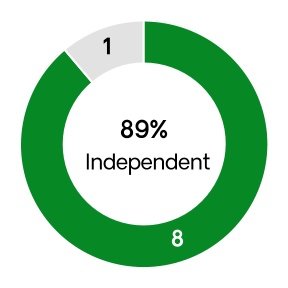
| | | | | |
| ¢ | Independent |
| ¢ | Not Independent |
| |
Our Determination. The Board has determined that our eight non-employee directors do not have a material relationship with us, either directly or indirectly, that would interfere with the exercise of independent judgment in carrying out the responsibilities of a director and that Drs. Burger and Boskin, Mses. Bush and Warner and Messrs. Chambers, Immelt, Pinkus, and Zervigon are “independent” as that term is defined under NYSE and SEC rules and our Corporate Governance Guidelines. The Board also determined that all members of the Audit, Compensation and Nominating Committees are independent and also satisfy any committee-specific independence requirements. Dr. Sridhar is not independent due to his role as our CEO.
| | | | | | | | |
| 100% | 100% | 100% |
| Independent | Independent | Independent |
| Audit Committee | Nominating Committee | Compensation Committee |
Engagement With Our Stockholders
| | | | | | | | |
| | |
| Our Engagements | •Throughout 2024 we participated in 16 conferences. •In addition, outside of investor conferences, we met by phone or video conference with approximately 430 stockholders. •We led tours of our manufacturing facility in Fremont and Delaware for groups of stockholders, followed by Q&A with senior management. •We actively engaged in stockholder outreach on the stewardship side, reaching out to stockholders representing approximately 67% of our shares to discuss our governance, compensation, social, and environmental practices. |
| | |
| | |
| What We Discussed | •Our CEO, CFO, CLO, and other members of our executive and senior management team participated in one-on-one and group discussions, sharing their views on the Company’s strategy, and our strategic positioning, operational priorities, governance structure, sustainability initiatives, and executive compensation. |
| | |
| | |
| How We Responded | •We held regular quarterly earnings conference calls open to all investors, which included Q&A sessions. These calls were announced to the public in advance, and we provided an opportunity for investors to participate via audio or webcast. A recording of each earnings call webcast and Q&A is made available following the call. •We periodically published and distributed additional materials for our investors, leveraging our social media publications. •In addition, we published press releases regarding our accomplishments, technical milestones, and key technology achievements. |
| | |
Board Processes and Policies
Stock Ownership Policy
To align the interests of our directors and stockholders, our non-employee directors are subject to a Stock Ownership Policy which:
| | | | | | | | |
| | |
Requires they own our shares equal in value to at least 4x the annual cash retainer | | 100% Director Compliance as of the end of 2024 |
| |
| |
Requires they retain 100% of all net settled shares received from the vesting, delivery or exercise of equity awards granted under our equity award plans or programs until the requirement is met | |
| |
| |
Counts stock deferred under the Deferred Compensation Plan (as described below) for non-employee directors toward the minimum ownership requirement | |
| | |
For additional information regarding our Stock Ownership Policy as it applies to our executive officers, please see Compensation Discussion and Analysis – Additional Information – Stock Ownership Policy on page 80. Business Conduct and Ethics
At Bloom, we are committed to operating with the highest standards of integrity and ethics. To uphold these values, we have adopted a Code of Conduct. The Audit Committee, on behalf of the Board, oversees compliance with the Code of Conduct, including the evaluation of actual and potential conflicts of interest, the review and approval of related-party transactions, and the oversight of of procedures for handling complaints related to accounting or auditing matters. The Code of Conduct applies to Bloom Energy Corporation and its subsidiaries and their employees, corporate officers (including our principal executive officer, principal financial officer, principal accounting
officer or controller, or persons performing similar functions), and directors. We also expect all contractors, consultants, and other members of the extended workforce who work for us to follow the Code of Conduct. The Code of Conduct summarizes important compliance policies and helps put Bloom’s ethical principles into practice. We intend to satisfy the disclosure requirement under Item 5.05 of Form 8-K regarding amendment to, or waivers of, certain provisions of our Code of Conduct by posting such information on our website at investor.bloomenergy.com within four business days of any such amendment or waiver.
Materials Available on Our Website
The Board has adopted Corporate Governance Guidelines that provide the framework for our corporate governance, along with the Restated Certificate of Incorporation, the Bylaws, charters for each Board committee, the Code of Conduct, and other key governance practices and policies. Our Corporate Governance Guidelines cover a wide range of subjects,
including the conduct of Board meetings, independence and selection of directors, Board membership criteria, and Board committee composition. These governance documents are available in the Investor Relations section of our website at https://investor.bloomenergy.com by clicking on the Corporate Governance/Governance Documents link.
Stockholder Communications with Our Board of Directors
Stockholders and other interested parties may communicate with the Board, the Lead Independent Director, the independent directors as a group, or individual directors by sending a communication to:
Bloom Energy Corporation
Office of the Corporate Secretary
4353 North First Street,
San Jose, California 95134
Each communication should specify the intended recipient(s). The Office of the Corporate Secretary will initially process the communications and forward appropriate material to applicable members of the Board. The purpose of this screening is to help the Board avoid having to consider irrelevant or inappropriate communications (such as advertisements, solicitations, and offensive communications).
Related Party Transactions
Our Written Policy. The Board has adopted a written Related Party Transaction Policy, which, along with the Audit Committee charter, requires that any transaction with a related party - if determined by the Compliance Officer to require approval under the policy - must be reviewed and approved or, if advance approval is not reasonably feasible, ratified, by the Audit Committee. If the related party is, or is associated with, a member of the Audit Committee, the transaction must be reviewed and approved by the Nominating Committee.
When the Policy Applies. Our Related Party Transaction Policy applies to transactions, arrangements, or relationships, or any series of similar transactions, arrangements, or relationships, in which we are or will be a participant and in which a related party has or will have a direct or indirect interest. A related party includes: (i) any person who is, or at any time since the beginning of our last fiscal year, was, a director or executive officer (as defined by the rules and regulations of the SEC) or a nominee to become a director, (ii) any security holder known by us to be the beneficial owner of more than 5% of any class of voting securities, and (iii) any immediate family member of any of the foregoing.
How We Apply the Policy. In determining whether to approve or reject a related-party transaction, the Audit Committee considers the relevant and available facts, including the impact on a director’s independence if the related party is a director, immediate family member of a director, or an entity with which a director is affiliated, the terms of the transaction, and any other relevant information and factors. The Audit Committee will approve only those transactions with related parties that, in light of known facts and circumstances, are in or are not inconsistent with the best interests of Bloom Energy and its stockholders, as the Audit Committee determines in the good faith exercise of its discretion. The Audit Committee may impose conditions it deems appropriate on Bloom Energy or the related party in connection with the proposed transaction.
Pre-Approved Transactions. The Audit Committee has reviewed the transactions, arrangements, and relationships described below and has determined that for the purposes of the policy, in the absence of facts or circumstances indicating special or unusual benefits to
the related party, the following transactions, arrangements, or relationships shall be deemed pre-approved:
•any employment by Bloom Energy of an executive officer if (i) the related compensation is required to be reported in the proxy statement under the SEC’s compensation disclosure requirements (generally applicable to “named executive officers”) under Item 402 of Regulation S-K or (ii) the executive officer is not an immediate family member of another executive officer or director, the related compensation would be reported in the proxy statement under Item 402 of Regulation S-K if the executive officer were a “named executive officer,” and the Compensation Committee approved (or recommended that the Board approve) such compensation;
•any transaction where the related party’s interest arises solely from the ownership of Bloom Energy’s capital stock and all holders of capital stock received the same benefit on a pro rata basis (e.g., dividends);
•any transaction with a related party (i) where the rates or charges involved are determined by competitive bids; (ii) involving the rendering of services as a common or contract carrier or public utility, at rates or charges fixed in conformity with law or governmental authority; or (iii) involving services as a bank depositary of funds, transfer agent, registrar, trustee under a trust indenture, or similar services;
•any charitable contribution, grant, or endowment by Bloom Energy to a charitable organization, foundation, or university at which a related party’s only relationship is as an employee (but not an executive officer); and any charitable contribution, grant, or endowment by Bloom Energy to a charitable organization, foundation, or university at which a related party is a trustee, director, or executive officer, if the aggregate amount involved in a fiscal year of Bloom Energy does not exceed the lesser of $120,000 or 2% of the consolidated gross revenues of such charitable organization, foundation, or university; or any non-discretionary matching contribution, grant, or endowment made pursuant to a matching gift program;
•any transaction with another company at which a related party’s only relationship is as (i) an employee (other than an executive officer) or director, (ii) a beneficial owner of less than 10%, together with his or her immediate family members, of that company’s outstanding equity, or (iii) in the case of partnerships, a limited partner, if the limited partner, together with his or her immediate family members, has an interest of less than 10% and the limited partner does not hold another position in the partnership, if the aggregate amount involved does not exceed the lesser of $120,000 or 2% of the other company’s consolidated gross revenues;
•ordinary course business travel and expenses, advances, and reimbursements;
•indemnification payments and other payments made pursuant to (i) directors and officers insurance policies, (ii) Bloom Energy’s Restated Certificate of Incorporation or Bylaws, and/or (iii) any policy, agreement, or instrument approved by the Board; and
•any transaction with a related party (whether or not covered above) where the aggregate amounts involved (including any periodic payments or installments due on or after the beginning of Bloom Energy’s last completed fiscal year and, in the case of indebtedness, the largest amount expected to be outstanding and the amount of annual interest thereon) do not exceed $120,000, provided, that such transaction is entered into in the ordinary course of Bloom Energy’s business on terms comparable to those that Bloom Energy has entered into with parties who are not related parties.
The Compliance Officer reviews transactions involving related parties that are not included in one of the preceding categories. The Compliance Officer determines what approvals are required under the policy and whether the transaction is forwarded to the Audit Committee for review.
2024 Related-Party Transactions. SK ecoplant Co., Ltd. (“SK ecoplant”) is a strategic power generation and distribution partner for Bloom based in the Republic of Korea. As part of an expansion of our existing relationship, in October 2021 we entered into a Securities Purchase Agreement (the “SPA”) with SK ecoplant that allowed SK ecoplant to purchase shares of our Class A common stock. In September 2023, SK ecoplant acquired an additional 13,491,701 shares of our Class A common stock after converting preferred stock purchased for $311 million. SK ecoplant previously acquired 10,000,000 shares of Class A common stock in November 2022. SK ecoplant’s total holdings of 23,491,701 shares represented 10.3% of Class A common stock outstanding as of December 31, 2024. The SPA was reviewed and approved by the Board in 2021.
In addition to the SPA, we have entered into a number of commercial agreements with SK ecoplant that were reviewed and approved by the Board prior to SK ecoplant’s most recent share purchase. These agreements include a preferred distributor agreement, supply agreement, commercial collaboration agreement, and a joint venture agreement. The Audit Committee pre-approved related- party transactions with SK ecoplant under the distribution and supply agreements that meet certain economic thresholds. The Audit Committee also delegated authority to the Audit Committee Chair, Mary Bush, to approve other related party transactions with SK ecoplant in between scheduled committee meetings.
For more information, see Note 17: SK ecoplant Strategic Investment in our Annual Report on Form 10-K filed with the SEC on February 27, 2025.
Director Compensation
Non-Employee Director Compensation Program
Our directors play a critical role in guiding our strategic direction and overseeing the management of Bloom, which requires considerable time commitments and responsibilities. The Board believes it is in the best
interests of the Company and our stockholders to maintain a compensation program for our non-employee directors. All of our directors, other than our Chairman and CEO, are non-employee Directors.
Role of Our Compensation Consultant
For 2024, the Compensation Committee retained the services of Compensia, Inc. (“Compensia”), an independent compensation consultant, to assist in evaluating and refining our Board compensation program. Compensia reported directly to the Compensation Committee and interacted with management at the Committee’s direction. Compensia provided advice regarding, among other things, peer group composition, a competitive market analysis, and equity strategy. Compensia also provided advice on our executive compensation program and philosophy, pay positioning relative to peer companies, equity usage and allocation, and risk assessment. The Compensation
Committee assessed the independence of Compensia pursuant to SEC and NYSE rules, and concluded that
Compensia is independent and that the work performed by Compensia for the Compensation Committee did not raise any conflicts of interest. In November 2024, the Compensation Committee retained the services of Meridian Compensation Partners LLC (“Meridian”), an independent compensation consultant, to assist the Compensation Committee in evaluating Board and executive compensation. Meridian did not advise the Compensation Committee on director compensation in 2024. The Compensation Committee intends to seek the advice of Meridian on director compensation in 2025. Compensia did not provide any other services to the Company other than Board and executive compensation.
Annual Cash Compensation
The following is a summary of the cash compensation that we provide to our non-employee Directors annually, which remained unchanged from 2023. Such cash compensation is paid in quarterly installments. In addition, our directors are reimbursed for reasonable expenses incurred in attending Board and committee meetings, including reasonable expenses for travel, meals, and lodging.
| | | | | |
General Board Service | Fees ($) |
| Board service | 70,000 | |
| Lead independent director | 25,000 | |
| Committee Service | |
| Audit Committee | |
| Chair* | 30,000 | |
| Member | 15,000 | |
| Compensation and Organizational Development Committee | |
| Chair | 20,000 | |
| Member | 10,000 | |
| Nominating, Governance and Public Policy Committee | |
| Chair | 15,000 | |
| Member | 5,000 | |
* Ms. Bush receives $40,000 for her service as the Chair of the Audit Committee. This amount was established before we adopted our non-employee director compensation policy, and the Board determined that her compensation as Audit Committee Chair should remain at the previously established amount for as long as she serves in that capacity or until the Board determines otherwise.
Equity Compensation
Annual Awards. In May 2024, our non-employee Directors received an annual grant of RSUs with a grant date fair value of $200,000 (the “2024 Annual Award”). In addition, Mr. Immelt, as Lead Independent Director, received an additional annual grant of RSUs with a grant date fair value of $25,000. The 2024 Annual Award vests on the date of the next annual meeting of stockholders, subject to the non-employee director’s continued service on the Board.
As a one-time event, the Board provided the opportunity for directors to receive stock options in lieu of half or all of their RSUs. During the Board meeting, the ratio was set at two stock options for each RSU, while maintaining the same vesting schedule for each award type.
Initial Awards. Beginning in 2024, new directors received an initial equity award with a grant date fair value of $350,000 (the “Initial Award”). In 2024, new directors had the option to receive their award in either
RSUs or stock options, valued using Black-Scholes on the date of grant, which is the start date of the director's service on the Board. The Initial Award vests in three equal installments on the anniversary of the grant date.
If the New Director is serving on the Board on the grant date of the Annual Award, the director is also eligible for an Annual Award, pro-rated for the time in service as a director since the date of the previous Annual Award.
Non-Employee Director Deferred Compensation Plan
The Board adopted a deferred compensation plan (the “Deferred Compensation Plan”) which allows our non-employee directors to defer all or a portion of their Board compensation, including cash retainer fees and RSU grants, for distribution at a later date. All deferred compensation is paid in deferred RSUs that settle on the terms and conditions elected by the non-employee director.
Mr. Pinkus elected to defer the settlement of his cash retainer fees earned in 2024, such that the deferred
stock units attributable to such fees will be paid on January 1, 2026. Mr. Immelt and Ms. Warner each elected to defer the settlement of their 2024 annual retainer fees, which cash fees will be paid in stock on the termination of their respective service on the Board. Additionally, Mr. Immelt elected to defer his RSU award granted in 2024, which is expected to vest on the date of the 2025 Annual Meeting. As a result, the deferred stock units will be paid following his termination of service on the Board.
2024 Director Compensation
The following table provides information for all compensation awarded to, or earned by, our non-employee Directors for the year ended December 31, 2024. Dr. Sridhar does not receive compensation for his service as a director. Please see the 2024 Summary Compensation Table on page 83 of this Proxy Statement for information regarding Dr. Sridhar’s 2024 compensation as our CEO. | | | | | | | | | | | | | | | | | |
| Name | Fees Earned or Paid in Cash ($) | Stock Awards ($)(1) | Option Awards ($)(1) | All Other Compensation ($) | Total ($) |
| Michael J. Boskin | 90,000 | | 200,000 | | | — | | 290,000 | |
| Barbara Burger | 31,250 | | 350,000 | | | — | | 381,250 | |
| Mary K. Bush | 110,000 | | 200,000 | | | — | | 310,000 | |
John T. Chambers | 80,000 | | — | | 315,923 | | — | | 395,923 | |
Jeffrey Immelt(2) | 115,000 | | 25,000 | | 315,923 | | — | | 455,923 | |
Gary Pinkus(3) | 43,513 | | — | | 350,000 | | — | | 393,513 | |
Cynthia (CJ) Warner(2) | 90,000 | | — | | 315,923 | | — | | 405,923 | |
Eddy Zervigon | 100,000 | | — | | 315,923 | | — | | 415,923 | |
(1)The amounts reported (rounded to the nearest dollar) represent the aggregate grant date fair value of RSUs and stock options granted to each of our non-employee Directors as computed in accordance with ASC 718. See Notes 2 and 9 of the notes to our consolidated financial statements contained in our Annual Report for a discussion of all assumptions made by us in determining the ASC 718 values of equity awards.
As of December 31, 2024, non-employee Directors who served on the Board during 2024 had the following outstanding equity awards, with Drs. Burger and Boskin and Ms. Bush electing to receive equity in the form of RSUs and Ms. Warner and Messrs. Chambers, Immelt, Pinkus, and Zervigon electing to receive equity in the form of stock options:
Dr. Boskin, 15,552 RSUs; Dr. Burger, 28,000 RSUs; Ms. Bush 15,552 RSUs and 50,000 stock options; Mr. Pinkus, 30,932 stock options; and as to Mr. Chambers, Mr. Immelt, Mr. Zervigon and Ms. Warner, 31,104 stock options each, and 2,042 RSUs for Mr. Immelt.
(2)Mr. Immelt and Ms. Warner each elected to defer 100% of their annual retainer fees and Mr. Immelt elected to defer his RSU award in order to receive a distribution of deferred stock units following termination of service on the Board.
(3)Mr. Pinkus elected to defer 100% of his annual retainer fees in order to receive a distribution of deferred stock units on January 1, 2026.
We have an experienced senior management team with a proven track record of success in business, operations, and leadership. As we continue to grow our business, we recognize that a variety of experiences, backgrounds and viewpoints among our leadership ultimately translates to more informed decisions. We believe the various skill sets, experiences, and attributes of our senior management team will be valuable as we scale our business and enter new markets, both in the U.S. and globally.
There are no arrangements or understandings between any executive officer and any other person pursuant to which they are or were to be selected as an officer. There are no family relationships between any of our executive officers or directors. Information about our executive officers as of the Record Date is set forth below:
| | | | | | | | | | | | | | |
| KR Sridhar Age: 64 Founder, Chairman, and Chief Executive Officer |
| | Daniel Berenbaum Age: 55 Chief Financial Officer |
| | | | |
| | | | |
Please see page 31 of this Proxy Statement for Dr. Sridhar’s biography. |
| Background at Bloom Daniel Berenbaum has served as our Chief Financial Officer since April 2024. Mr. Berenbaum leads Bloom’s Finance organization. |
| | | | |
| | | | |
|
| Professional Experience Prior to joining Bloom Energy, Mr. Berenbaum served as Executive Vice President and Chief Financial Officer at National Instruments (from January 2023 until the sale of the company to Emerson in October 2023). He previously held executive finance positions in several other high-tech companies, including Vice President, Finance, Global Operations Controller for Micron Technology (from 2021 to 2023), a semiconductor company, where he oversaw the financial performance of the company’s global manufacturing organization and led manufacturing footprint expansions; Chief Financial Officer at Everspin Technologies (2020 to 2021), a semiconductor company, where he leveraged expertise in semiconductor finance and operations to strengthen the company’s strategy and execution; and Asia/Pacific CFO at GlobalFoundries (from 2013 to 2020), where he oversaw manufacturing performance, accounting, and shared services, and regional mergers and acquisitions. Prior to these roles, he spent ten years on Wall Street as an analyst covering technology stocks. Earlier in his career, he held various technical and management roles at Applied Materials and served as a nuclear-powered-trained surface line officer in the United States Navy. |
| | | | |
| | | | |
|
| Education BS, United States Naval Academy. |
| | | | |
| | | | | | | | | | | | | | |
| Shawn M. Soderberg Age: 64 Chief Legal Officer and Corporate Secretary |
| | Satish Chitoori Age: 53 Chief Operations Officer |
| | | | |
| | | | |
Background at Bloom Shawn M. Soderberg has served as our Chief Legal Officer and Corporate Secretary since January 2016. Ms. Soderberg leads Bloom’s legal, regulatory, and compliance activities. |
| Background at Bloom Satish Chitoori has served as our Chief Operations Officer since April 2024, overseeing Supply Chain, Manufacturing, Installations (CIG), and Facilities. Prior to that, Mr. Chitoori served as Senior Vice President--Global Supply Chain Management since 2019. |
| | | | |
| | | | |
Professional Experience Prior to joining Bloom Energy, Ms. Soderberg was the Executive Vice President, General Counsel, and Secretary of Bio-Rad Laboratories, a global medical technology provider for the life science and clinical diagnostics industries, from 2013 to 2016. Prior to that, Ms. Soderberg was the Senior Vice President, General Counsel, and Secretary of Aricent Group, a global design and software engineering services and product company, from 2006 to 2013; Managing Director and General Counsel of H&Q Asia Pacific, a private equity firm, from 2000 to 2006; Vice President, General Counsel, and Secretary of Oak Technology, a semiconductor and embedded solutions provider for the optical storage and the digital home entertainment market, from 1996 to 2000; and General Counsel of Microtec Research, Inc., a software provider for embedded systems, from 1994 to 1996. Law firm experience precedes Ms. Soderberg’s General Counsel in-house experience. |
| Professional Experience With over 22 years of experience in the semiconductor and electronics industries, Mr. Chitoori has held senior leadership roles in Operations, Process Engineering, Quality, Product Management, and Program Management. Since joining Bloom Energy, he has been instrumental in scaling the supply chain and managing complex relationships with global suppliers, facilitating Bloom Energy’s growth in a dynamic market environment. His international assignments in countries such as Malaysia, Singapore, Thailand, India and China have enabled him to build high performance teams and gain a global perspective on operations and supply chain management. Mr. Chitoori also serves as an advisory board member for the Engineering Leadership Certificate Program at the University of California, Santa Barbara. |
| | | | |
| | | | |
Education LL.M. in Taxation, New York University JD, Seattle University School of Law BS in Accounting, University of Santa Clara |
| Education BS in Mechanical Engineering, Jawaharlal Nehru University MBA in Operations, Savitribai Phule Pune University |
| | | | |
| | | | | | | | | | | | | | |
| Aman Joshi Age: 48 Chief Commercial Officer |
| | |
| | | | |
| | | | |
Background at Bloom Aman Joshi has served as our Chief Commercial Officer since January 2024. Mr. Joshi leads Bloom’s sales and business development activities. |
| | |
| | | | |
| | | | |
Professional Experience Aman Joshi brings over two decades of experience from General Electric to Bloom Energy. At GE, he held various leadership roles across multiple business segments, including GE Capital, GE Corporate, GE Aviation, GE Global Growth Organization, and GE Power. Notably, he served as the Global General Manager of GE’s Aeroderivative Gas Turbine units business at General Electric Company’s GE Vernova business unit (formerly known as GE Power) from 2018 to 2024, where he collaborated with energy policy makers, regulators and utilities to support the energy transition and accelerate the development of efficient, reliable and clean power solutions. Between 2013 and 2018, Mr. Joshi served in business unit CFO roles within GE Vernova. In addition to providing global perspective on the energy sector from living in six countries and working in four continents, Mr. Joshi is a seasoned power generation veteran and has extensive experience working with utilities, commercial and industrial companies, governments, regulators, and policy makers. Throughout his career, Mr. Joshi has developed a strong operational and commercial skill set, earning recognition for building effective business teams and delivering robust results for shareholders and customers. |
| | |
| | | | |
| | | | |
Education The Institute of Chartered Accountants of India and The Institute of Company Secretaries of India |
| | |
| | | | |
Additional Key Executives
The following individuals, in addition to the executive officers discussed above, complete our senior management team:
| | | | | | | | | | | |
| | | Age |
| | | |
| Carlton Cottuli Head of Development Engineering since April 2022, VP System Engineering July 2018- April 2022, and Architect Mission Critical Systems April 2012-July 2018 | •25+ years of experience managing global technical teams engaged in governmental, industrial, and enterprise opportunity engagement •Expertise in electrical and mechanical product and system design, and installation for service industries | 63 |
| | | |
| | | |
| Karen Maxwell Head of Quality and Reliability since April 2024 | •35+ years of manufacturing and quality expertise from large manufacturers, suppliers and start-ups with experience spanning multiple industries, including automotive, semiconductor, and renewable energy •Expertise in ensuring product quality and reliability, optimizing manufacturing processes, and driving operational excellence across diverse industries | 65 |
| | | |
| | | |
| Ravi Prasher Chief Technology Officer since October 2022 | •Technologist, researcher, and professor with experience in industrial, technology start-up, academic (active UC Berkeley Adjunct Professor), and government sectors (DOE ARPA-E), and national lab (LBNL) •Expertise in managing research and development in a wide variety of areas, including fuel cells, hydrogen production, storage and transport, electrochemical and thermal storage, carbon capture, microgrids, and renewable energy | 51 |
| | | |
| | | |
| James Roth Head of Government Affairs and Policy since May 2023 | •20+ years experience as a senior public affairs executive with extensive background in public policy, corporate affairs, communications, advocacy, negotiations, and brand management •Expertise in U.S. and international policy, government affairs, energy and climate strategies, foreign trade, strategic communications, and community engagement | 56 |
| | | |
| | | |
| Deepak Shukla Head of Service and Systems Operations since February 2022, Vice President Service 2012 – 2022, and Senior Director of Technology Support 2008-2012 | •30+ years of experience leading process optimization, new process innovation at startups, and service business and strategy in the energy industry •Expertise in process and asset optimization, software, service excellence, customer relationship management, and business transformation | 67 |
| | | |
| | | |
| Natalie Sunderland Chief Marketing Officer since December 2024 | •20+ years of strategic marketing experience and award-winning Silicon Valley executive with a track record of growing and transforming companies •Expertise in building and modernizing iconic brands, developing innovative marketing strategies, and driving growth in complex, high-stakes environments | 54 |
| | | |
| | | |
| Sonja Wilkerson Chief People Officer since January 2019 | •30+ years of Human Resources leadership experience •Expertise in developing talent strategies to drive organizational effectiveness through the integration of people, technologies, processes, and cultures •Member of the Board of Directors of Koppers Holdings Inc. (since 2018) | 64 |
| | | |
| | |
Proposal 2 Advisory Approval of Named Executive Officer Compensation |
| | | | | |
| |
| The Board unanimously recommends a vote FOR the approval of the compensation of our NEOs. |
In accordance with the requirements of Section 14A of the Exchange Act and the related rules of the SEC, our stockholders have the opportunity to vote to approve, on an advisory basis, the compensation of our NEOs as disclosed in the Compensation Discussion and Analysis and the tabular disclosures of this Proxy Statement. This proposal, commonly known as a “say-on-pay” proposal, provides our stockholders with the opportunity to express their views on the compensation of our NEOs.
As described in the Compensation Discussion and Analysis section of this Proxy Statement, we believe that the skill, talent, judgment, and dedication of our executive officers are critical factors affecting our long-term value. The goals of our executive compensation programs are to fairly compensate our executives, attract and retain highly-qualified executives who are able to contribute to our long-term success, encourage performance consistent with clearly defined corporate goals, and align our executives’ long-term interests with those of our stockholders. Please read the Compensation Discussion and Analysis beginning on page 64 for additional details about our executive compensation programs. The Board is asking our stockholders to indicate their support for the compensation of our NEOs as described in this Proxy Statement. This vote is not intended to address any specific item of compensation, but rather the overall compensation of our NEOs and the philosophy, policies, practices, and objectives described in this Proxy Statement. Accordingly, the Board recommends that our stockholders vote “FOR” the following resolution at the 2025 Annual Meeting:
“RESOLVED: That the stockholders approve, on an advisory basis, the compensation of the named executive officers, as disclosed in the Proxy Statement for the 2025 Annual Meeting of Stockholders pursuant to the compensation disclosure rules of the Securities and Exchange Commission, including the Compensation Discussion and Analysis, the compensation tables, and the accompanying footnotes and narrative disclosures.”
As an advisory vote, this say-on-pay proposal is not binding on us, the Board, or the Compensation Committee. However, we, the Board and the Compensation Committee, which are responsible for overseeing, reviewing, and administering our executive compensation programs, value the opinions expressed by our stockholders, and will continue to consider our stockholders’ views in evaluating future compensation options for our NEOs.
Taking into account the advisory vote of stockholders regarding the frequency of future say-on-pay proposals at our 2021 Annual Meeting, the Board’s current policy is to include an advisory resolution to approve the compensation of our NEOs annually. Accordingly, unless the Board modifies its policy on the frequency of future say-on-pay votes, the next advisory vote to approve our executive compensation will occur at the 2026 Annual Meeting of Stockholders.
Vote Required. Approval of Proposal 2 requires the affirmative vote of a majority of the votes cast for or against this proposal. Abstentions and broker non-votes, if any, are not deemed to be votes cast and, therefore, will not affect the outcome of the vote.
Compensation Discussion and Analysis
This Compensation Discussion and Analysis provides a detailed review of our executive compensation philosophy, programs, the Compensation Committee’s decisions under those programs, and the key factors considered in making those decisions. Each of our NEOs served in their role as of December 31, 2024, and continue to do so as of the date of this Proxy Statement, except Mr. Cameron, who left the Company in May 2024.
| | | | | | | | | | | | | | | | | |
| KR Sridhar Chief Executive Officer and Chairman | | Daniel Berenbaum(1) Chief Financial Officer | | Gregory Cameron Former President and Chief Financial Officer |
| | | | | |
| Satish Chitoori Chief Operations Officer | | Aman Joshi Chief Commercial Officer | | Shawn M. Soderberg Chief Legal Officer and Corporate Secretary |
(1)Mr. Berenbaum was appointed CFO effective April 29, 2024.
Executive Summary
2024 Business Highlights
Bloom had a successful fiscal 2024, demonstrating solid execution on our strategy. We achieved our annual goals while positioning our business for this next phase of the energy transition. The following highlights are related to pay:
•Record Revenue and Product & Service Revenue Growth. We delivered our highest ever revenue at $1.47 billion, an increase of 10.5% over fiscal 2023. Product and service revenue increased 12.1% year over year to $1.30 billion, reflecting wider adoption of our products.
•Record Non-GAAP Gross Margin and Earnings. We achieved record non-GAAP gross margin of 28.7%, an increase of 2.9 percentage points year over year. We also achieved positive non-GAAP operating net income of $107.6 million
•Product Development. We continued to evolve our fuel cell platform with new applications - our Be Flexible solution for variable loads, our CHP application for heat capture and industrial chilling and cooling and our CCUS capability.
•Utility, Data Center and Large Load Expansion. We announced a 1 GW partnership with AEP to provide
generation for data center load as well as an 80 MW project in Korea.
•International Expansion. We expanded our fuel-flexible energy platform customer base and partners in certain countries in Europe and Asia.
•Successful Financing. In May 2024, we issued the 3% Green Convertible Senior Notes due June 2029 with an aggregate principal amount of $402.5 million,
•Positive Cash Flow from Operations. We had $92 million cash flow from operations and ended the year with $951 million of total cash on the balance sheet.
For a more detailed description of our financial and business highlights, please see Our Business and Strategy and Year in Review on pages 8 and 13, respectively, and the Management’s Discussion and Analysis of Financial Condition and Results of Operations section in our Annual Report on Form 10-K for a more detailed discussion of our fiscal 2024 financial results.
Stockholder Engagement and Consideration of 2024 Say-on-Pay Vote
Bloom has regularly sought its stockholders’ perspectives over the years. In addition to arranging meetings to discuss stockholders’ perspectives, our CEO, CFO, and CLO regularly speak with our stockholders about the Company, our performance, and our strategy, and they communicate any feedback on our compensation plans to the Compensation Committee. The Compensation Committee has been mindful of those perspectives and our stockholders’ support for our pay-for-performance compensation philosophy and say-on-pay proposals.
In 2024, the Company received 92% support for its say-on-pay proposal. We believe these results represent investor support of the decisions we made in 2023, which represent the continued evolution of our compensation philosophy and decision since we became a public company, including transitioning from a one-year incentive structure to a three-year performance-based framework for equity, aligning executive compensation with long-term strategic goals
and sustained Company performance. This decision was made based on the feedback we heard from stockholders. Accordingly, the Compensation Committee did not make any changes to our executive compensation program for 2025 directly as a result of the 2024 say-on-pay vote. Nevertheless, the Compensation Committee regularly reviews the compensation program to ensure it remains competitive and aligned with our stockholders’ interests. This review led to the change to our CEO’s equity grant as described beginning on page 75. In late 2024 and early 2025, we reached out for discussions with our top 30 investors with stewardship teams, representing approximately 67% of our shares. During the course of these discussions, we solicited feedback on how we can continue to improve our future compensation programs, including the emphasis on performance-based compensation and aligning the interests of our executive officers with stockholders’ interests.
Compensation Philosophy and Objectives
The overall objective of our executive officer compensation program is to attract and retain a talented management team and to provide them with the right incentives to execute our strategic objectives designed to maximize stockholder value. The Company’s program offers incentive compensation opportunities that promote the achievement of short- and long-term strategic and financial objectives.
The following objectives and principles guide the design of our compensation program:
| | | | | | | | |
| | |
| | |
| | |
| Motivate Performance with Challenging Goals that Support our Business Strategy | Encourage and reward over-achievement of corporate financial and operating goals. Expect accountability and promote a culture of high performance. Our compensation program is closely aligned with our long-term growth model and strategic priorities. Incentive performance measures are set at challenging, but reasonably achievable targets. Our long-term equity awards are designed with financial and operational targets over a three-year period. |
| | |
| | |
| Align Interests with Stockholders | Align the interests of our executives with our stockholders by delivering a significant portion of total compensation in the form of at-risk, performance-based cash and long-term equity awards.The metrics on which our executives are rewarded are aligned to the goals we communicate to stockholders, closely tracking our externally communicated financial objectives. |
| | |
| Reward Actual Achievement | Short-term and long-term incentive payouts that exclusively depend on level of achievement against pre-established financial and strategic goals and individual performance. A significant percentage of our NEO’s compensation is at risk and variable based on the annual and long-term performance of the company. ACI awards reward the achievement of short-term goals while equity awards encourage our executives to deliver sustained strong results over multiple years. |
The Compensation Committee periodically reviews and analyzes market trends and the prevalence of various compensation delivery vehicles and adjusts the design and operation of our executive compensation program as it deems necessary or appropriate. In designing and implementing the various elements of our executive compensation program, the Compensation Committee considers market and industry practices, peer data, experience, performance, and retention. While the Compensation Committee considers all of these factors in its deliberations, it places no formal weighting on any one factor.
2024 Compensation Highlights
The percentages below were calculated using the 2024 base salary, grant date fair value of equity and target ACI for our NEOs. The allocation of the target value of the primary elements of total direct compensation for our CEO and our other NEOs as a group in 2024 was as follows:
2024 PAY MIX: CEO
| | | | | | | | | | | | | | | | | | | | | | | |
| Base Salary | | ACI | | RSUs | | PSUs & PSOs |
2024 PAY MIX: ALL OTHER NEOs AS A GROUP
| | | | | | | | | | | | | | | | | | | | | | | |
| Base Salary | | ACI | | RSUs | | PSUs & PSOs |
Our 2024 compensation plans and payouts for our NEOs reflect our overarching philosophy of pay for performance. Highlights of our 2024 compensation program included:
| | | | | |
Emphasis on Performance-based Incentives | Performance-based awards, PSUs and PSOs (2024 only), represented 78% of the target compensation granted to both the CEO and the other NEOs as a group. |
| |
| |
Challenging Strategic Performance Objectives | In 2024, the Compensation Committee incorporated challenging strategic performance objectives into certain performance-based equity awards granted to NEOs. Strong operational performance led to an above-target payout. |
| |
| |
Challenging Financial and Operational Objectives | For 2024, the Compensation Committee set ACI metrics and targets at challenging levels. Based on the Company’s strong financial and operational performance, the Compensation Committee approved ACI funding at the above target rate of 135%. |
Emphasis on Performance-Based Compensation
To align the interests of management and stockholders, our compensation program is designed to provide the majority of executive compensation in the form of at-risk, performance-based cash and equity incentives, including long-term, three-year vesting equity awards. This approach ensures that the compensation opportunity for our NEOs is aligned with the interests of our stockholders and focused on sustained stockholder value creation. The Board believes that revenue growth, margin expansion, profitability and positive cash flow
from operations are critical to Bloom Energy’s success. As a result, at-risk cash and equity incentives are aligned with performance targets designed to drive these metrics. Performance-based compensation consists of at-risk, variable pay through our ACI and performance-based equity, both of which are eligible to be earned at up to 150% of target based on the achievement of challenging financial, operational and strategic goals.
Executive Compensation Best Practices
We seek to ensure that we maintain sound executive compensation policies and practices, including compensation-related corporate governance standards, consistent with our executive compensation philosophy. In designing and overseeing our executive compensation program, we strive to employ best practices and regularly assess our policies and practices. We have the following executive compensation policies and practices in place, including both those that we have implemented to drive performance and those that either prohibit or minimize behaviors that we do not believe serve our stockholders’ long-term interests:
| | | | | | | | | | | | | | | | | | | | |
| | | | | | |
| WHAT WE DO |
| | WHAT WE DON’T DO |
| | | | | | |
 Compensation Committee Independence – Our Board of Directors maintains a Compensation Committee comprised solely of independent directors. Compensation Committee Independence – Our Board of Directors maintains a Compensation Committee comprised solely of independent directors. Independent Compensation Committee Advisors – The Compensation Committee engages and retains its own independent advisors and reviews their independence annually. Independent Compensation Committee Advisors – The Compensation Committee engages and retains its own independent advisors and reviews their independence annually. Annual Compensation Review and Rigorous Oversight – The Compensation Committee conducts an annual review of our executive compensation philosophy and strategy, including a review of the compensation peer group and other information used for comparative purposes. Throughout the year, the Compensation Committee provides rigorous oversight of incentive metrics and the pay/performance relationship. Annual Compensation Review and Rigorous Oversight – The Compensation Committee conducts an annual review of our executive compensation philosophy and strategy, including a review of the compensation peer group and other information used for comparative purposes. Throughout the year, the Compensation Committee provides rigorous oversight of incentive metrics and the pay/performance relationship. Compensation-Related Risk Assessment – The Compensation Committee conducts an annual evaluation of our compensation programs, policies, and practices, to ensure that they are designed to reflect an appropriate level of risk-taking but do not encourage our employees to take excessive or unnecessary risks that could have a material adverse impact on the Company. Compensation-Related Risk Assessment – The Compensation Committee conducts an annual evaluation of our compensation programs, policies, and practices, to ensure that they are designed to reflect an appropriate level of risk-taking but do not encourage our employees to take excessive or unnecessary risks that could have a material adverse impact on the Company. Emphasize Performance-Based Incentive Compensation – The Compensation Committee designs our executive compensation program to use performance-based short-term and long-term incentive compensation awards to align the interests of our executive officers with the interests of our stockholders. A significant majority of total compensation is performance-based. Emphasize Performance-Based Incentive Compensation – The Compensation Committee designs our executive compensation program to use performance-based short-term and long-term incentive compensation awards to align the interests of our executive officers with the interests of our stockholders. A significant majority of total compensation is performance-based. Emphasize Long-Term Equity Compensation – The Compensation Committee uses equity awards to deliver long-term incentive compensation opportunities to our executive officers. These equity awards vest over multi-year periods and may be earned over a multi-year period, supporting long-term alignment of the interests of our executives and stockholders and promoting value creation goals and retention objectives. Emphasize Long-Term Equity Compensation – The Compensation Committee uses equity awards to deliver long-term incentive compensation opportunities to our executive officers. These equity awards vest over multi-year periods and may be earned over a multi-year period, supporting long-term alignment of the interests of our executives and stockholders and promoting value creation goals and retention objectives. Stock Ownership Policy – We maintain a stock ownership policy for our directors and executive officers which requires each of them to own a specified amount of our shares as a multiple of their base salary or annual board retainer. Stock Ownership Policy – We maintain a stock ownership policy for our directors and executive officers which requires each of them to own a specified amount of our shares as a multiple of their base salary or annual board retainer. Compensation Recovery Policies – We have adopted policies that provide for the recoupment of cash and equity incentive compensation from our executive officers resulting from fraud, intentional misconduct, or gross negligence, or in the event of a restatement. Compensation Recovery Policies – We have adopted policies that provide for the recoupment of cash and equity incentive compensation from our executive officers resulting from fraud, intentional misconduct, or gross negligence, or in the event of a restatement. Prohibition on Hedging and Pledging – Under our Insider Trading Policy, we prohibit our executive officers from hedging any Company securities owned by them and from pledging any Company securities owned by them as collateral for a loan. Prohibition on Hedging and Pledging – Under our Insider Trading Policy, we prohibit our executive officers from hedging any Company securities owned by them and from pledging any Company securities owned by them as collateral for a loan. Succession Planning – Our Board of Directors reviews on an annual basis our succession strategies and plans for our most critical positions. Succession Planning – Our Board of Directors reviews on an annual basis our succession strategies and plans for our most critical positions. |
|  No Single Trigger Equity Acceleration Upon a Change of Control – Our executive officers’ Change of Control Agreements require a double trigger (termination following the change of control) to accelerate vesting of equity awards. No Single Trigger Equity Acceleration Upon a Change of Control – Our executive officers’ Change of Control Agreements require a double trigger (termination following the change of control) to accelerate vesting of equity awards. No Supplemental Executive Retirement or Defined Benefit Pension Plan – Other than our Section 401(k) plan generally available to all employees in the U.S., we do not offer a supplemental executive retirement plan or a defined benefit pension plan for our executive officers. No Supplemental Executive Retirement or Defined Benefit Pension Plan – Other than our Section 401(k) plan generally available to all employees in the U.S., we do not offer a supplemental executive retirement plan or a defined benefit pension plan for our executive officers. No Tax “Gross-Ups” or Payments – We do not provide any “gross-ups” or tax payments in connection with any compensation element for our executive officers, other than our executive health plan. This means we do not provide any excise tax “gross-up” or tax reimbursement in connection with any change of control payments or benefits. No Tax “Gross-Ups” or Payments – We do not provide any “gross-ups” or tax payments in connection with any compensation element for our executive officers, other than our executive health plan. This means we do not provide any excise tax “gross-up” or tax reimbursement in connection with any change of control payments or benefits. No Unearned Dividends – We do not pay dividends or dividend equivalents on unvested or unearned RSU or PSU awards. No Unearned Dividends – We do not pay dividends or dividend equivalents on unvested or unearned RSU or PSU awards. No Stock Option Repricing – We do not retroactively adjust the exercise price of previously granted stock options. No Stock Option Repricing – We do not retroactively adjust the exercise price of previously granted stock options. |
| | | | | | |
Compensation Decision-Making Process
Determination of Compensation Awards
The Compensation Committee sets all elements of compensation that are designed to be at competitive levels without using rigid formulas. The Compensation Committee uses performance metrics and targets that are directly tied to Company financial performance and stockholder value creation. For 2024, the Compensation Committee reviewed each element of compensation described below and set the target total direct compensation opportunities of our executive officers based on the following factors:
•a compensation analysis of competitive market data performed by the Compensation Committee’s independent compensation consultant, including the compensation practices of the Company’s peer group;
•each executive officer’s scope of responsibilities;
•each executive officer’s skill set, experience, qualifications, and marketability;
•each executive officer’s individual performance and contribution;
•each executive’s time in his or her position;
•the recommendations of our CEO (except with respect to his own compensation); and
•general market conditions.
In evaluating our performance and determining the compensation of our NEOs, the Compensation Committee considers our operational and financial performance as well as achievement of strategic milestones and goals incorporated in our short- and
long-term incentive plans. In addition, the Compensation Committee considers non-financial achievements that support our long-term growth, such as attracting and retaining a talented leadership team, developing new applications of our fuel cell platform or new products, navigating a complex regulatory environment, and adding and expanding significant market partnerships. The Compensation Committee also may exercise its informed judgment to account for extraordinary or non-recurring events.
The Compensation Committee does not assign specific weights or rankings to these factors, nor does it rely solely on any quantitative formula, target percentile, or multiple when determining compensation for executive officers or comparing it to competitive market data. The members of the Compensation Committee consider this information along-side their individual experience, knowledge of the Company, understanding of each executive officer, awareness of the competitive market, and business judgment when making decisions about executive compensation and our overall executive compensation program.
The Compensation Committee also does not use a set formula to determine the proportion of an executive’s compensation that is fixed (i.e., base salary) versus variable or “at risk” (i.e., performance-based incentives). The Compensation Committee considers relevant circumstances when making compensation decisions and seeks to achieve an appropriate balance between performance incentives and retention incentives.
Role of the Consultants
The Compensation Committee relies on its independent compensation consultant to provide advice on matters relating to the compensation of our executives and non-employee directors. As part of our commitment to strong governance and continuous improvement, the Compensation Committee engaged a new independent compensation consultant in 2024. This transition provided a fresh perspective on our executive compensation practices and allowed for a comprehensive review of our programs, ensuring alignment with market best practices and the long term interests of our stockholders. Compensia served as our independent compensation consultant until November 2024 when the Compensation Committee retained Meridian (Compensia and Meridian collectively referred to as the “Compensation Consultants”).
A representative of the Compensation Consultants attended Compensation Committee meetings in 2024 and provided the following assistance to the Compensation Committee:
•assisted in the review and updating of our compensation peer group;
•reviewed the competitiveness of compensation of our NEOs including base salary, annual cash awards, and long-term incentive awards;
•provided advice with respect to compensation best practices and market trends for our NEOs and directors;
•reviewed and provided input on the Compensation Discussion and Analysis section of our Proxy Statement; and
•assisted with the design of the short-term and long-term incentive compensation plans with appropriate performance goals and targets for our NEOs and other executives.
The Compensation Consultants reported directly to the Compensation Committee and did not provide any services to the Company other than those provided to the Compensation Committee. The Compensation Committee reviewed the objectivity and independence of the advice provided by the Compensation Consultants. In 2024, the Compensation Committee considered the specific independence factors adopted by the SEC and NYSE and determined that the Compensation Consultants were independent and that their work did not raise any conflicts of interest.
Role of Competitive Market Data
In February 2024, the Compensation Committee reviewed an analysis prepared by Compensia of market pay practices for positions similar to those of our NEOs and other key executives. The analysis was adjusted to take into account differences in the scope of our executive officers’ responsibilities compared to their counterparts in similar roles at comparable companies. This review was based on the same peer companies used in 2023, which guided pay decisions through October 2024.
Companies included in the “Original Peer Group” listed in the table below, consist of technology sector companies
with a focus on energy/alternative energy, as well as companies with complex products and manufacturing operations and a strong focus on research and development. Additional factors that were considered in identifying peers included:
•revenue between $328 million and $3.0 billion;
•a market capitalization between $1.7 billion and $15.1 billion; and
•headquartered in the United States, with particular consideration given to companies located in the San Francisco Bay Area.
| | | | | | | | | | | |
| Original Peer Group (through October 2024) |
| Advanced Energy Industries, Inc. | Infinera Corporation | Power Integrations, Inc. |
| Ambarella, Inc. | Itron, Inc. | Stem, Inc. |
| Enphase Energy, Inc. | Novanta Inc. | SunPower Corporation |
| First Solar, Inc. | Onto Innovation Inc. | Sunrun Inc. |
| FormFactor, Inc. | Ormat Technologies, Inc. | Synaptics Incorporated |
| Generac Holdings Inc. | Plug Power Inc. | Ultra Clean Holdings, Inc. |
| | | |
In November 2024, the Compensation Committee, with the assistance of Meridian, reviewed and established a revised executive compensation peer group to support our AI data-center and large load time to power strategy using the following criteria:
•companies in the alternative energy, AI-oriented semiconductors, AI facilitators, and data center infrastructure sectors;
•companies with revenues and market capitalization generally ranging from 0.25x and 5x that of the Company; and
•exceptions for direct talent-market competitors, relevant proxy-advisor peers and frequent “peers of peers.”
The updated peer group established in November 2024 (our “Updated Peer Group”) is as follows:
| | | | | | | | | | | | | | |
| Updated Peer Group (since November 2024) | |
| AAON, Inc. | nVent Electric plc | Rivian Automotive, Inc. | |
| C3.ai, Inc. | ON Semiconductor Corporation | Skyworks Solutions, Inc. | |
| Enphase Energy, Inc. | Onto Innovation Inc. | Smartsheet Inc. | |
| First Solar, Inc. | Ormat Technologies, Inc. | Sunrun Inc. | |
| Generac Holdings, Inc. | Plug Power Inc. | Synaptics Inc. | |
| Lumentum Holdings, Inc. | Pure Storage, Inc. | Talen Energy Corporation | |
| Nextracker Inc. | Rambus Inc. | Trimble Inc. | |
| | | | |
Role of the Compensation Committee
The Compensation Committee is responsible for establishing our executive compensation philosophy and for overseeing our executive compensation program and all related policies and practices. The Compensation Committee has the authority to retain compensation consultants and other advisors to assist in carrying out its responsibilities.
At least annually, the Compensation Committee reviews our executive compensation program and formulates recommendations for consideration and approval by the Board of the various elements of our NEOs’ compensation, as well as any employment arrangements with our NEOs. The Board reviews and approves the compensation for the CEO based upon the recommendation of the Compensation Committee and
the Compensation Committee reviews and approves the compensation for all other NEOs. The Compensation
Committee is responsible for actions with respect to compensation that will attract and retain the highest quality executives, clearly articulate the relationship of corporate performance to executive compensation, and reward executives for our progress and for exceeding our goals.
The Compensation Committee meets regularly during the year both with and without the presence of our CEO and other executive officers. The Compensation Committee also discusses compensation issues with our CEO (except with respect to his own compensation) and other members of the Board between its formal meetings.
Role of Management
The Compensation Committee determines the compensation of our NEOs and makes a recommendation to the Board regarding the compensation of our CEO. In carrying out its responsibilities, the Compensation Committee works closely with members of management, including our CEO and our Chief People Officer. Management assists the Compensation Committee by providing information on individual performance, competitive market data, and management’s perspective and recommendations on compensation matters.
Our CEO attends the Compensation Committee meetings and discusses the Company’s performance, as
well as the performance of each executive officer, including our NEOs, with the Committee. The Compensation Committee exercises its independent judgment in determining final compensation decisions for the NEOs other than the CEO, which may involve modifying the CEO’s recommendations based on market data, Company and individual performance evaluations, and the Company’s strategic objectives. No member of the management team, including the CEO, has a role in determining his or her own compensation.
Executive Compensation Program Design
Our current executive compensation program is intended to align executive compensation with our business objectives and to enable us to attract, retain, and reward executive officers who contribute to our long-term success and, by extension, success for our stockholders. The material elements of our executive compensation program for 2024 are described below:
| | | | | | | | | | | |
Compensation Element | Designed to Reward | | Relationship to Business Objectives |
| | | |
| | | |
Base Salary | Knowledge and experience, as well as past and present scope of responsibilities | | Attracts and retains an effective management team |
| | | |
| | | |
ACI | Success in achieving pre-established annual performance objectives and individual contributions | | Supports a “pay-for-performance” culture by motivating and rewarding our executives for achieving performance goals that contribute to our long-term success and create value for our stockholders |
| | | |
| | | |
Equity Awards | Success in achieving pre-established, long-term, corporate performance objectives designed to enhance sustainable stockholder value | | Align executive goals and objectives with the interests of our stockholders and focus executives on our long-term financial performance. The associated vesting requirements also serve to promote retention |
| | | |
We generally do not provide perquisites to our NEOs other than our CEO, except for executive health memberships for themselves and their dependents (including annual physical exams, medical consultation services, and clinical care coordination). We believe the well-being of our leaders is in our stockholders’ best interest. The executive officers otherwise participate in the same standard benefit programs offered to all employees, including health and life insurance. They are also eligible to participate in our 401(k)-retirement savings plan and have the opportunity to participate in our Employee Stock Purchase Plan (“ESPP”). In 2024, we provided Company matching contributions of up to $5,000 per year under our 401(k)-retirement savings
plan. As part of our commitment to the safety and productivity of our executive leadership, the company provides home security services for the CEO to address security concerns associated with his role. Additionally, home office-related expenses incurred for business purposes, including home office setup and maintenance, are covered to support the CEO's ability to effectively perform his responsibilities outside of the Company's headquarters. These expenses are reviewed and approved by the Compensation Committee to ensure alignment with the company's policies and stockholders interests. Although we have classified these expenses as perquisites, we do not consider these additional security or home office IT support to be a
personal benefit for our CEO, but rather appropriate expenses for the benefit of Bloom that arise out of Dr. Sridhar’s employment responsibilities and that are necessary for job performance as well as his safety. In
addition, we provide our CEO limited spousal airline travel in connection with the CEO’s business travel, and airline and hotel memberships.
Principal Elements of Compensation
Base Salary
Base salaries for our executive officers are designed to provide competitive compensation that attracts and retains a high-caliber team, particularly when viewed alongside the other components of our executive compensation program. The Compensation Committee reviews the base salaries of our NEOs following the completion of each fiscal year. In determining base salaries for our NEOs for 2024, the Compensation Committee considered market data as well as tenure, performance, internal equity and contribution in the prior fiscal year. The Compensation Committee conducts a similar process for new hires. The Compensation Committee approved the increases set forth in the table below after considering our company-wide budget for merit increases in 2024 and our operating performance during fiscal 2023. In February 2024, the Compensation Committee reviewed and approved salary increases for our NEOs, effective April 1, 2024:
| | | | | | | | | | | | | | | | | |
| Name | Fiscal 2023 Salary Rate(1) | Fiscal 2024 Salary Rate(1) | Percentage Change |
| KR Sridhar | | $ | 820,000 | | | $ | 900,000 | | 9.76 | % |
Daniel Berenbaum | | — | | | $ | 575,000 | | — | |
Gregory Cameron | | $ | 700,000 | | | $ | 700,000 | | — | |
Satish Chitoori | | $ | 415,000 | | | $ | 475,000 | | 14.46%(2) |
Aman Joshi | | — | | | $ | 575,000 | | — | |
Shawn M. Soderberg | | $ | 515,000 | | | $ | 550,000 | | 6.8 | % |
(1)Base salaries rounded to the nearest thousand.
(2)Mr. Chitoori’s base salary was increased in recognition of his expanded role as Chief Operations Officer and to align with other executive officers.
ACI
We provide our senior management team with short-term incentive compensation through our ACI plan. This plan holds executives accountable for their performance against our financial and operational goals, rewards them based on actual business results, and helps reinforce a pay-for-performance culture. Our ACI plan provides cash incentive award opportunities based on a quantitative assessment by the Compensation Committee of our overall performance, combined with a qualitative assessment by our CEO of each individual executive officer’s performance. The Compensation Committee assesses our performance against pre-established financial metrics during 2024 with plan funding measured on a scale of zero to 150% of target. In 2024, our executives were eligible for the following annual cash incentives at target performance levels:
| | | | | | | | | | | | | | | | | |
| Name | Fiscal 2024 Base Salary Rate(1) | Bonus Target (% of Salary) | | Bonus at Target |
| KR Sridhar | | $ | 900,000 | | 130 | % | | $ | 1,170,000 | |
Daniel Berenbaum | | $ | 575,000 | | 100 | % | | $ | 575,000 | |
Gregory Cameron | | $ | 700,000 | | 100 | % | | $ | 700,000 | |
Satish Chitoori | | $ | 475,000 | | 70 | % | | $ | 332,500 | |
Aman Joshi(2) | | $ | 575,000 | | 50 | % | | $ | 287,500 | |
Shawn M. Soderberg | | $ | 550,000 | | 70 | % | | $ | 385,000 | |
(1)Base salaries rounded to the nearest thousand.
(2)Mr. Joshi’s annual cash incentive for 2024 and 2025 is guaranteed at target in accordance with the terms of his offer letter (and pro-rated for his length of service in the year of hire), Mr. Joshi. is also eligible to receive an annual bonus under the executive sales incentive plan (“ESIP”) with a target amount of 50% of his annual base salary, and such amount is not guaranteed.
2024 ACI Financial Performance Targets
For 2024, earned ACI awards for our NEOs were determined based on our level of attainment of the following equally weighted non-GAAP Operating Income and non-GAAP Operating Gross Margin goals for the full fiscal year.
| | | | | | | | | | | | | | | | | | | | | | | |
| Weighting | (50% Payout) | Target (100% Payout) | Maximum (150% Payout) |
| Non-GAAP Operating Income | 50 | % | | 1 | M$ | | 100 | M$ | | 140 | M$ |
| Non-GAAP Operating Gross Margin | 50 | % | | 23 | % | | 28 | % | | 30 | % |
In addition, 1 percentage point would be added to the ACI for each percentage point of annual total revenue growth, up to a maximum 150% plan funding.
2024 ACI Results
Our actual non-GAAP Operating Income of $108M resulted in a calculated payout equal to 61.5% of target, and our actual non-GAAP gross margin of 29% resulted in a calculated payout equal to 62.5% of target. Our annual total revenue grew by 11 percentage points, resulting in an additional 11 percentage points being added to the calculated payout. Taken together our financial performance resulted in a calculated plan funding equal to 135% of target for the 2024 ACI. For a reconciliation of GAAP to non-GAAP operating income and gross margin, please see Appendix A to this Proxy Statement.
| | | | | | | | | | | | | | | | | | | | |
| Weighting | Target | Actual | % Attainment | Payout Factor |
Non-GAAP Operating Income | 50 | % | | 100 | M$ | $108M | 123.0 | % | 61.5 | % |
Non-GAAP Operating Gross Margin | 50 | % | | 28 | % | 29.0 | % | 125.0 | % | 62.5 | % |
Total Revenue Growth | | 11 percentage points added for 11% annual growth in Annual Total Revenue |
Total Bonus Funding | | | | | | 135 | % |
The Payout factor, determined by our corporate achievement, may be adjusted based on performance of the department(s) for which the individual is responsible as well as individual performance. Except with respect to the CEO, the individual performance modifiers, if any, are approved by the Compensation Committee based on the recommendation of our CEO.
Based on our achievement during the year, our NEOs earned the following ACI payments based on company and individual performance in 2024:
| | | | | | | | | | | |
Name | ACI Payout (% of Target) | | ACI ($) |
| KR Sridhar | 135 | % | | $ | 1,579,500 | |
Daniel Berenbaum(1) | 100 | % | | $ | 389,275 | |
Gregory Cameron(1) | 100 | % | | $ | 250,000 | |
Satish Chitoori | 150 | % | | $ | 498,750 | |
Aman Joshi(2) | 150 | % | | $ | 427,500 | |
Shawn M. Soderberg | 150 | % | | $ | 577,500 | |
(1) The ACI payment for Messrs. Cameron and Berenbaum were pro-rated based on their months of service in 2024.
(2) Mr. Joshi also received a bonus of $575,000 under the ESIP as a result of achieving 200% of his target
Equity Compensation
The Compensation Committee believes equity compensation is a primary tool to promote retention for executive officers as well as a performance driver. When reviewing the form and amount of equity compensation granted to executive officers, the Committee assesses whether the awards, in combination with awards previously granted to the executive officer, will have the desired impact on the retention of our executive officers.
2024 Annual Equity Grants
In February 2024, after reviewing a competitive market analysis prepared by Compensia, the Compensation Committee determined regular annual equity grants for our NEOs. In addition, the Compensation Committee considered the input of our CEO regarding the individual performance and pay levels for each of his direct reports. Mr. Chitoori received a grant for 55,000 RSUs and 55.000 PSUs, and Ms. Soderberg received a grant for 75,000 RSUs and 75,000 PSUs. Dr. Sridhar did not receive a grant at this time because his regular annual grants were “front-loaded” in 2021 for a period that included his regular grant through 2024. Mr. Cameron did not receive a grant because he had previously provided notice of his intent to resign in March 2024. However, the Compensation Committee extended the exercise period of Mr. Cameron’s fully vested stock option to purchase 250,000 shares of the Company’s common stock (originally granted in April 2020) from 90 days to two years following his termination date. This extension was granted in exchange for his agreement to assist with the CFO transition.
For the 2024 PSU grants, vesting is based on the Company’s performance over three years, measured by average total revenue growth (weighted 60%) and average non-GAAP gross margin (weighted 40%). These target PSUs fully vest at the end of the three-year period with individuals eligible to receive between 0-150% of their granted PSUs. To align with Bloom’s focus on long-term stockholder value creation and to provide our executive officers with the opportunity to benefit from potential future stock appreciation, the Compensation Committee approved a provision for the 2024 grants to allow the executives to convert either half or all of their PSUs into PSOs and their RSUs into stock options at a ratio of two (2) PSOs or stock options for each PSU or RSU converted. The original vesting schedule, performance metrics and performance targets remained unchanged following conversion. Mr. Chitoori and Ms. Soderberg each elected to convert all of their 2024 PSU grants into PSOs, resulting in grants of
110,000 and 150,000 PSOs, respectively. Neither executive elected to convert their RSUs into stock options. The RSUs vest 40% on the one-year anniversary of the vesting commencement date and the remaining shares vest in equal quarterly installments thereafter over the next two years.
2024 New Hire and Special Equity Grants
In March 2024, Mr. Joshi received a new-hire grant of 225,000 PSUs that will vest in four equal annual installments subject to the achievement of Total Revenue Growth goals and 150,000 RSUs that vest over four years, with 25% vesting on the one-year anniversary of the vesting commencement date and the remainder in quarterly installments, Similar to the election made by other NEOs for their annual equity grants, Mr. Joshi elected to convert these PSUs into 450,000 PSOs. In August 2024, Mr. Joshi received an additional special grant of 180,000 PSOs in recognition of his outstanding performance, which will vest in three equal annual installments subject to the achievement of certain booking, total revenue and non-GAAP gross margin goals. Mr. Joshi may earn shares between 0-150% of his PSOs.
In May 2024, Mr. Berenbaum received a new-hire grant of 100,000 PSUs, which vests over three years in equal annual installments based on achieving Total Revenue Growth and non-GAAP Gross Margin goals weighted at 60% and 40%, respectively. Mr. Berenbaum may earn shares between 0-150% of his target PSUs. (For a reconciliation of GAAP to non-GAAP Gross Margin, please see Appendix A to this Proxy Statement.) Mr. Berenbaum’s May 2024 new-hire grant also included 200,000 RSUs that vest 25% on the one-year anniversary of the vesting commencement date and the remaining shares vest in equal quarterly installments thereafter over the next three years.
2024 CEO Equity Grants
Dr. Sridhar’s previous multi-year equity grant was awarded in May 2021. Timing of the 2021 Grant was shortly after the economy began to normalize post-Covid, when visibility was limited, and the energy industry was at a different state than today. Clean-tech and hydrogen were being promoted through policies such as the Inflation Reduction Act of 2022 (the “IRA”) and attainment of zero-carbon emissions was a primary goal across multiple stakeholders including governments, companies, and power providers. Our independent directors recognized that our strategic priorities had shifted significantly due to changes in the
energy landscape since 2021. They also acknowledged that the value from Dr. Sridhar’s 2021 Grant did not reflect his impactful performance and had lost its retentive and incentive value. To address this, the Compensation Committee, in consultation with its independent compensation consultant Meridian, structured a replacement grant, which was approved by the independent directors in December 2024. Dr. Sridhar’s 2025 Equity Package and One-Time Grant are designed to support our long-term strategy, which focuses on AI data centers, large industrial loads, utilities and time to power. The grant also serves as retention and recognizes his industry-leading contributions since 2021, which have not been fairly rewarded to date. Regarding the One-Time Grant, the Board specifically acknowledged Dr. Sridhar’s leadership advancing our fuel cell platform, enabling our Energy Server and related applications to meet the growing power needs of data centers, large industrial facilities and utilities - including, Be Flexible, CHP application and CCUS capabilities. Under his leadership, Bloom has also expanded gross margins, achieved positive free cash flow from operations, and strengthened its balance sheet.
As part of the 2025 Equity Package, Dr. Sridhar consented to the cancellation of the PSU portion of the 2021 Grant, which included 1,150,000 PSUs - 1,000,000 of which would have vested based on future stock price performance through 2030 and 150,000 of which would have vested based on financial performance for 2025. This decision reflects Dr. Sridhar’s commitment to the Company's long term success and aligns with the Board's recognition of his continued leadership since the Company’s inception 24 years ago. Given his role in
driving key advancements – including technical innovation, manufacturing and organizational scaling, and financial strength – the Board believes Dr. Sridhar’s retention remains critical as the Company enters the next phase of the global energy transition.
Specific actions approved by the independent directors to effectuate Dr. Sridhar’s equity grants includes:
•Updating the peer group to align with the Company’s current strategy, as outlined in the previous section Role of Competitive Market Data on page 70; •Replacing the 2021 Grant with a new three-year, front-loaded grant covering 2025 to 2027, structured as set forth below;
•Fulfilling obligations under the 2021 Grant through year-end 2024, while canceling the remainder. To comply with IRC Section 409A, outstanding RSUs continue to vest through May 2026, with 80,000 shares vesting annually. Additionally, PSUs based on 2022 to 2024 financial metrics remain eligible to be earned and vest (150,000 shares at target); and
•Recognizing strategic accomplishments through 2024 with an additional grant of 600,000 PSUs (“One-Time Grant”), 300,000 of which vested on grant, while the remaining 300,000 is eligible to be earned and vest upon certification that Dr. Sridhar has achieved specific objective criteria tied to strategic priorities by December 31, 2027. The maximum number of shares that can be earned under this One-Time Grant is 600,000.
| | | | | | | | |
Provision | Grant Structure | Rationale |
| | |
| | |
Form of Grant | 75% PSUs based on non-market based financial metrics and 25% RSUs based on service. | Stock options and PSUs with market-based performance metrics not cost effective due to high-price volatility mix of PSUs/RSUs balances performance risk, leverage, and retention. |
| | |
| | |
Earnout and Vesting Periods | Three-year cliff performance earnout determination/vesting for PSUs; three-year ratable (1/3rd annually) vesting for RSUs. | Three-years is standard market practice and supports critical period for strategy execution. |
| | |
| | |
Target Grant | 1,500,000 target PSUs + 500,000 RSUs front-loaded for 2025 to 2027, with no new regular grants intended until 2028 | Top quartile annualized target total compensation when added to existing target cash; top-of-market positioning considers incumbent’s historical performance and contributions. |
| | |
PSU Metrics | Equal weighting for Product Revenue Growth and non-GAAP Product Gross Margin with leverage up to 3x target. | Supports the strategy of capturing market share in global data center related product sales by optimizing time-to-power deployment; leverages pay delivery opportunities to align with the achievement of rigorous financial goals and absolute stockholder value growth. |
| | |
We are not disclosing the specific performance goals in the PSUs or PSOs granted in 2024 due to potential competitive harm, but the Compensation Committee believes achievement of the goals are challenging and will require substantial performance. The combination of awards is set forth In the table below:
| | | | | | | | | | | | | | |
Name | RSUs Granted (#) | PSUs at Target (#) | PSOs at Target (#) | Total Value of Equity Granted ($) |
KR Sridhar | 500,000 | | 2,100,000 | | — | | 42,394,800(1) |
Daniel Berenbaum | 200,000 | | 100,000 | | — | | 3,600,000 | |
Gregory Cameron(2) | — | | — | | — | | 377,680 | |
Satish Chitoori | 55,000 | | | 110,000 | | 1,291,631 | |
Aman Joshi | 150,000 | | | 630,000 | | 6,179,249 | |
Shawn M. Soderberg | 75,000 | | | 150,000 | | 1,761,315 | |
(1)Represents the incremental compensation expense under ASC 718 by taking the grant date fair value of the awards granted in December 2024 of $60,996,000 (which includes $35,190,000 related to the grant of 1.500,000 PSUs, $11,730,000 related to the grant of 500,000 RSUs, $14,076,000 related to the grant of 600,000 PSUs (300,000 of which vested on grant and, for purposes of SEC rules, are considered RSUs reported in the “All Other Stock Awards” column of the Grants of Plan Based Awards Table on page 83) minus the pre-modification expense of $18,601,200 related to the cancelled PSU awards from the 2021 Grant). (2)Mr. Cameron did not receive any equity grants in fiscal 2024. “Total Value of Equity Granted” is the incremental expense incurred when the Company extended the exercise period of a fully vested stock option to purchase 250,000 shares of Class A Common Stock originally granted in April 2020 from 90 days to two years following termination.
2024 Payouts of Performance Equity
On February 18, 2025, the Compensation Committee determined the payouts for the first third of Mr. Berenbaum’s new hire PSUs, the first quarter of Mr. Joshi’s new hire PSOs, and the first third of Mr. Joshi’s PSOs granted in August 2024. The determinations made by the Compensation Committee are detailed below.
| | | | | | | | | | | | | | | | | | | | | | | | | | | | | | | | | | | | | | |
| NEO | Date of Grant | Form of Award | Target Shares Based on 2024 Performance | Metric | Weighting | Threshold | Target | Maximum | Actual Result | Achievement % | Weighted Achievement | Number of Shares Earned |
| Daniel Berenbaum | 5/15/2024 | PSU | 33,333 | | Total Revenue Growth | 60 | % | 20 | % | 24 | % | 28 | % | 10.5 | % | — | | 44.7 | % | 14,889 | |
| | | | Non-GAAP Gross Margin % | 40 | % | 25 | % | 28 | % | 31 | % | 28.7 | % | 111.7 | % |
| Aman Joshi | 3/1/2024 | PSO | 112,500 | | Total Annual Revenue | 100 | % | $1,000M | $1,400M | $1,600M | $1,474M | 118.0 | % | 118.5 | % | 133,272 | |
| Aman Joshi | 8/29/2024 | PSO | 60,000 | | Data Center Bookings | | 40MW | 60MW | 100MW | 100MW | 150 | % | 150 | % | 90,000 | |
On March 1, 2025, the Compensation Committee determined the payout for the remaining 150,000 PSUs of Dr. Sridhar’s Revenue/Gross Margin Award originally granted in May 2021. The remaining 1,150,000 PSUs awarded in May 2021 were cancelled in December 2024 in connection with Dr. Sridhar’s receipt of the 2025 Equity Package and One-Time Grant. For 2024, Dr. Sridhar was eligible to earn a target of 150,000 units pursuant to the Revenue/Gross Margin Award based on a formula that generates a number of points determined by comparing the sum of (i) our actual product and service revenue CAGR less our product and service revenue CAGR target (weighted 60%) and (ii) our actual non-GAAP gross margin less our non-GAAP gross margin target (weighted 40%) for each such year. Based on the number of points derived from this formula, Dr. Sridhar can earn between 0% to 300% of the target number of 150,000 units each year. Upon vesting, the Revenue/Gross Margin Award may be settled by issuing that number of shares of our Class A common stock that equal the number of units that have vested.
The points derived from the formula are evaluated on the following scale:
| | | | | |
Resulting Points | Percentage Payout |
| +4% or above target | 300 | % |
| 0% over/under target | 100 | % |
| -4% below target | 50 | % |
| More than 4% below target | 0 | % |
Based on our actual performance, Dr. Sridhar earned 50% of the target number of Revenue/Gross Margin PSUs eligible to be earned based on our achievement through fiscal 2024, including 2-year revenue CAGR and 2024 gross margin achievement.
| | | | | | | | | | | | | | | | | |
| Weighting | Target | Actual |
Achievement | Weighted Achievement |
| 2-Year Product and Service Revenue CAGR | 60 | % | 25 | % | 17.1 | % | -7.9 | % | -4.7 | % |
Fiscal Year 2024 Non-GAAP Gross Margin | 40 | % | 27 | % | 25.9 | % | 1.7 | % | 0.7 | % |
| Total Achievement Factor | | | | | -4.0 | % |
| Total Payout | | | | | 50 | % |
2025 Program Changes
At the February 2025 Compensation Committee meeting, the following changes were approved to align the 2025 program with market practice and support our current strategy. Meridian provided input and market data to inform the Compensation Committee’s decisions.
Regarding ACI:
•We increased the maximum earnout opportunity from 1.5x target to 2x target consistent with peers.
•We replaced the non-GAAP operating gross margin metric with total revenue and kept non-GAAP operating income to prioritize short-term operating financial objectives and complement redefined PSU metrics described below.
•We dropped the revenue “adder,” that was 1 percentage point for each percentage point of annual total revenue growth (not to exceed 1.5x total) in line with designating total revenue as a weighted metric.
Regarding Equity Incentives:
•We aligned the metrics for 2025-2027 PSUs with Dr. Sridhar’s 2025 Equity Package by replacing the average annual total revenue growth with average annual product revenue growth for long-term strategic relevance and non-GAAP gross margin with non-GAAP product gross margin. Maximum attainment was increased from 150% to 200%.
•We dropped the election to convert PSUs to PSOs and RSUs to stock options both for simplicity and to equate grant values with GAAP-based disclosure and expense reporting.
In addition, we raised the maximum annual individual 401(k) match from $5,000 to $7,000 consistent with peers.
Additional Information
Policy Prohibiting Insider Trading, Hedging, and Pledging
To prevent unlawful activity and avoid even the appearance of impropriety, we have adopted an Insider Trading Policy that applies to our directors, executive officers, employees, and consultants. The policy prohibits these individuals from trading in our securities while in possession of material, nonpublic information, or disclosing
material, nonpublic information to others who may trade based on that information. This policy requires our executive officers, directors, and other designated insiders to only transact in our securities during an open trading window and only after obtaining pre-clearance to trade from our Chief Compliance Officer, or designee, or pursuant to a Rule 10b5-1 trading plan. Furthermore, this policy prohibits engaging in certain short-term or speculative transactions in our securities such as puts, calls, and short sales, using financial instruments designed to hedge the value of our securities (hedging) and using our securities as collateral for a loan (pledging). We believe the policy is reasonably designed to promote compliance with insider trading laws, rules, and regulations, and the exchange listing standards applicable to us. It is the Company's policy to comply with all applicable securities laws when engaging in transactions in our securities. The foregoing summary of the insider trading policy does not purport to be complete and is qualified in its entirety by reference to the full text of the policy attached as Exhibit 19.1 to our annual report on Form 10-K.
Deferred Compensation Plan
Our Deferred Compensation Plan is available to our directors and to certain executive officers, including the NEOs. The Deferred Compensation Plan provides an opportunity for individual retirement savings on a tax-and cost-effective basis on compensation above limits set forth in the Internal Revenue Code of 1986, as amended (the “Code”). We do not sponsor a supplemental executive retirement plan or a defined benefit pension plan. For additional details on the Deferred Compensation Plan for our NEOs, please see the 2024 Non-Qualified Deferred Compensation table below.
Executive Change in Control and Severance Arrangements
The Compensation Committee considers maintaining a stable and effective management team to be essential to protecting the interests of Bloom Energy and its stockholders. To support this, we have entered into Change in Control and Severance Agreements with certain executive officers, including each of our NEOs, to ensure their continued focus and commitment without distraction of potential company ownership changes. These agreements provide severance benefits for terminations both related and unrelated to a change of control, promoting leadership continuity and enabling us to attract and retain top senior executives. However, all of our NEOs remain employed on an at-will basis, with no fixed term of employment.
Details of the change-in-control and severance benefits included in the Change in Control and Severance Agreements for our NEOs are described in detail below under Potential Payments on Termination or Change in Control on page 88. 401(k) Plan
We maintain a qualified 401(k) retirement savings plan that allows eligible participants to defer up to 60% of eligible compensation, subject to applicable annual limits in the Code. In 2024, the Company amended its 401(k)-retirement savings plan to provide for a Company match up to $5,000 annually per employee. Each NEO received a match of $5,000 from the Company in fiscal 2024. This limit was increased to $7,000 for fiscal 2025.
Stock Ownership Policy
To help ensure a strong alignment between our executives and our stockholders’ interests, we have adopted an equity ownership policy. We require our executive management team to have an equity ownership interest in accordance with the following schedule by the fifth anniversary of becoming subject to these guidelines:
| | | | | |
| Position | Target Dollar Value (as a multiple of base salary) |
| CEO | 4x annual base salary |
| CFO | 1.5x annual base salary |
| Other Executive Officers Reporting to CEO | 1.5x annual base salary |
Shares that count towards satisfaction of this policy include: (i) shares of Class A common stock that are owned outright by the officer or his or her immediate family members residing in the same household; (ii) shares held in trust for the benefit of the officer or his or her family; and (iii) RSUs and PSUs that have vested but have been deferred under the Deferred Compensation Plan.
Before reaching the compliance date or achieving the target dollar value, and separate from any other post-vesting holding requirements that may apply to specific awards, each officer subject to the guidelines must retain 85% of all net settled shares received from the vesting, delivery, or exercise of equity awards granted under our equity award plans or programs. For purposes of the guidelines, net settled shares means all shares remaining after the sale of shares by the executive officer to pay any taxes due with respect to the shares received and, in the case of options, the exercise price, and all applicable transaction costs. All officers have achieved their stock ownership guidelines or still have time to achieve compliance.
Equity Awards and Grant Administration
The Board has designated the Compensation Committee as the administrator of the Company’s 2018 Equity Incentive Plan (the “2018 Plan”). The Compensation Committee, among other things, selects award recipients under the 2018 Plan, approves the form of grant agreements, determines the terms and restrictions applicable to the equity awards, and adopts sub-plans, if, and as, required. The exercise price of all stock options granted under our equity plans is the closing price of our Class A common stock on the date of grant.
Equity Award Grant Practices
Pursuant to our equity award grant practices, grants of equity awards to our employees, including our executive officers, are made during specified time periods, but do not limit the authority of the Compensation Committee under the 2018 Plan. The Compensation Committee generally reviews and approves annual equity awards for our NEOs and other eligible employees in February, near the start of our fiscal year. This timing allows the Compensation Committee to grant equity awards at the beginning of the performance cycle while considering results from the previous cycle. The Compensation Committee may also grant equity awards at other times during the year for new hires, promotions, acquisitions or retention purposes. In accordance with our practice on equity grants and our 2018 Plan, the Compensation Committee has delegated limited authority to our CEO to approve grants to employees that are not designated officers pursuant to Section 16 of the Exchange Act (“Section 16 officers”). Such awards are granted on the 15th day (or the first trading day thereafter) of each month. The Compensation Committee or the Board must approve any equity awards to our Section 16 officers including the CEO. We do not backdate or retroactively grant equity awards. We generally schedule Board and Compensation Committee meetings at least a year in advance and, as noted above, generally make annual equity grants to our NEOs around the same time each year. We do not time our equity grants to coincide with earnings releases, major Company announcements, or market conditions, and do not consider material nonpublic information when determining the timing or terms of equity awards and do not time the disclosure of material nonpublic information for the purpose of affecting the value of executive compensation. Under our ESPP, equity grants are automatic on the 15th of February and the 15th of August each year.
Policies on Recoupment and Forfeiture of Incentive Compensation
The Board has adopted two clawback policies: a non-discretionary policy that applies to Section 16 officers and our Chief Accounting Officer and a discretionary policy that applies to Vice Presidents and above.
The non-discretionary policy provides that the Board, with limited exceptions for impracticability, will require the return, repayment, or forfeiture of any cash or equity-based incentive compensation, whether vested or unvested, that was paid to our current or former Section 16 officers and our Chief Accounting Officer during the three completed fiscal years immediately preceding the date on which we restate our financial statements, regardless of fault, that exceeds the amounts that would have been received if determined or calculated based on the restated financial results.
The discretionary policy provides for the Board, in its sole discretion, to require the return, repayment, or forfeiture of any cash or equity-based incentive compensation, whether vested or unvested, to our current or former employees at or above the Vice President level during the three completed fiscal years immediately preceding the date on which we restate our financial statements, if:
•the payment or award was made or granted based wholly or in part upon the attainment of a Company financial reporting measure that is the subject of the restatement;
•the Board determines that the individual participated in fraud, intentional misconduct, or gross negligence that caused or contributed to the material error that led to the restatement; and
•the Board determines that a lower payment or award would have been made or granted to the individual based on the corrected financial results.
In addition to the above, the Board may, in its sole discretion, require the forfeiture of any unpaid cash or equity-based compensation award (whether subject to time-or performance-based vesting) made or granted, whether vested (but unexercised) or unvested, if they are terminated from their employment for “cause” or have engaged in any conduct that results in material harm to Bloom’s business or reputation or that of any of its affiliates.
Tax Considerations
Following the enactment of the Tax Cuts and Jobs Act, compensation in excess of $1 million earned by our executive officers who are subject to Section 162(m) of the Code is not deductible. The Compensation Committee has the discretion to approve, and we will continue to pay, compensation that will not be deductible for federal income tax purposes. Consistent with our compensation philosophy, we currently expect that we will continue to structure our executive compensation program so that a significant portion of total executive compensation is linked to the performance of Bloom Energy.
Compensation Committee Report
The Compensation Committee has reviewed and discussed the Compensation Discussion and Analysis with management. Based on its review and discussions with management, the Compensation Committee has recommended to the Board that the Compensation Discussion and Analysis be included in this Proxy Statement.
Submitted by the following members of the Compensation Committee:
Jeffrey Immelt (Chair)
John T. Chambers
Gary Pinkus
2024 Summary Compensation Table
The following table presents summary information regarding the total compensation earned by our CEO, CFO, our former CFO and the three additional most highly compensated executive officers serving as of the last day of the year (together, our NEOs) for service to us during 2024 and, to the extent required by SEC executive compensation disclosure rules, 2023 and 2022.
| | | | | | | | | | | | | | | | | | | | | | | | | | | | | | | | | | | | | | |
| Name and Principal Position | Fiscal Year | Salary ($) | Bonus ($) | Stock Awards ($)(1) | Option Awards ($)(2) | Non-Equity Incentive Plan Compensation ($)(3) | All Other Compensation ($)(4) | Total ($) |
KR Sridhar Founder, Chairman and Chief Executive Officer | 2024 | 876,923 | | — | | 42,394,800(5) | | 1,579,500 | | 110,522(6) | 44,961,745 | |
| 2023 | 813,846 | | — | | — | | | 863,460 | | 26,702 | | 1,704,008 | |
| 2022 | 761,654 | | — | | 1,000,014(7) | | 850,080 | | 20,500 | | 2,632,248 | |
Daniel Berenbaum Chief Financial Officer | 2024 | 364,904 | | 200,000(8) | 3,660,000 | | | 389,275 | | 155,000(9) | 4,769,179 | |
| | | | | | | |
Gregory Cameron former President and Chief Financial Officer | 2024 | 325,769 | | — | | | 377,680(10) | 250,000(11) | 8,870 | | 962,319 | |
| 2023 | 693,846 | | — | | 4,700,001 | | | 567,000 | | 26,702 | | 5,987,549 | |
| 2022 | 644,038 | | — | | 5,260,826(12) | | 598,000 | | 21,392 | | 6,524,256 | |
Satish Chitoori Chief Operations Officer | 2024 | 457,693 | | — | | 499,400 | | 792,231 | | 498,750 | | 25,141 | | 2,273,215 | |
| | | | | | | |
Aman Joshi Chief Commercial Officer | 2024 | 544,039 | | 200,000(13) | 1,362,000 | | 4,917,249(14) | 1,002,500 | | 37,423 | | 8,063,211 | |
| | | | | | | |
Shawn M. Soderberg Chief Legal Officer and Corporate Secretary | 2024 | 539,904 | | — | | 681,000 | | 1,080,315 | | 577,500 | | 20,207 | | 2,898,926 | |
| 2023 | 509,462 | | — | | 2,110,409 | | | 292,005 | | 11,744 | | 2,923,620 | |
| 2022 | 464,635 | | — | | 2,878,799(12) | | 259,440 | | 10,500 | | 3,613,374 | |
(1)The amounts reported represent the aggregate grant date fair value of RSUs and PSUs granted to our NEOs, if applicable, as computed in accordance with ASC 718. See Notes 2 and 9 of the notes to our consolidated financial statements contained in our 2024 Annual Report for a discussion of all assumptions made by us in determining the ASC 718 values of equity awards. For the PSU awards granted in 2024, the grant date fair value assuming maximum performance is achieved is $119,646,000 for Dr. Sridhar and $1,830,000 for Mr. Berenbaum.
(2)The amounts reported represent the aggregate grant date fair value of PSOs granted to our NEOs, if applicable, as computed in accordance with ASC 718. See Notes 2 and 9 of the notes to our consolidated financial statements contained in our 2024 Annual Report for a discussion of all assumptions made by us in determining the ASC 718 values of equity awards. For the PSO awards granted in 2024, the grant date fair value assuming maximum performance is achieved is $1,188,347 for Mr. Chitoori, $7,375,874 for Mr. Joshi, and $1,620,473 for Ms. Soderberg.
(3)All amounts paid pursuant to our non-equity incentive plan in the year earned.
(4)Other Compensation in 2024 includes executive health memberships for the officers and their dependents and a $5,000 401(k) match per person other than Mr. Cameron.
(5)Represents the incremental compensation expense under ASC 718 in relation to the cancellation of the PSU awards from the 2021 Grant,which was considered a modification for accounting purposes.
(6)Consists of $53,057 of home security and home office expenses, $35,483 for an executive health membership, $15,000 for airline and hotel memberships, and $6,982 of spousal airline travel in connection with Dr. Sridhar’s business travel.
(7)Dr. Sridhar was awarded a discretionary bonus for outstanding Company success in 2021, 50% of which was paid in cash at the end of 2021 and 50% of which was awarded in January 2022 in the form of RSUs with one-year cliff vesting.
(8)Mr. Berenbaum received a $200,000 signing bonus when he joined the Company in April 2024.
(9)Includes $150,000 relocation bonus Mr. Berenbaum received when he joined the Company in April 2024.
(10)Represents the incremental expense incurred when the Company extended the exercise period of a fully vested stock option to purchase 250,000 shares of Class A Common Stock originally granted in April 2020 from 90 days to two years following termination.
(11)Mr. Cameron received a payment of $250,000 as payout of his 2024 ACI award.
(12)Includes the value of PSU awards in replacement of the 2021 PSU Awards based on the modification of the 2021 PSU Awards, including: $1,026,927 (51,970 shares) for Mr. Cameron, and $479,239 (24,253 shares) for Ms. Soderberg. See page 65 of Principal Elements of Compensation – Equity Compensation - Modification of Fiscal 2021 PSU Awards in the Compensation Discussion and Analysis section of the Company’s 2023 Proxy Statement.
(13)Mr. Joshi received a $200,000 signing bonus when he joined the Company in January 2024.
(14)Includes an award of 180,000 PSOs valued at $1,676,304 granted to Mr. Joshi on August 29, 2024 in recognition of his significant contribution to the Company, the receipt of which vest ratably over a three-year period subject to achieving certain specified goals.
2024 Grants of Plan-Based Awards Table
The following table presents, for each of our NEOs, information regarding 2024 annual cash incentive compensation and equity awards granted during 2024.
| | | | | | | | | | | | | | | | | | | | | | | | | | | | | | | | | | | |
| Grant Type(1) | Grant
Date | Estimated Future Payouts
Under Non-Equity
Incentive Plan Awards | Estimated Future Payouts
Under Equity
Incentive Plan Awards | All Other
Stock
Awards:
Number of
Shares of
Stock or
Units
(#) | Exercise or Base Price of Option Awards ($/Sh) | Grant Date Fair Value of Stock and Option Awards ($)(2) |
| Threshold ($) | Target
($) | Maximum
($) | Threshold
(#) | Target
(#) | Maximum
(#) |
| KR Sridhar | ACI | — | 585,000 | | 1,170,000 | | 1,755,000 | | | | | | | |
| RSU | 12/18/2024 | | | | | | | 500,000 | | | 104,000 | |
| PSU | 12/18/2024 | | | | 750,000 | | 1,500,000 | | 4,500,000 | | | | 35,190,000 | |
| PSU | 12/18/2024 | | | | | 300,000 | | | | | 63,000 | |
| PSU | 12/18/2024 | | | | | | | 300,000 | | | 7,038,000(3) |
Daniel Berenbaum | ACI | — | 287,500 | | 575,000 | | 862,500 | | | | | | | |
| RSU | 5/6/2024 | | | | | | | 200,000 | | | 2,440,000 | |
| PSU | 5/6/2024 | | | | 50,000 | | 100,000 | | 150,000 | | | | 1,220,000 | |
Gregory Cameron | ACI | — | 350,000 | | 700,000 | | 1,050,000 | | | | | | | |
| SO | | | | | | | | | | 377,680 (4) |
Satish Chitoori | ACI | — | 166,250 | | 332,500 | | 498,750 | | | | | | | |
| RSU | 3/1/2024 | | | | | | | 55,000 | | | 499,400 | |
| PSO | 3/1/2024 | | | | 55,000 | | 110,000 | | 165,000 | | | 9.08 | | 792,231 | |
Aman Joshi | ACI | — | 143,750 | | 287,500 | | 431,250 | | | | | | | |
ESIP | — | 215,625 | | 287,500 | | 575,000 | | | | | | | |
| RSU | 3/1/2024 | | | | | | | 150,000 | | | 1,362,000 | |
| PSO | 3/1/2024 | | | | 225,000 | | 450,000 | | 675,000 | | | 9.08 | | 3,240,945 | |
| PSO | 8/29/2024 | | | | 90,000 | | 180,000 | | 270,000 | | | 11.90 | | 1,676,304 | |
| Shawn Soderberg | ACI | — | 192,500 | | 385,000 | | 577,500 | | | | | | | |
| RSU | 3/1/2024 | | | | | | | 75,000 | | | 681,000 | |
| PSO | 3/1/2024 | | | | 75,000 | | 150,000 | | 225,000 | | | 9.08 | | 1,080,315 | |
(1)ACI is annual cash incentive; ESIP is executive sales incentive plan; RSU is restricted stock unit; PSU is performance stock unit; PSO is performance stock option; and SO is a stock option.
(2)The amounts reported represent the aggregate grant date fair value of RSUs, PSUs and PSOs granted to our NEOs, as computed in accordance with ASC 718 as well as the incremental compensation expense under ASC 718 for awards that were modified during the fiscal year. See Notes 2 and 9 of the notes to our consolidated financial statements contained in the 2024 Annual Report for a discussion of all assumptions made by us in determining the ASC 718 values of equity awards as well as footnotes 4 and 9 to the 2024 Summary Compensation Table above with respect to the incremental accounting expense. For Dr. Sridhar’s awards, amounts represent the incremental accounting expense for this portion of the award in relation to the cancellation of the PSU awards from the 2021 Grant, which was considered a modification for accounting purposes. We used the simplified method of allocating incremental stock-based compensation expense.
(3)The Company considers this award a PSU that immediately vested at target on the date of grant but SEC rules require that we report this award as a stock award.
(4)Represents the incremental expense incurred when the Company extended the exercise period of a fully vested stock option to purchase 250,000 shares of Class A Common Stock originally granted in April 2020 from 90 days to two years following termination.
2024 Outstanding Equity Awards at Fiscal Year-End
The following table presents, for each of our NEOs, information regarding outstanding equity awards held as of December 31, 2024.
| | | | | | | | | | | | | | | | | | | | | | | | | | | | | | | | | | | | | | |
| | | Option Awards | | Stock Awards |
| Name | Grant Date(1) | Number of Securities Underlying Unexercised Options Exercisable (#) | Number of Securities Underlying Unexercised Options Unexercisable (#) | Equity Incentive Plan Awards: Number of Securities Underlying Unexercised Unearned Options
(#) | Option
Exercise
Price
($) | Option
Expiration
Date | | Number
of Shares
or Units
of Stock
That
Have Not
Vested
(#) | Market or Payout Value of Shares or Units of Stock That Have Not Vested ($)(2) | Equity
Incentive
Plan Awards:
Number of
Unearned
Shares, Units
or Other
Rights That
Have Not
Vested
(#) | Equity Incentive Plan Awards: Market or Payout Value or Unearned Shares, Units or Other Rights That Have Not Vested ($)(2) |
| KR Sridhar | 9/11/2015 | | 266,667 | | — | | | 30.89 | | 9/10/2025 | | | | | |
| 5/11/2017 | | 884,509 | | — | | | 30.96 | | 5/10/2027 | | | | | |
| 7/24/2018 | | 400,000 | | — | | | 15.00 | | 7/23/2028 | | | | | |
| 2/15/2019 | | 221,043 | | — | | | 11.31 | | 2/14/2029 | | | | | |
| 8/8/2019 | | 199,118 | | — | | | 8.92 | | 8/7/2029 | | | | | |
| 5/12/2021 | (3) | | | | | | | 160,000 | | 3,553,600 | | | |
| 5/12/2021 | (4) | | | | | | | | | 150,000 | | 3,331,500 | |
| 12/18/2024 | (5) | | | | | | | 500,000 | | 11,105,000 | | | |
| 12/18/2024 | (6) | | | | | | | | | 1,500,000 | | 33,315,000 | |
| 12/18/2024 | (7) | | | | | | | | | 300,000 | | 6,663,000 | |
| Daniel Berenbaum | 5/6/2024 | (8) | | | | | | | 200,000 | | 4,442,000 | | | |
| 5/6/2024 | (9) | | | | | | | | | 100,000 | | 2,221,000 | |
| Gregory Cameron | 4/14/2020 | | 100,000 | | — | | | 7.30 | | 5/15/2026 | | | | | |
| Satish Chitoori | 10/15/2019 | | 32,500 | | — | | | 2.97 | | 10/15/2029 | | | | | |
| 3/15/2022 | (10) | | | | | | | 2,084 | | 46,286 | | | |
| 3/16/2023 | (10) | | | | | | | 4,167 | | 92,549 | | | |
| 3/16/2023 | (11) | | | | | | | | | 10,000 | | 222,100 | |
| 3/1/2024 | (12) | | | 110,000 | | 9.08 | | 3/1/2034 | | | | | |
| 3/1/2024 | (13) | | | | | | | 55,000 | | 1,221,550 | | | |
| Aman Joshi | 3/1/2024 | (14) | | | 450,000 | | 9.08 | | 3/1/2034 | | | | | |
| 3/1/2024 | (8) | | | | | | | 150,000 | | 3,331,500 | | | |
| 8/29/2024 | (15) | | | 180,000 | | 11.90 | | 8/29/2034 | | | | | |
| Shawn M. Soderberg | 1/14/2016 | | 106,666 | | — | | | 30.89 | | 1/14/2026 | | | | | |
| 10/3/2016 | | 20,000 | | — | | | 30.96 | | 10/3/2026 | | | | | |
| 7/24/2018 | | 20,000 | | — | | | 15.00 | | 7/24/2028 | | | | | |
| 8/10/2018 | | 100,000 | | — | | | 27.65 | | 8/10/2028 | | | | | |
| 2/15/2019 | | 38,903 | | — | | | 11.31 | | 2/15/2029 | | | | | |
| 7/16/2019 | | 37,183 | | — | | | 12.00 | | 7/16/2029 | | | | | |
| 11/11/2019 | | 56,000 | | — | | | 5.50 | | 11/11/2029 | | | | | |
| 1/14/2022 | (10) | | | | | | | 4,118 | | 91,461 | | | |
| 1/14/2022 | (16) | | | | | | | 10,981 | | 243,888 | | | |
| 2/15/2023 | (10) | | | | | | | 14,751 | | 327,620 | | | |
| 2/15/2023 | (11) | | | | | | | | | 45,700 | | 1,014,997 | |
| 3/1/2024 | (12) | | | 150,000 | | 9.08 | | 3/1/2034 | | | | | |
| 3/1/2024 | (13) | | | | | | | 75,000 | | 1,665,750 | | | |
(1)All the outstanding equity awards described in the footnotes below are granted under the 2012 Equity Incentive Plan (“2012 Plan”) or the 2018 Plan.
(2)Represents the fair market value of the shares underlying the RSUs and PSUs as of December 31, 2024, based on the closing price of our Class A common stock on the last trading day of fiscal 2024, which was $22.21.
(3)These RSUs vested one-fifth on the one-year anniversary of the vesting commencement date and the remaining shares vest in equal one-fifth installments thereafter over the next four years, subject to the employee remaining a service provider on each applicable vesting date.
(4)These PSUs were earned based on the achievement of certain financial targets related to product and service revenue and non-GAAP gross margin for fiscal year 2024. The performance criteria as determined by the Compensation Committee on March 5, 2025 were achieved, which resulted in an overall payout of 0.5 times the target.
(5)These RSUs vest in three equal annual installments subject to the employee remaining a service provider on each applicable vesting date.
(6)These PSUs are reported at target and eligible to vest based on achievement of product revenue growth and adjusted product gross margin goals over a three-year period, each weighted equally at 50%. Dr. Sridhar is eligible to receive up to 300% of the target PSUs.
(7)These PSUs will vest following the Compensation Committee’s certification that Dr. Sridhar has achieved specific, objective criteria tied to specific strategic priorities prior to December 31, 2027. The maximum amount of shares Dr. Sridhar can earn is 300,000.
(8)These RSUs vest 25% on the one-year anniversary of the vesting commencement date and the remaining shares vest in equal quarterly installments thereafter over the next three years subject to the employee remaining a service provider on each applicable vesting date.
(9)These PSUs are reported at target and eligible to vest ratably over three years, subject to achievement of certain financial performance criteria during the performance period and the employee remaining a service provider on each applicable vesting date. The performance criteria established by the Compensation Committee is based on achievement of revenue growth and non-GAAP gross margin. The first portion of these PSUs were earned as determined by the Compensation Committee on February 18, 2025, resulting in an overall payout of 44.7% of the target for the first 33% of the award.
(10)These RSUs vested one-third on the one-year anniversary of the vesting commencement date, and the remaining shares vest in equal quarterly installments thereafter over the next two years, subject to the employee remaining a service provider on each applicable vesting date.
(11)These PSUs are reported at target and cliff vest on the three-year anniversary of the vesting commencement date. The performance criteria established by the Compensation Committee is relative revenue CAGR and non-GAAP gross margin.
(12)These PSOs are reported at target and cliff vest on the three-year anniversary of the vesting commencement date subject to achievement of certain financial performance criteria during the performance period and the employee remaining a service provider on the vesting date, The performance criteria established by the Compensation Committee is average total revenue growth rate and average non-GAAP gross margin.
(13)These RSUs vest 40% on the one-year anniversary of the vesting commencement date and the remaining shares vest in equal quarterly installments thereafter over the next two years subject to the employee remaining a service provider on each applicable vesting date.
(14)These PSOs are reported at target and vest ratably over a four-year period subject to achievement of certain annual financial performance criteria during the performance period and the employee remaining a service provider on each applicable vesting date, The performance criteria established by the Compensation Committee is revenue growth and the first portion of these PSOs were earned as determined by the Compensation Committee on February 18, 2025, resulting in an overall payout of 118.5% of the target for the first 25% of the award.
(15)These PSOs are reported at target and vest ratably over a three year period subject to achievement of certain annual financial performance criteria during the performance period and the employee remaining a service provider on each applicable vesting date, The performance criteria established by the Compensation Committee relates to bookings for 2024 and revenue growth and non-GAAP gross margin for 2025 and 2026. The first portion of these PSOs were earned as determined by the Compensation Committee on February 18, 2025, resulting in an overall payout of 1.5 times the target for the first 33% of the award.
(16)These PSUs were earned subject to the achievement of certain financial targets related to non-GAAP gross margin and ending cash balances for 2022. The performance criteria as determined by the Compensation Committee on February 15, 2023 were achieved, which resulted in an overall payout of 1.05 times the target. The PSUs shall vest annually over three years, with a third of the PSUs having vested on February 15, 2023, another third vested on February 15, 2024, and the remaining third vesting on February 15, 2025, subject to the employee remaining a service provider on each applicable vesting date.
2024 Option Exercises and Stock Vested Table
The following table presents, for each of our NEOs, the number of shares acquired, and the value realized upon the exercise of stock options and the vesting of RSU awards and PSU awards during 2024.
| | | | | | | | | | | | | | |
| Name | Number of Shares Acquired on Exercise (#) | Value Realized on Exercise ($)(1) | Number of Shares Acquired on Vesting (#) | Value Realized on Vesting ($)(2) |
KR Sridhar(3) | — | | — | | 481,445 | | 8,870,181 | |
| Daniel Berenbaum | — | | — | | — | | — | |
Gregory Cameron(4) | 100,000 | | 2,220,038 | | 64,588 | | 767,873 | |
| Satish Chitoori | — | | — | | 57,433 | | 660,590 | |
Aman Joshi | — | | — | | — | | — | |
| Shawn M. Soderberg | — | | — | | 79,594 | | 931,788 | |
(1)The value realized on the exercise date is pre-tax, based on the difference in the fair market value of our Class A common stock on the exercise date and the exercise price, and does not necessarily reflect the proceeds actually received by the NEO.
(2)The value realized on the vesting date is pre-tax, based on the fair market value of our Class A common stock on the vesting date and does not necessarily reflect the proceeds actually received by the NEO.
(3)Settlement of 300,000 of these shares acquired on vesting by Dr. Sridhar in December 2024, with a total value of $7,038,000, was deferred under the Company’s Deferred Compensation Plan. See the 2024 Non-Qualified Deferred Compensation Table below.
(4)Settlement of these shares acquired on vesting by Mr. Cameron in 2024, with a total value of $965,957, was deferred under the Company’s Deferred Compensation Plan. See the 2024 Non-Qualified Deferred Compensation Table below.
2024 Non-Qualified Deferred Compensation Table
In January 2021, we established the Deferred Compensation Plan for certain executives, which group includes each of our NEOs. We do not make matching contributions under the Deferred Compensation Plan. The following table shows the contributions and earnings during fiscal 2024, and account balances as of December 31, 2024, for participating NEOs under the Deferred Compensation Plan.
| | | | | | | | | | | | | | | | | | | | |
| Name | Plan | Executive Contributions in Last Fiscal Year ($)(1) | Registrant Contributions in Last Fiscal Year ($) | Aggregate Earnings in Last Fiscal Year ($)(2) | Aggregate Withdrawals/ Distributions ($) | Aggregate Balance at Last Fiscal Year-End ($)(3) |
| KR Sridhar | Deferred Compensation Plan | 7,038,000(4) | — | | (375,000) | | — | | 6,663,000 | |
Daniel Berenbaum | Deferred Compensation Plan | — | | — | | — | | — | | — | |
Gregory Cameron | Deferred Compensation Plan | 965,957 | | — | | 2,660,320 | | — | | 7,139,338 | |
| Satish Chitoori | Deferred Compensation Plan | — | | — | | — | | — | | — | |
Aman Joshi | Deferred Compensation Plan | — | | — | | — | | — | | — | |
Shawn M. Soderberg | Deferred Compensation Plan | — | | — | | — | | — | | — | |
(1)Executive contribution amounts reflect the value of deferred stock awards on the vesting date of those awards.
(2)Amounts in this column are not included in the 2024 Summary Compensation Table as plan earnings were not preferential or above-market.
(3)The aggregate balance at last fiscal year end is based on the number of deferred stock units outstanding for the participant under the Deferred Compensation Plan and the fair market value of our Class A common stock as of December 31, 2024. No compensation is realized upon vesting of stock awards, regardless of deferral. Stock Award compensation is determined as of the date of grant and is included in the “Stock Awards” column of the 2024 Summary Compensation Table and in the “All Other Stock Awards” column in the 2024 Grants of Plan-Based Awards Table on pages 83 and 84, respectively. (4)This amount is included in the “Stock Awards” column in the 2024 Summary Compensation Table on page 83.
The Deferred Compensation Plan is an unfunded and unsecured deferred compensation arrangement designed to allow participants to defer a specified percentage of their base salary (up to 50%), eligible bonuses (up to 50%) and all or a portion of their RSU and PSU awards for deferred stock units that track the value of our Class A common stock. The Deferred Compensation Plan is designed to comply with Code Section 409A. As required by applicable law, participation in the Deferred Compensation Plan is limited to directors and a group of certain executives, which group includes our NEOs.
If a participant elects to defer salary or bonus payments for deferred stock units, we credit a number of such units to the participant’s deferred account based on the respective closing price of our Class A common stock on the last day of the month in which such salary and/or bonus was deferred. If a participant elects to defer RSU or PSU awards for deferred stock units, we credit a number of such units to the participant’s deferred account equal to the number of RSUs or PSUs that become vested on their respective vesting dates. Participants receive their deferred compensation balance in Class A common stock based on their election of lump sum or various annual installment options.
Pension Benefits
Aside from our 401(k)-retirement savings plan, we do not maintain any pension plan or arrangement under which our NEOs are entitled to participate or receive post-retirement benefits.
Potential Payments on Termination or Change in Control
Overview of Potential Payments
We have entered into Change in Control (“CiC”) Agreements with our NEOs that provide certain benefits upon such employees being terminated without “Cause” or leaving for “Good Reason” (each, a “Qualifying Termination”). Such benefits are adjusted in the event the Qualifying Termination occurs within three months prior to or within 12 months following the consummation of a change in control (each, a “CIC Qualifying Termination”). The table below summarizes the benefits under the CiC Agreements, as applicable, to the CEO and the other NEOs.
| | | | | | | | | | | |
| Termination Event | Provision | CEO | Other NEOs |
| Qualifying Termination | Cash Severance | 1x base salary plus target bonus | 1x base salary |
| Benefits | 12 months of reimbursement for COBRA premiums | 12 months of reimbursement for COBRA premiums |
| Equity | 12 months accelerated vesting of RSUs, non-cancelled 2021 PSUs remain outstanding and eligible to vest for 12 months; 2024 PSUs remain outstanding and eligible to vest for the performance period. | No acceleration |
| CIC Qualifying Termination | Cash Severance | 2x the sum of base salary plus target bonus, plus current year pro-rata bonus | 1.5x the sum of base salary plus target bonus, plus current year pro-rata bonus |
| Benefits | 24 months of reimbursement for COBRA premiums | 18 months of reimbursement for COBRA premiums |
| Equity | Stock options and RSUs: All unvested to fully accelerate | Stock options and RSUs: All unvested to fully accelerate |
| Non-cancelled 2021 PSUs: Shares will vest depending on the price per share paid in change of control; 2024 PSUs remain outstanding and eligible to vest for the performance period. | PSUs: Applicable performance goals shall be deemed achieved at target unless specified in the applicable award agreement |
Key Definitions:
“Cause” is defined as: (a) willful failure to substantially perform executive’s duties and responsibilities or willful violation of a material written policy delivered prior to such violation; (b) conviction of, or plea of nolo contendere to, a non-vehicular felony or crime involving moral turpitude; (c) unauthorized use or disclosure of any of our proprietary information or trade secrets or any other party to whom executive owes an obligation of nondisclosure as a result of executive’s relationship with Bloom Energy, in each case, that is materially and demonstrably injurious to Bloom Energy; (d) misappropriation of a material business opportunity; (e) willful provision of material aid to a competitor; or (f) willful breach of any material obligations of any material provisions under any written agreement or covenant with Bloom Energy. “Good reason” is defined
as: (i) a material diminution in executive’s authority, duties, or responsibilities, including a material change in executive’s reporting responsibilities, such that executive is required to report to a person whose duties, responsibilities, and authority are materially less than those of the person to whom executive was reporting immediately prior to such change and/or a material reduction in the level of management to which executive reports, (ii) a reduction in executive’s annual base salary or annual bonus opportunity, (iii) a requirement that executive relocate executive’s principal place of work to a location that increases executive’s one-way commute by more than 50 miles from executive’s then-current work location, or (iv) a material breach of the CiC Agreement by Bloom Energy.
Calculation of Potential Payments
The following table shows potential payments to our NEOs under the CiC Agreements in effect on December 31, 2024, in the event of a Qualifying Termination or CIC Qualifying Termination. Potential payments are calculated assuming a December 31, 2024 Qualifying Termination date and, where applicable, using the closing price of our Class A common stock of $22.21 on December 31, 2024, as reported on the NYSE. The value of the vesting acceleration was calculated by
(i) multiplying the number of accelerated shares of Class A common stock underlying unvested, in-the-money equity awards by $22.21 and (ii) subtracting the exercise price for the unvested stock options. Amounts actually received if any of the specified events occur will vary based on factors such as the timing during the year of any such event, our stock price and any changes to our benefit arrangements and policies.
| | | | | | | | | | | |
| | Potential Payments in Connection With: |
| Name | Type of Benefit | Qualifying Termination ($) | CIC Qualifying Termination ($) |
KR Sridhar(1) | Cash Severance | 2,040,100 | | 4,080,200 | |
Vesting Acceleration(2) | 5,478,474 | | 12,881,800 | |
| Continued Coverage of Employee Benefits | 37,441 | | 74,883 | |
| Total Benefits | 7,556,015 | | 17,036,883 | |
Daniel Berenbaum | Cash Severance | 575,000 | | 1,410,000 | |
| Vesting Acceleration | — | | 6,663,000 | |
| Continued Coverage of Employee Benefits | 37,441 | | 56,162 | |
| Total Benefits | 612,441 | | 8,129,162 | |
Greg Cameron(3) | Total Benefits | — | | — | |
Satish Chitoori | Cash Severance | 475,000 | | 1,193,400 | |
| Vesting Acceleration | — | | 5,650,985 | |
| Continued Coverage of Employee Benefits | 2,844 | | 4,266 | |
| Total Benefits | 477,844 | | 6,848,651 | |
| | | | | | | | | | | |
| | Potential Payments in Connection With: |
| Name | Type of Benefit | Qualifying Termination ($) | CIC Qualifying Termination ($) |
Aman Joshi(4) | Cash Severance | 575,000 | | 1,725,000 | |
| Vesting Acceleration | — | | 11,095,800 | |
| Continued Coverage of Employee Benefits | 37,441 | | 56,162 | |
| Total Benefits | 612,441 | | 12,876,962 | |
| Shawn M. Soderberg | Cash Severance | 550,000 | | 1,392,000 | |
| Vesting Acceleration | — | | 7,196,857 | |
| Continued Coverage of Employee Benefits | 14,029 | | 21,043 | |
| Total Benefits | 564,029 | | 8,609,900 | |
(1)The NEOs do not receive any specific severance payments on death or disability. However, Dr. Sridhar’s equity awards may provide for a payout upon his death or disability. In the event of Dr. Sridhar’s termination of employment due to death or disability, the remaining unvested units subject to his RSU awards will vest in full and the unvested units subject to his Revenue/Gross Margin Award, and the PSU awards granted in December 2024 will remain outstanding and eligible to vest subject to their normal terms for 18 months (for the Revenue/Gross Margin Award) and the performance period (for the PSU awards granted in December 2024), each subject to the achievement of the applicable performance goals. Based on our closing price on December 31, 2024, this would have resulted in a potential payment of $12,881,800.
(2)The CIC Qualifying Termination does not include i) the potential payout of the Revenue/Gross Margin Award that would vest in a Corporate Transaction if the stock price exceeded a specified threshold because the closing price on December 31, 2024 was below this threshold or ii) the PSU awards granted in December 2024 that are not triggered by a CIC Qualifying Termination, but would remain outstanding and eligible to vest for the performance period.
(3)Mr. Cameron resigned from the Company in May 2024. He received a payment of $250,000 as payout of his 2024 ACI award and an extension of the period to exercise his vested stock options from 90 days to two years from the date of termination.
(4)In addition to the amounts listed in the table, if Mr. Joshi is terminated for any reason other than for Cause within the first 24 months of employment, he will be entitled to a payment of $1.5 million.
Pay Ratio Disclosure
As required by SEC rules, we are providing the following information to explain the relationship between the annual total compensation of Dr. Sridhar, who served as our CEO in 2024, and the annual total compensation of the median employee, excluding our CEO.
As of November 30, 2024, we employed 2,107 people in 11 countries, inclusive of officers, executives, full-time, part-time and hourly employees. We selected November 30, 2024 to identify the median employee. This date is within the final three months of our last completed fiscal year, and was also the date used for determining the foreign exchange rate to U.S. dollars for employees paid in other currencies.
We excluded 50 employees based in nine non-U.S. countries from our analysis under the de minimis exemption, which allows us to exclude up to 5% of our total non-US employees. This exemption was applied when identifying the median employee, resulting in the exclusion of employees from the following countries: South Korea (29), Taiwan (5), China (4), Italy (4), Japan (3), Germany (2), Switzerland (1), France (1), and Singapore (1).
SEC rules allow us to select a methodology for identifying our median employee in a manner that is most appropriate based on our size, organizational structure, and compensation plans, policies, and procedures. For our consistently applied compensation measure, we collected cash compensation paid from January 1, 2024 to December 31, 2024 for all active employees as of November 30, 2024. This included annual base compensation, actual corporate bonus, and commissions paid to employees in 2024. We annualized the compensation of all permanent full-time and part-time employees. We believe that this measure reflects the annual compensation of our employees. Cost of living adjustments were not made.
For 2024, we identified the median employee to be a full-time employee in the U.S. paid in U.S. Dollars whose total earnings were $82,028. Dr. Sridhar’s annual total compensation for 2024, as reported in the 2024 Summary Compensation Table, was $44,961,745. Based on this information, for 2024, the ratio of the annual total compensation of our CEO to the median of the annual total compensation of all other employees was estimated to be 548 to 1.
Pay Versus Performance Table
As required by Section 953(a) of the Dodd-Frank Wall Street Reform and Consumer Protection Act, and Item 402(v) of Regulation S-K, we are providing the following information about the relationship between executive compensation actually paid and certain financial performance of the Company. For further information concerning the Company’s pay for performance philosophy and how the Company aligns executive compensation with the Company’s performance, refer to the Compensation Discussion and Analysis of this Proxy Statement.
| | | | | | | | | | | | | | | | | | | | | | | | | | |
| Summary Compensation Table Total for PEO(1) ($) | Compensation Actually Paid to PEO(2) ($) | Average Summary Compensation Table Total for Non-PEO NEOs(3) ($) | Average Compensation Actually Paid to Non-PEO NEOs(4) ($) | Value of Initial Fixed $100 Investment Based On: | GAAP Net Income(7) ($000s)) | Product and Service Revenue(8) ($000s)) |
| Year | Total Stockholder Return(5) ($) | Peer Group Total Stockholder Return(6) ($) |
| 2024 | 44,961,745 | | 39,968,710 | | 3,755,269 | | 6,588,509 | | 297.13 | | 141.58 | | (29,227) | | 1,298,695 | |
| 2023 | 1,704,008 | | (2,904,929) | | 2,781,556 | | (394,261) | | 198.13 | | 174.51 | | (302,116) | | 1,158,300 | |
| 2022 | 2,632,248 | | (1,564,752) | | 4,924,026 | | 4,429,158 | | 255.96 | | 193.70 | | (301,408) | | 1,031,618 | |
| 2021 | 34,210,000 | | 45,039,705 | | 5,309,245 | | 4,000,340 | | 293.57 | | 277.30 | | (164,445) | | 807,696 | |
| 2020 | 6,848,915 | | 49,829,957 | | 1,996,900 | | 9,054,716 | | 383.67 | | 284.83 | | (157,553) | | 628,266 | |
(1)The dollar amounts reported are the amounts of total compensation for our PEO, KR Sridhar, for each of 2024, 2023, 2022, 2021, and 2020.
(2)The dollar amounts reported represent the amount of “Compensation Actually Paid,” as computed in accordance with SEC rules. The dollar amounts do not reflect the actual amount of compensation earned by or paid during the applicable year. In accordance with SEC rules, the following adjustments were made to total compensation to determine the compensation actually paid:
| | | | | | | | | | | | | | |
Year | Reported Summary Compensation Table Total for PEO ($) | Deduct Reported Value of Equity Awards(a) ($) | Add (or Deduct) Equity Award Adjustments(b) ($) | Compensation
Actually Paid to PEO ($) |
| 2024 | 44,961,745 | | (42,394,800) | | 37,401,765 | | 39,968,710 | |
(a)The grant date fair value of equity awards represents the total of the amounts reported in the “Stock Awards” and “Option Awards” columns in the 2024 Summary Compensation Table for the applicable year.
(b)The equity award adjustments for each applicable year include the addition (or subtraction, as applicable) of the following: (i) the year-end fair value of any equity awards granted in the applicable year that are outstanding and unvested as of the end of the year; (ii) the amount of change as of the end of the applicable year (from the end of the prior fiscal year) in fair value of any awards granted in prior years that are outstanding and unvested as of the end of the applicable year; (iii) for awards that are granted and vest in the same applicable year, the fair value as of the vesting date; (iv) for awards granted in prior years that vest in the applicable year, the amount equal to the change as of the vesting date (from the end of the prior fiscal year) in fair value; (v) for awards granted in prior years that are determined to fail to meet the applicable vesting conditions during the applicable year, a deduction for the amount equal to the fair value at the end of the prior fiscal year; and (vi) the dollar value of any dividends or other earnings paid on stock or option awards in the applicable year prior to the vesting date that are not otherwise reflected in the fair value of such award or included in any other component of total compensation for the applicable year. The valuation assumptions used to calculate fair values did not materially differ from those disclosed at the time of grant. The amounts deducted or added in calculating the equity award adjustments are as follows:
| | | | | | | | | | | | | | | | | | | | | | | |
Year | Year End Fair Value of Outstanding and Unvested Equity Awards Granted in the Fiscal Year ($) | Year over Year Change in Fair Value of Outstanding and Unvested Equity Awards Granted in Prior Years ($) | Fair Value as of Vesting Date of Equity Awards Granted and Vested in the Year ($) | Year over Year Change in Fair Value of Equity Awards Granted in Prior Years that Vested in the Year ($) | Fair Value at the End of the Prior Year of Equity Awards that Failed to Meet Vesting Conditions in the Year ($) | Value of Dividends or other Earnings Paid on Stock or Option Awards not Otherwise Reflected in Fair Value ($) | Total Equity Award Adjustments ($) |
| 2024 | 51,083,000 | | (1,739,842) | | 7,038,000 | | (4,529,356) | | (14,450,036) | | 0 | | 37,401,765 | |
(3)The dollar amounts reported represent the average of the amounts reported for the Company’s NEOs as a group (excluding our CEO) in the “Total” column of the Summary Compensation Table in each applicable year. The names of each of the NEOs (excluding our CEO) included for purposes of calculating the average amounts in each applicable year are as follows: (i) for 2024, Messrs. Cameron, Berenbaum, Chitoori, and Berenbaum and Ms. Soderberg, (ii) for 2023, Messrs. Cameron, Brooks, and Griffiths and Mses. Moore and Soderberg; (iii) for 2022, Messrs. Cameron and Griffiths, Mses. Moore and Soderberg; (iv) for 2021, Messrs. Cameron, Griffiths, Brooks, and Venkataraman; and (v) for 2020, Messrs. Cameron, Venkataraman, and Furr, and Mses. Brennan and Soderberg. In 2023, Mr. Brooks, Mr. Griffiths, and Ms. Moore each received compensation for a portion of the year given their departures; as a result, average summary compensation for the non-PEO NEOs was considerably lower than in a typical year.
(4)The dollar amounts reported represent the average amount of “compensation actually paid” to the NEOs as a group (excluding our CEO), as computed in accordance with SEC rules. The dollar amounts do not reflect the actual average amount of compensation earned by or paid to the NEOs as a group (excluding our CEO) during the applicable year. In accordance with the SEC rules, the following adjustments were made to
average total compensation for the NEOs as a group (excluding our CEO) for each year to determine the compensation actually paid, using the same methodology described above in Note 2:
| | | | | | | | | | | | | | |
Year | Average Reported
Summary
Compensation
Table Total for
Non-PEO NEOs ($) | Deduct
Average Reported Value of
Equity Awards ($) | Add (or Deduct) Average Equity Award
Adjustments(a) ($) | Average
Compensation
Actually Paid to
Non-PEO NEOs ($) |
| 2024 | 3,755,269 | | (2,673,975) | | 5,507,214 | | 6,588,509 | |
(i)The amounts deducted or added in calculating the total average equity award adjustments are as follows:
| | | | | | | | | | | | | | | | | | | | | | | |
Year | Average Year End Fair
Value of Outstanding and Unvested Equity
Awards
Granted in the
Fiscal Year ($) | Year over
Year Average
Change in
Fair Value of
Outstanding
and Unvested Equity Awards Granted in Prior Years ($) | Average
Fair Value as of Vesting Date of Equity
Awards
Granted and
Vested in
the Year ($) | Year over Year Average Change in Fair Value
of Equity Awards
Granted in
Prior Years
that Vested
in the Year ($) | Average Fair
Value at the
End of the
Prior Year of Equity
Awards that
Failed to
Meet Vesting
Conditions
in the Year ($) | Average Value
of Dividends or
other Earnings
Paid on Stock or
Option Awards
not Otherwise
Reflected in Fair
Value ($) | Total Average Equity Award Adjustments ($) |
| 2024 | 5,780,496 | | 143,757 | | — | | (174,362) | | (242,677) | | — | | 5,507,214 | |
(5) Cumulative TSR is calculated by dividing the sum of the cumulative amount of dividends for the measurement period, assuming dividend reinvestment, and the difference between the Company’s share price at the end of each fiscal year shown and the beginning of the measurement period by the Company’s share price at the beginning of the measurement period. The beginning of the measurement period for each year in the table is December 31, 2019.
(6) Represents the weighted peer group TSR, weighted according to the respective companies’ stock market capitalization at the beginning of each period for which a return is indicated. The peer group used for this purpose is the following published industry index: Nasdaq Clean Edge Green Energy Total Return Index.
(7) The dollar amounts reported represent the amount of net income (loss) reflected in the Company’s audited financial statements for the applicable year (net income (loss) before portion attributable to redeemable noncontrolling interest and noncontrolling interest).
(8) The Company-selected measure is Product and Service Revenue, as described in our Compensation Discussion and Analysis section of this Proxy Statement above.
Bloom Energy Corp CAP vs TSR
| | | | | | | | | | | | | | | | | | | | | | | |
| PEO CAP - Sridhar, KR | | Avg NEO CAP | | BE TSR | | NASDAQ Clean Edge Green Energy Total Return Index TSR |
Bloom Energy Corp CAP vs Net Income
| | | | | | | | | | | | | | | | | |
| PEO CAP - Sridhar, KR | | Avg NEO CAP | | Net Income |
Bloom Energy Corp CAP vs Product and Service Revenue
| | | | | | | | | | | | | | | | | |
| PEO CAP - Sridhar, KR | | Avg NEO CAP | | Product and Service Revenue |
Financial Performance Measures
As described in greater detail in the Compensation Discussion and Analysis section of this Proxy Statement, the Company’s executive compensation program reflects a variable pay-for-performance philosophy. The metrics that the Company uses for both our long-term and short-term incentive awards are selected based on an objective of incentivizing our NEOs to increase the value of our enterprise for our stockholders. The most important financial performance measures used by the Company
to link executive compensation actually paid to the Company’s NEOs, for the most recently completed fiscal year, to the Company’s performance are as follows:
•Revenue (particularly Product and Service Revenue)
•Non-GAAP gross margin
•Non-GAAP operating income/loss
•Cash flow from operations
Analysis of the Information Presented in the Pay Versus Performance Table
While the Company utilizes several performance measures to align executive compensation with Company performance, all of those Company measures are not presented in the Pay Versus Performance Table. “Compensation actually paid”, as required under SEC rules, reflects adjusted values to unvested and vested equity awards during the years shown in the table based on year-end stock prices, various accounting valuation assumptions, and projected performance modifiers, but does not reflect either the value attributed to those awards by the Compensation Committee at the time of grant or the actual amounts paid out for those awards. Moreover, the Company generally seeks to incentivize long-term performance, and therefore does not specifically align the Company’s performance measures with compensation that is actually paid (as computed in
accordance with SEC rules) for a particular year. For a discussion of how our Compensation Committee assessed Bloom Energy’s performance and our NEOs’ pay each year, see the Compensation Discussion and Analysis in this Proxy Statement and in our 2021, 2022, 2023. and 2024 Proxy Statements.
In accordance with SEC rules, the Company is providing the following descriptions of the relationships between information presented in the Pay Versus Performance Table, including graphs showing the relationship of “compensation actually paid” (“CAP”) to our Chief Executive Officer and the average of our other NEOs in 2020, 2021, 2022, 2023, and 2024 to (1) TSR of both Bloom Energy and the Nasdaq Clean Edge Green Energy Total Return Index, (2) Bloom Energy’s net income, and (3) Bloom Energy’s product and service revenue.
| | |
Proposal 3 Ratification of Appointment of Independent Registered Public Accounting Firm |
Stockholders are being asked to ratify the appointment of Deloitte & Touche LLP as our independent registered public accounting firm for the fiscal year ending December 31, 2025.
| | | | | |
| |
| The Board of Directors unanimously recommends a vote FOR the ratification of the appointment of Deloitte & Touche as our independent auditor for 2025. |
Our Decision to Engage Deloitte
The Audit Committee is directly responsible for the appointment, compensation, retention, and oversight of Bloom Energy’s independent accountants. The Audit Committee has appointed Deloitte as our independent registered public accounting firm to audit our consolidated financial statements for the fiscal year ending December 31, 2025. Deloitte has served as our independent auditor since 2020.
Deliberate Evaluation Process. The Audit Committee annually reviews Deloitte’s independence and performance in determining whether to retain Deloitte or engage another independent registered public accounting firm as our independent accountants. As part of that annual review, the Audit Committee considers, among other things, the following:
•the quality and efficiency of the current services provided to us by Deloitte;
•Deloitte’s capability and expertise in handling the breadth and complexity of our operations, including the depth of Deloitte’s energy expertise and industry experience;
•the value from Deloitte’s sharing of industry trends, insights, and latest practices;
•the quality and candor of Deloitte’s communications with the Audit Committee and management;
•external data on Deloitte’s audit quality and performance, including recent Public Company Accounting Oversight Board (“PCAOB”) reports on Deloitte and Deloitte’s response to those reports;
•how effectively Deloitte maintained its objectivity, independent judgment, and professionalism;
•Deloitte’s independence from our Company; and
•the appropriateness of Deloitte’s fees.
Our Determination. Based on this evaluation, the Audit Committee believes that Deloitte is independent and well-qualified and that it is in the best interests of Bloom Energy and our stockholders to retain Deloitte to serve as our independent auditor.
Representatives Available to Stockholders. Representatives of Deloitte are expected to be present during the 2025 Annual Meeting. They will have the opportunity to make a statement if they desire to do so and are expected to be available to respond to appropriate stockholder questions.
Impact of Your Vote. Stockholders are not required to ratify the appointment of Deloitte as our independent auditor. However, we are submitting the appointment for ratification as a matter of good corporate governance. If stockholders fail to ratify the appointment, the Audit Committee will consider whether to appoint Deloitte. Even if the appointment is ratified, the Audit Committee may appoint a different independent auditor at any time during the year if it determines that such a change would be in our stockholders’ best interests.
Vote Required. Approval of Proposal 3 requires the affirmative vote of a majority of the votes cast for or against this proposal. We recommend you submit your vote as soon as possible. Abstentions and broker non-votes, if any, are not deemed to be votes cast and, therefore, will not affect the outcome of the vote.
Principal Accountant Fees and Services
The Audit Committee oversees and is responsible for the negotiation of audit fees associated with the retention of Deloitte. The following table provides information regarding the fees paid to Deloitte during the years ended December 31, 2024 and 2023.
| | | | | | | | | | | |
| 2024 | | 2023 |
Audit Fees(1) | $ | 5,447,128 | | | $ | 5,823,022 | |
Audit-Related Fees(2) | $ | — | | | $ | — | |
| Total Audit and Audit-Related Fees | $ | 5,447,128 | | | $ | 5,823,022 | |
Tax Fees(3) | $ | — | | | $ | 434,293 | |
All Other Fees(4) | $ | 1,895 | | | $ | 1,895 | |
| Total Fees | $ | 5,449,023 | | | $ | 6,259,210 | |
(1)Audit fees consist of fees for professional services rendered in connection with the audit of our annual consolidated financial statements, the review of our quarterly consolidated financial statements, and audit services that are normally provided by independent registered public accounting firms in connection with regulatory and statutory filings.
(2) Audit-related fees are assurance and related services provided by the principal accountant that are reasonably related to the performance of the audit or review of the financial statements that are not reported under Audit fees. We did not have any audit-related services performed by Deloitte in 2023 or 2024.
(3) Tax fees include a variety of permissible tax services related to the evaluation of tax credits, analysis of the Company’s tax positions, assistance in preparation of statutory tax filings within India, and general tax advisory services (including research and discussions related to tax compliance matters). The Company incurred a small amount of Tax Fees in 2024 related to the preparation of statutory tax filings within India that will be billed and paid in 2025.
(4) For 2024 and 2023, all other fees include use of Deloitte’s products and subscription services.
The Audit Committee has determined that services noted above other than audit services provided by Deloitte in 2024 and 2023 were compatible with maintaining the principal accountant’s independence.
Pre-Approval Policies and Procedures
Our Procedures. The Audit Committee follows certain procedures for the pre-approval of audit and non-audit services provided by our independent registered public accounting firm. The Audit Committee generally pre-approves specified services in the defined categories of audit services, audit-related services, and tax services as well as the fees associated therewith. Pre-approval may be given as part of the Audit Committee’s approval of the scope of the engagement of the independent auditor or on an individual, explicit, case-by-case basis before the independent auditor is engaged to provide each service. In its pre-approval and review of non-audit services, the Audit Committee considers, among other factors, the possible effect of
the performance of such services on the auditor’s independence. The Company paid $1,895 in 2024 and $436,188 in 2023 for non-audit services, all of which were tax-related fees and use of Deloitte’s products and subscription services.
100% Pre-Approved in 2024. All services described above were pre-approved by the Audit Committee in accordance with these policies and procedures. In connection with the audit of our fiscal 2024 financial statements, we entered into an engagement agreement with Deloitte that sets forth the terms by which Deloitte would perform audit services for us.
Audit Committee Report
Audit Committee’s Role. The Audit Committee’s principal purpose is to assist the Board in its oversight responsibilities pertaining to our accounting practices, system of internal controls, audit processes, and financial reporting processes. In accordance with applicable law, the Audit Committee has ultimate authority and responsibility for selecting, compensating, evaluating, and, when appropriate, replacing our independent audit firm. The Audit Committee is also responsible for overseeing the retention and performance of our internal auditor, as well as establishing procedures for the receipt, retention, and treatment of complaints received by us regarding suspected violations of the law or breaches of our Code of Conduct or Company policies. In addition, the Audit Committee may be contacted directly regarding matters involving accounting, internal controls, auditing matters, fraud, or other matters involving executives.
Management’s Role. Our management is responsible for establishing and maintaining adequate internal financial controls, the preparation and presentation of our consolidated financial statements, and making certain that the consolidated financial statements are complete and accurate and prepared in accordance with generally accepted accounting principles. The Audit Committee relies on the expertise and knowledge of management, the internal auditor, and the independent auditor in carrying out its oversight responsibilities.
Auditor’s Role. Deloitte, our independent registered public accounting firm, is responsible for performing an independent audit of the consolidated financial statements and expressing an opinion on the conformity of those consolidated financial statements with generally accepted accounting principles and on management’s assessment of our internal control over financial reporting.
2024 Report. In fulfilling its oversight responsibilities, the Audit Committee has:
•reviewed and discussed with management and Deloitte the audited consolidated financial statements for the year ended December 31, 2024 and management’s assessment of, and report on, the effectiveness of the Company’s internal control over financial reporting;
•discussed with management and Deloitte significant accounting policies applied in our consolidated financial statements, as well as, when applicable, alternative accounting treatments, the
reasonableness of significant estimates and judgments, the clarity of disclosures in our consolidated financial statements, and critical audit matters addressed during the audit;
•discussed with Deloitte such matters as are required to be discussed with the Audit Committee under generally accepted auditing standards, including the matters required to be discussed by the applicable requirements of the PCAOB and the SEC;
•received the written disclosures and the letter from Deloitte required by applicable requirements of the PCAOB regarding Deloitte’s communications with the Audit Committee concerning independence, and has discussed with Deloitte their independence, and the Audit Committee has concluded that Deloitte’s provision of audit and non-audit services to us and our affiliates is compatible with Deloitte’s independence;
•met in periodic executive sessions with each of management, the internal auditor, and Deloitte to discuss the results of the examinations by Deloitte and by internal auditors, their evaluations of internal controls, and the overall quality of the Company’s financial reporting, and other matters as appropriate; and
•in accordance with the applicable rules on partner rotation, Deloitte's lead partner for our engagement was changed effective fiscal 2025, following five years of service by the previous partner. The Audit Committee, including the Chair, was involved in considering the selection of Deloitte's new primary engagement partner for the Company. The Audit Committee engaged in a thoughtful, robust review process of several candidates and was involved in the final selection.
Based on these reviews and discussions, the Audit Committee has recommended to the Board that the audited consolidated financial statements be included in our Annual Report on Form 10-K for the year ended December 31, 2024 for filing with the SEC.
Submitted by the following members of the Audit Committee:
Mary K. Bush (Chair)
Michael J. Boskin
Cynthia (CJ) Warner
Eddy Zervigon
| | |
Proposal 4 Approval of an Amendment to our Restated Certificate of Incorporation to Add Officer Exculpation Provisions and Remove Outdated References to Class B Common Stock |
| | | | | |
| |
| The Board unanimously recommends a vote FOR the approval of an amendment to our restated certificate of incorporation to add officer exculpation provisions and remove outdated references to Class B common stock. |
Overview
The Board adopted resolutions approving, declaring advisable, and submitting to a vote of the stockholders an amendment (the “Amendment”) of our Restated Certificate of Incorporation, as amended (the “Restated Certificate”) that would extend the exculpation protections to officers of Bloom Energy, in line with amendments to the Delaware General Corporation Law. The Amendment would also remove outdated references to Class B common stock. The complete text of the Amendment is as follows:
a)amend and restate in its entirety Article IV of the Restated Certificate of Incorporation to read as follows:
“ARTICLE IV: AUTHORIZED STOCK
1.Total Authorized.
1.1.The total number of shares of all classes of stock that the Company has authority to issue is 620,000,000 shares, consisting of two classes: 600,000,000 shares of Common Stock, $0.0001 par value per share ("Common Stock") and 20,000,000 shares of Preferred Stock, $0.0001 par value per share (the "Preferred Stock"). Class A
Common Stock has been renamed Common Stock and prior Class A Common Stock certificates issued are deemed to refer to the Common Stock without the need to surrender the certificates.
1.2.The number of authorized shares of Common Stock may be increased or decreased (but not below the number of shares thereof then outstanding) by the affirmative vote of the holders of capital stock representing a majority of the votes represented by all outstanding shares of capital stock of the Company entitled to vote (on an as-converted basis) voting together as a single class without a separate class vote of the holders of the Common Stock as permitted by Section 242(b)(2) of the General Corporation Law.
2.Preferred Stock.
2.1.The Company's Board of Directors ("Board of Directors") is authorized, subject to any limitations prescribed by the law of the State of Delaware, by resolution or resolutions adopted from time to time, to provide for the issuance of shares of Preferred Stock in one or more series, and, by filing a certificate of designation pursuant to the applicable
provisions of the General Corporation Law ("Certificate of Designation"), to establish from time to time the number of shares to be included in each such series, to fix the designation, powers (including voting powers), preferences and relative, participating, optional or other rights (and the qualifications, limitations or restrictions thereof) of the shares of each such series and to increase (but not above the total number of authorized shares of the class) or decrease (but not below the number of shares of such series then outstanding) the number of shares of any such series. The number of authorized shares of Preferred Stock may be increased or decreased (but not below the number of shares thereof then outstanding) by the affirmative vote of the holders of a majority of the voting power of all the then-outstanding shares of capital stock of the Company entitled to vote thereon, without a separate vote of the holders of the Preferred Stock or any series thereof, irrespective of the provisions of Section 242(b)(2) of the General Corporation Law, unless a vote of any such holders is required pursuant to the terms of any Certificate of Designation designating a series of Preferred Stock.
2.2.Except as otherwise expressly provided in any Certificate of Designation designating any series of Preferred Stock pursuant to the foregoing provisions of this Article IV, (i) any new series of Preferred Stock may be designated, fixed and determined as provided herein by the Board of Directors without approval of the holders of Common Stock or the holders of Preferred Stock, or any series thereof, and (ii) any such new series may have powers, preferences and rights, including, without limitation, voting rights, dividend rights, liquidation rights, redemption rights and conversion rights, senior to, junior to or pari passu with the rights of the Common Stock, the Preferred Stock, or any future class or series of Preferred Stock or Common Stock.
3.Rights of Common Stock.
3.1.Voting Rights and Powers. Except as otherwise expressly provided by this Restated Certificate of Incorporation or as provided by law, the holders of shares of Common Stock shall (a) be entitled to notice of any stockholders' meeting in accordance with the Bylaws of the Company (the "Bylaws") and (b) be entitled to vote upon such matters and in such manner as may be provided by applicable law; provided, however, that, except as otherwise required by law, holders of shares of Common Stock shall not be entitled to vote on any amendment to this Restated Certificate of
Incorporation (including any Certificate of Designation relating to any series of Preferred Stock) that relates solely to the terms of one or more outstanding series of Preferred Stock if the holders of such affected series are entitled, either separately or together as a class with the holders of one or more other such series, to vote thereon pursuant to this Restated Certificate of Incorporation (including any Certificate of Designation relating to any series of Preferred Stock). Except as otherwise expressly provided herein or provided by law, each holder of Common Stock shall have the right to one (1) vote per share of Common Stock held of record by such holder.
3.2.Dividends and Distribution Rights. Subject to the preferential rights of holders of all classes or series of stock at the time outstanding having prior rights as to dividends, holders of Common Stock shall be entitled to receive, when, as and if declared by the Board, out of any assets or funds of the Company legally available therefor, dividends per share as may be declared from time to time by the Board with respect to the Common Stock.
3.3.Liquidation, Dissolution or Winding Up. Subject to the preferential or other rights of any holders of Preferred Stock then outstanding, upon the liquidation, dissolution or winding up of the Company, whether voluntary or involuntary, holders of Common Stock will be entitled to receive ratably all assets of the Company available for distribution to its stockholders.”
b)remove Article V in its entirety and update the numbering of the remaining Articles (and the references to such Articles throughout the Restated Certificate of Incorporation) to reflect the removal of Article V.
c)amend and restate in its entirety renumbered Article VII of the Restated Certificate of Incorporation to read as follows:
“ARTICLE VII: DIRECTOR AND OFFICER LIABILITY
1.Limitation of Liability. To the fullest extent permitted by law, no director or officer of the Company shall be personally liable to the Company or its stockholders for monetary damages for breach of fiduciary duty as a director or officer, as applicable. Without limiting the effect of the preceding sentence, if the General Corporation Law is hereafter amended to authorize the further elimination or limitation of the liability of a director or officer, then the liability of a director or officer, as applicable, of the Company shall be eliminated or limited to the fullest extent permitted by the General Corporation Law, as so amended.
2.Change in Rights. Neither any amendment nor repeal of this Article VII, nor the adoption of any provision of this Restated Certificate of Incorporation inconsistent with this Article VII, shall eliminate, reduce or otherwise adversely affect any limitation on the personal liability of a director or officer of the Company existing at the time of such amendment, repeal or adoption of such an inconsistent provision.”
d)amend and restate in its entirety renumbered Article IX of the Restated Certificate of Incorporation to read as follows:
“ARTICLE IX: AMENDMENT OF RESTATED CERTIFICATE OF INCORPORATION
The Company reserves the right to amend or repeal any provision contained in this Restated Certificate of Incorporation in the manner prescribed by the laws of the State of Delaware and all rights conferred upon
stockholders are granted subject to this reservation; provided, however, that, notwithstanding any other provision of this Restated Certificate of Incorporation (including any Certificate of Designation) or any provision of law that might otherwise permit a lesser vote or no vote, but in addition to any vote of the holders of any class or series of the stock of the Company required by law or by this Restated Certificate of Incorporation (including any Certificate of Designation), and subject to Sections 1.2 and 2 of Article IV, the affirmative vote of the holders of at least two-thirds (2/3) of the voting power of all of the then-outstanding shares of the capital stock of the Company entitled to vote generally in the election of directors, voting together as a single class, shall be required to amend or repeal, or adopt any provision inconsistent with, Sections 1.2 and 2 of Article IV, Article V, Article VI, Article VII, Article VIII, this proviso of Article IX or Article X.”
Purpose and Effect of the Amendment
Officer Exculpation Provisions
The Restated Certificate currently eliminates the personal liability of directors to Bloom Energy or its stockholders for monetary damages for breach of fiduciary duty, to the fullest extent permitted by law. The State of Delaware, which is where the company is incorporated, has enacted legislation that extends exculpation protection to officers, thereby enabling companies to eliminate the monetary liability of certain officers in certain circumstances, similar to but more limited than the protection already afforded to directors under the Restated Certificate. The Amendment is intended to align the exculpation provisions of the Restated Certificate with this Delaware law update.
The Board believes that it is important to extend exculpation protection to officers, to the fullest extent permitted by Delaware law, in order to better position Bloom Energy to attract and retain qualified and experienced officers. In the absence of such protection, such individuals might be deterred from serving as officers due to exposure to personal liability and the risk of incurring substantial expense in defending lawsuits, regardless of merit. The nature of their role often requires officers to make decisions on crucial matters and frequently in response to time-sensitive opportunities and challenges, which can create substantial risk of lawsuits seeking to impose liability with the benefit of hindsight and regardless of merit. Aligning the protections available to our officers with
those available to our directors would empower officers to exercise their business judgment in furtherance of stockholder interests without the potential distraction posed by the risk of personal liability. This is particularly important for Bloom Energy, given that we are a relatively new public company with a disruptive product and are operating in the rapidly evolving distributed power generation industry, which is subject to political and policy changes. In addition, the Amendment also potentially could reduce future litigation costs and indemnification expenses for Bloom Energy associated with frivolous lawsuits.
The Board also believes that the Amendment would strike the appropriate balance between furthering Bloom Energy’s goals of attracting and retaining quality officers with promoting stockholder accountability because, consistent with the update to Delaware law, the Amendment would exculpate officers only in connection with direct claims brought by stockholders, including class actions, but would not eliminate or limit liability with respect to any of the following:
•breach of fiduciary duty claims brought by Bloom Energy itself;
•derivative claims brought by stockholders in the name of Bloom Energy;
•any claims involving breach of the duty of loyalty to Bloom Energy or its stockholders;
| | | | | | | | |
100 | | | 2025 Proxy Statement |
•any claims involving acts or omissions not in good faith or which involve intentional misconduct or a knowing violation of the law; or
•any claims involving transactions from which the officer derived an improper personal benefit.
Under the Amendment, the only officers who would be eligible for exculpation would be (i) anyone serving as our President, CEO, COO, CFO, Chief Legal Officer, Chief Accounting Officer, Controller, and Treasurer, (ii) any other NEOs, and (iii) any other officer who has consented to service of process in Delaware by written agreement.
Taking into account the narrow class and type of claims for which officers would be exculpated, and the benefits the Board believes would accrue to Bloom Energy and its stockholders—enhancing our ability to attract and retain talented officers and potentially reducing future litigation costs and indemnification expenses associated with frivolous lawsuits—the Board determined that the Amendment is in the best interests of Bloom Energy and its stockholders.
Removal of References to Class B Common Stock
The Amendment would also remove outdated references to Bloom’s Class B common stock that are no longer needed in our Restated Certificate. All shares of
Class B common stock were converted into shares of Class A common stock in July 2023, on the 5th anniversary of the company’s IPO in accordance with the Restated Certificate of Incorporation, which contained the dual class sunset provisions. All of the previously outstanding shares of our Class B common stock were retired in November 2023 and no additional shares of Class B common stock have been or will be issued following the conversion.
If the Amendment is approved, the Class A common stock would be renamed “common stock.” The removal of references to Class B common stock is not a material amendment to our Restated Certificate and will have no impact on the rights of our stockholders.
If the Amendment is approved, we intend to file a certificate of amendment to the Restated Certificate with the Secretary of State of the State of Delaware, and the Amendment will become effective at the time of that filing. Appendix B includes a blackline of the proposed changes to the Restated Certificate.
Vote Required. Approval of Proposal 4 requires the affirmative vote of at least two-thirds of the voting power of all of the outstanding shares of capital stock entitled to vote on the proposal. Abstentions and broker non-votes, if any, will have the same effect as a vote against the proposal.
| | | | | | | | |
| | 2025 Proxy Statement | 101 |
| | |
| Security Ownership and Related Stockholder Matters |
|
|
We have determined beneficial ownership in accordance with the rules of the SEC. Except as indicated by the footnotes below, to our knowledge, based on the information furnished to us, the persons and entities named in the table below have sole voting and investment power with respect to all shares of Class A common stock that they beneficially own, subject to applicable community property laws. Shares of our Class A common stock subject to options, warrants, rights, or conversion privileges that are currently exercisable or exercisable within 60 days of February 28, 2025 are deemed to be outstanding and to be beneficially owned by the person holding such options, warrants, rights, or conversion privileges for the purpose of computing the percentage ownership
and voting power of that person but are not treated as outstanding for the purpose of computing the percentage ownership or voting power of any other person. Voting power is calculated based on shares of Class A common stock actually outstanding as of the applicable record date.
We have based percentage ownership and voting power of our Class A common stock on 230,398,675 shares of Class A common stock outstanding as of February 28, 2025.
The following table presents information regarding those stockholders known to us to beneficially own more than 5% of our outstanding shares of Class A common stock.
| | | | | | | | | | | |
| Class A Common Stock | |
5% Stockholders | Shares | % | |
Ameriprise Financial, Inc.(1) 145 Ameriprise Financial Center, Minneapolis, MN 55474 | 40,363,610 | | 17.5 | | |
SK ecoplant Co., Ltd.(2) 19 Yulgok-ro 2-gil, Jongno-gu, Seoul 03149, South Korea | 23,491,701 | | 10.2 | | |
The Vanguard Group (3) 100 Vanguard Blvd., Malvern, PA 19355 | 19,528,801 | | 8.5 | | |
BlackRock, Inc.(4) 50 Hudson Yards, New York, NY 10001 | 14,681,020 | | 6.4 | | |
(1)Information provided is based solely on a Schedule 13G/A filed with the SEC on November 14, 2024 on behalf of Ameriprise Financial, Inc. (“AFI”), Columbia Management Investment Advisers, LLC (“CMIA”), and Columbia Seligman Technology and Information Fund (the “Fund”). CMIA and AFI do not directly own any shares. As the investment adviser to the Fund and various other unregistered and registered investment companies and other managed accounts, CMIA may be deemed to beneficially own the Fund’s shares. As the parent holding company of CMIA, AFI may be deemed to beneficially own CMIA’s shares. AFI reported shared voting power over 37,829,744 shares, shared dispositive power over 40,363,610 shares, and sole voting and dispositive power over no shares. CMIA reported shared voting power over 37,829,744 shares, shared dispositive power over 38,211,243 shares, and sole voting and dispositive power over no shares. The Fund reported sole voting power over 25,070,443 shares, sole dispositive power over no shares, shared dispositive power over 25,070,443 shares, and shared voting power over no shares.
(2)Information provided is based solely on a Schedule 13D/A filed with the SEC on October 3, 2023, and consists of (i) 10,000,000 shares of our Class A common stock (of which SK ecoplant has sole voting and dispositive power) and (ii) 13,491,701 shares of our Class A common stock held by Econovation, LLC (of which SK ecoplant has shared voting and dispositive power as its managing member).
(3)Information provided is based solely on a Schedule 13G/A filed with the SEC on February 13, 2024. The Vanguard Group reported sole voting power over no shares, shared voting power over 356,999 shares, sole dispositive power over 18,955,877 shares, and shared dispositive power over 572,924 shares.
(4)Information provided is based solely on a Schedule 13G/A filed with the SEC on November 8, 2024. BlackRock, Inc. reported sole voting power over 15,162,947 shares, shared voting power over no shares, sole dispositive power over 14,681,020 shares, and shared dispositive power over no shares.
| | | | | | | | |
102 | | | 2025 Proxy Statement |
Directors and Executive Officers
| | | | | | | | |
| Class A Common Stock |
| Beneficial Owner | Shares | % |
| Michael J. Boskin | 76,406 | | * |
| Barbara Burger | — | | — | |
Mary K. Bush(1) | 143,291 | | * |
John T. Chambers(2) | 404,812 | | * |
Jeffrey Immelt(3) | 159,709 | | * |
Gary Pinkus(4) | — | | — | |
Cynthia (CJ) Warner(5) | — | | — | |
Eddy Zervigon(6) | 36,000 | | * |
KR Sridhar(7) | 6,156,478 | | 2.7 | |
| Daniel Berenbaum | — | | — | |
Gregory Cameron(8) | 100,000 | | * |
Satish Chatoori(9) | 175,842 | | * |
Aman Joshi(10) | 216,801 | | * |
Shawn M. Soderberg(11) | 909,540 | | * |
All Current Executive Officers and Directors as a Group (13 persons)(12) | 8,280,290 | | 3.6 | |
* Less than one percent.
(1)Includes 50,000 shares of Class A common stock subject to options exercisable within 60 days of February 28, 2025. Ms. Bush also has a right to 50,804 deferred stock units under the Deferred Compensation Plan, which are not reflected in the table.
(2)Includes 293,333 shares of Class A common stock held by JC2 Investments LLC of which Mr. Chambers is the managing member. Mr. Chambers also has a right to 30,991 deferred stock units under the Deferred Compensation Plan, which are not reflected in the table.
(3)Mr. Immelt also has a right to 59,375 deferred stock units under the Deferred Compensation Plan, which are not reflected in the table.
(4)Mr. Pinkus also has a right to 3,080 deferred stock units under the Deferred Compensation Plan, which are not reflected in the table.
(5)Ms. Warner also has a right to 21,014 deferred stock units under the Deferred Compensation Plan, which are not reflected in the table.
(6)Includes (i) 6,000 shares of Class A common stock held in Mr. Zervigon’s IRA. Mr. Zervigon also has a right to 61,161 deferred stock units under the Deferred Compensation Plan, which are not reflected in the table.
(7)Includes (i) 1,971,337 shares of Class A common stock subject to options exercisable within 60 days of February 28, 2025, (ii) 150,000 Class A performance stock units that vest within 60 days of February 28, 2025, (iii) 503,052 shares of Class A common stock held by trusts for which Dr. Sridhar is the trustee, (iv) 800,000 shares of Class A common stock held by GRATs for which Dr. Sridhar is the trustee, and (v) 584,448 shares of Class A common stock held by trusts for the benefit of Dr. Sridhar's children sharing his household. By virtue of the relationship Dr. Sridhar has with each Trust above in this footnote, Dr. Sridhar is deemed to have voting and dispositive power of the shares held by each trust. Dr. Sridhar also has a right to 300,000 deferred stock units under the Deferred Compensation Plan, which are not reflected in the table.
(8)Includes 100,000 shares of Class A common stock subject to options exercisable within 60 days of February 28, 2025. Mr. Cameron also has a right to 262,983 deferred stock units under the Deferred Compensation Plan, which are not reflected in the table.
(9)Includes (i) 32,500 shares of Class A common stock subject to options exercisable within 60 days of February 28, 2025, and (ii) 2,917 Class A restricted stock units that vest within 60 days of February 28, 2025.
(10)Includes 193,272 shares of Class A common stock subject to options exercisable within 60 days of February 28, 2025.
(11)Includes 378,752 shares of Class A common stock subject to options exercisable within 60 days of February 28, 2025.
(12)Includes (i) 2,625,861 shares of Class A common stock subject to options exercisable within 60 days of February 28, 2025, (ii) 2,917 Class A restricted stock units that vest within 60 days of February 28, 2025, and (iii) 150,000 Class A performance stock units that vest within 60 days of February 28, 2025.
Voting Agreements
The Company has entered into voting agreements with SK ecoplant, Co., Ltd. and Econovation, LLC. These voting agreements cover 23,491,701 shares of Class A common stock, which represent approximately 10.2% of the outstanding Class A common stock as of the Record Date. Under the voting agreements, the stockholders agreed to vote all of their shares as directed by, and granted an irrevocable proxy to, Dr. Sridhar at his discretion on all matters to be voted upon by stockholders.
| | | | | | | | |
| | 2025 Proxy Statement | 103 |
Delinquent Section 16(a) Reports
Section 16(a) of the Exchange Act and SEC rules require our directors, executive officers, and any persons who beneficially own more than 10% of our common stock (collectively “Reporting Persons”) to file reports of their ownership and changes in beneficial ownership of our common stock and other equity securities with the SEC. As a matter of practice, we assist our executive officers and our non-employee directors in preparing their initial ownership reports and reporting ownership changes, and we typically file these reports on their behalf. To our knowledge, based solely upon a review of such filings with the SEC, and written representations that no Form 5 was required, we believe that all of our Reporting Persons timely filed all required reports under Section 16(a) of the Exchange Act during 2024, except that the following forms were filed late due to administrative errors: a Form 4 filed by Shawn M. Soderberg and a Form 4 filed by Aman Joshi, each of which to report an RSU transaction; and an amended Form 3 filed by Satish Chitoori to correct the numbers of non-derivative and derivative securities beneficially owned.
Equity Compensation Plan Information
The following table summarizes our equity compensation plan information as of December 31, 2024: | | | | | | | | | | | |
| Plan Category | Number of Securities to be Issued Upon Exercise of Outstanding Options, Warrants and Rights (#) | Weighted Average Exercise Price of Outstanding Options, Warrants and Rights(1) ($) | Number of Securities Remaining Available for Future Issuance Under Equity Compensation Plans(2) (#) |
Equity compensation plans approved by stockholders(3) | 20,329,287 | | 20.65 | | 51,836,632(4) |
Equity compensation plans not approved by stockholders | — | | — | | — | |
| Totals | 20,329,287 | | 20.65 | | 51,836,632 | |
(1)The weighted average exercise price does not take into account outstanding RSUs and PSUs since those units vest without any cash consideration or other payment required for such shares.
(2)Included in this amount are 16,573,157 shares available for future issuance under the 2018 ESPP, including 628,042 shares subject to purchase during the purchase period in effect as of December 31, 2024.
(3)Includes our 2012 Plan, 2018 Plan, and the 2018 ESPP.
(4)The number of shares of Class A common stock available for grant and issuance under the 2018 Plan shall be increased on January 1, of each of 2019 through 2028, by the lesser of (a) four percent (4%) of the number of our Class A common stock and common stock equivalents issued and outstanding on each December 31 immediately prior to the date of increase and (b) such number of Class A common shares determined by the Board. On January 1 of each calendar year, the aggregate number of shares of Class A common stock reserved for issuance under the 2018 ESPP shall be increased automatically by the number of shares equal to one percent (1%) of the total number of outstanding shares of our Class A common stock and common stock equivalents outstanding on the immediately preceding December 31 (rounded down to the nearest whole share); provided that the Board or the Compensation Committee may, in its sole discretion, reduce the amount of the increase in any particular year.
| | | | | | | | |
104 | | | 2025 Proxy Statement |
| | |
Stockholder Proposals and Nominations |
|
|
Rule 14a-8 Stockholder Proposals
To be considered for inclusion in the proxy materials for the 2026 annual meeting of stockholders, stockholder proposals pursuant to Rule 14a-8 must be addressed to our Corporate Secretary and received at 4353 North First Street, San Jose, CA 95134 by the close of business (5:00 p.m. Pacific Time) on December 3, 2025.
These proposals must comply with the applicable requirements of Rule 14a-8 promulgated under the Exchange Act. Submission of a proposal pursuant to Rule 14a-8 does not guarantee that it will be included in the proxy materials for, or presented at, the annual meeting.
Stockholder Nominations and Other Proposals
The Bylaws provide that, in order for a stockholder to make nominations for directors or propose other business for consideration at the annual meeting (and not for inclusion in our proxy materials pursuant to Rule 14a-8), such stockholder’s notice must be delivered to, or mailed and received by, our Corporate Secretary at the address described above no later than the close of business on the 90th day and no earlier than the close of business on the 120th day prior to the first anniversary of the last annual meeting of stockholders, with certain exceptions. Such notice must include the information, and otherwise satisfy the requirements set forth in, the Bylaws (which includes the timing and information required under Rule 14a-19 of the Exchange
Act). For the 2026 annual meeting of stockholders, such nominations or proposals must be received no earlier than January 14, 2026 and no later than the close of business (5:00 p.m. Pacific Time) on February 13, 2026. If a stockholder fails to meet these deadlines or fails to satisfy the requirements of Rule 14a-4 of the Exchange Act, we may exercise discretionary voting authority under proxies we solicit to vote on any such proposal as we determine appropriate. We reserve the right to reject, rule out of order, or take other appropriate action with respect to any nomination or proposal that does not comply with these and other applicable requirements.
| | | | | | | | |
| | 2025 Proxy Statement | 105 |
Questions and Answers About These Proxy Materials, the Annual Meeting, and Voting
Why am I being provided these proxy materials?
We are providing you these proxy materials in connection with the 2025 Annual Meeting of Stockholders to be held on Wednesday, May 14, 2025 at 9:00 A.M. Pacific Time, online via live audio webcast at our virtual meeting site, www.virtualshareholdermeeting.com/BE2025.
What is the Notice of Internet Availability of Proxy Materials (the “Notice”)?
We use the “Notice and Access” method of providing proxy materials to stockholders via the internet. We believe this process provides stockholders with a convenient and quick way to access the proxy materials and vote, while allowing us to conserve natural resources and reduce the costs of printing and distributing the proxy materials.
On or about April , 2025, we will mail to most of our stockholders a Notice containing instructions on how to access our proxy materials, including our Proxy Statement and Annual Report. The Notice also provides instructions on how to vote using the internet or by telephone and includes instructions on how to request a paper copy of the proxy materials by mail.
Who can vote at the meeting?
Only stockholders holding Class A common stock at the close of business on the Record Date, which is March 17, 2025, or their proxy holders, will be entitled to vote at the meeting.
How many shares were outstanding as of the Record Date?
At the close of business on the Record Date, there were 230,507,509 shares of Class A common stock outstanding and entitled to vote.
Where is the meeting?
This year’s annual meeting will be accessible through the internet. We have adopted a virtual format for the meeting to make participation accessible for stockholders from any geographic location with internet connectivity. We have worked to offer the same participation opportunities as were provided at the in-person portion of our past meetings while further enhancing the online experience available to all
stockholders regardless of their location. These proxy materials include instructions on how to participate in the meeting and how you may vote your shares.
How can I participate in the meeting?
To participate in, submit questions, and vote at the meeting, stockholders or their proxy holders may log in with the control number found in the box marked by the arrow for postal mail recipients of the Notice or proxy card, or within the body of the email for electronic delivery recipients, at www.virtualshareholdermeeting.com/BE2025.
Whether or not you participate in the 2025 Annual Meeting, it is important that your shares be part of the voting process. Prior to the meeting, you may vote your proxy via the internet, telephone, or if you received a printed copy of your proxy materials, by mail.
How do I ask questions at the meeting?
This year’s question and answer session will include questions submitted in advance of, and questions submitted live during, the meeting. You may submit a question in advance of the meeting at www.proxyvote.com after logging in with your control number. Questions may be submitted during the meeting through www.virtualshareholdermeeting.com/BE2025. We plan to answer questions pertinent to company matters as time allows during the meeting. Questions that are substantially similar may be grouped and answered once to avoid repetition. Stockholder questions related to personal or customer-related matters, that are not pertinent to annual meeting matters, or that contain derogatory references to individuals, use offensive language, or are otherwise out of order or not suitable for the conduct of the annual meeting will not be addressed during the meeting.
More information regarding the agenda and rules of conduct for the meeting will be provided in advance and during the meeting at www.virtualshareholdermeeting.com/BE2025. The rules of conduct will contain more information regarding the question and answer process, including the number and types of questions permitted, the time allotted for questions, and how questions will be recognized, answered, and disclosed.
| | | | | | | | |
106 | | | 2025 Proxy Statement |
Should I join the meeting early?
We encourage you to access the meeting before it begins. The meeting will begin promptly at 9:00 A.M. Pacific Time on May 14, 2025, and online check-in will start approximately 15 minutes before.
What do I do if I have trouble accessing the meeting?
Technicians will be ready to assist at the number listed on the meeting website if any technical difficulties arise. We will make a replay of the meeting available on our Investor Relations website until the next annual meeting.
How many votes do I have?
You have one vote for each share of Class A common stock you owned as of the close of business on the Record Date.
What am I voting on?
You are being asked to vote on the following:
•election of three Class I directors to serve three-year terms;
•say on pay - advisory vote to approve the compensation of our named executive officers;
•ratification of Deloitte & Touche as our independent registered public accounting firm for fiscal 2025; and
•amendment to the restated certificate of incorporation to add officer exculpation provisions and remove outdated references to Class B common stock.
How does the Board of Directors recommend I vote on these proposals?
The Board recommends that you vote “FOR” the election of each Class I director nominee, and “FOR” each of the other proposals listed in this Proxy Statement.
How do I vote my shares?
Stockholder of Record: Shares Registered in Your Name
If on the Record Date your shares were registered directly in your name with our transfer agent, Equiniti Trust Company, LLC, then you are considered the stockholder of record with respect to those shares. As a stockholder of record, you may vote during the meeting, or vote by proxy over the telephone, through the internet, or by using a proxy card that you may request or that we may elect to deliver to you at a later time. The method you use to vote will not limit your right to vote at the meeting if you decide to vote at the meeting. Whether or not you plan to attend the meeting online, we urge you to submit your proxy in advance. You may still attend the meeting online and vote during the meeting even if you have already voted by proxy.
Before the meeting:
To vote through the internet: Go to www.proxyvote.com to complete an electronic proxy card. You will be asked to provide the control number from your Notice. Your internet vote must be received by 11:59 p.m. Eastern Time on May 13, 2025, to be counted.
To vote by telephone: Dial toll-free 1-800-690-6903 using a touch-tone phone and follow the recorded instructions. You will be asked to provide the control number from the proxy card. Your telephone vote must be received by 11:59 p.m. Eastern Time on May 13, 2025, to be counted.
To vote by mail: If you received your proxy materials via the U.S. mail, you may complete, sign, and return the accompanying proxy card in the postage-paid envelope provided. If you return your signed proxy card to us and we receive it before the meeting, we will vote your shares as you direct.
During the meeting:
To be admitted to and vote at the virtual meeting, you must enter the control number found in the box marked by the arrow for postal mail recipients of the Notice or proxy card, or within the body of the email for electronic delivery recipients.
Beneficial Owner: Shares Registered in the Name of Broker or Bank
If on the Record Date your shares were held in an account with a brokerage firm, bank, or other nominee, then you are the beneficial owner of the shares held in street name. As a beneficial owner, you have the right to direct your nominee how to vote the shares held in your account. However, the organization that holds your shares is considered the stockholder of record for purposes of voting at the meeting. Because you are not the stockholder of record, you may not vote your shares at the meeting unless (i) your voting instruction form or Notice indicates that you may vote those shares through the www.proxyvote.com website (in which case, you may access, participate in, and vote at the meeting with the access code indicated on that voting instruction form or Notice) or (ii) you request (preferably at least five (5) days before the meeting) and obtain a “legal proxy” from the organization that holds your shares giving you the right to vote the shares at the meeting.
You should have received a voting instruction form and voting instructions with these proxy materials from your brokerage firm, bank, or other agent rather than from us. Simply complete and mail the voting instruction form to ensure that your vote is counted. Internet or telephonic
| | | | | | | | |
| | 2025 Proxy Statement | 107 |
voting may also be available; however, that will depend on the voting process of your broker, bank, or other nominee. Please see your voting instruction form for further details.
How will my shares be voted if I return a blank proxy card?
If you are a stockholder of record and return a signed and dated proxy card, or otherwise submit a proxy without indicating voting selections, your shares will be voted, as applicable, “FOR” the election of each director nominee, and “FOR” each of the other proposals listed in this Proxy Statement. If any other matter is properly presented at the meeting, your proxyholder (one of the individuals named on your proxy card) will vote your shares using his or her discretion.
How will my shares be voted if I do not provide my broker or bank with voting instructions, and what is a “broker non-vote”?
If you are a beneficial owner of shares held in street name and you do not instruct your broker, bank, or other nominee how to vote your shares, your broker, bank, or other nominee may still be able to vote your shares in its discretion on certain matters. Brokers, banks, and other securities intermediaries may use their discretion to vote your “uninstructed” shares with respect to matters considered to be “routine,” but not with respect to “non-routine” matters. Whether a proposal is considered routine or non-routine is subject to stock exchange rules and final determination by the stock exchange. Even when there is voting discretion for uninstructed shares, some brokers are choosing not to exercise such discretion. As a result, it is important to vote your shares as early as possible to ensure that your vote is counted and no later than the deadline provided in the materials you received.
How many votes are needed to approve the proposal?
Proposal 1: The election of directors requires a plurality of the votes cast at the meeting. “Plurality” means that the nominees who receive the highest number of votes cast “for” such nominee are elected as directors. As a result, the three nominees receiving the most “FOR” votes will be elected. “Withhold” votes and broker non-votes, if any, will not affect the outcome of the vote.
Proposals 2 and 3: The approval of these proposals requires the affirmative vote of a majority of the votes cast for or against the proposal. Abstentions and broker non-votes, if any, are not deemed to be votes cast and, therefore, will not affect the outcome of the vote.
Proposal 4: The approval of this proposal requires the affirmative vote of at least two-thirds of the voting power of all of the outstanding shares of Class A common stock. Abstentions and broker non-votes, if any, will have the same effect as a vote against the proposal.
Who is making this solicitation?
The Board is soliciting these proxies and the cost of such solicitation will be borne by Bloom. We hired Innisfree M&A Incorporated to assist in the distribution of proxy materials and solicitation of votes for $25,000, plus reimbursement of any out-of-pocket expenses. In addition to the use of the mail, proxies may be solicited by our officers, directors, and employees (who receive no additional compensation for doing so) in person, by telephone, or by email.
What is the quorum requirement?
A quorum of stockholders is necessary to hold a valid meeting. The Bylaws provide that a majority of the voting power of all shares issued and outstanding and entitled to vote at the meeting will constitute a quorum. Your shares will be counted toward the quorum only if you submit a valid proxy or vote at the meeting, or if you are a beneficial owner of shares held in street name, if you submit your voting instructions, or if your bank, broker, or other nominee exercises its voting discretion over such shares. Abstentions and broker non-votes will be counted as shares present for the purposes of determining the presence of a quorum.
How can the meeting be adjourned?
In the event there are not sufficient votes to approve a proposal at the time of the meeting, the meeting may be adjourned in order to permit further solicitation of proxies. Under the Bylaws, the meeting chair shall have the power to adjourn the meeting to another time, date, and place (if any), whether or not a quorum is present. If it is necessary to adjourn the meeting, and the adjournment is for a period of no more than 30 days and no new record date is fixed for the adjourned meeting, no notice of the time, date, and place (if any) of the adjourned meeting is required to be given to the stockholders other than an announcement of the time, date, and place (if any) at the meeting or an announcement displayed, during the time scheduled for the meeting, on the meeting website or an announcement set forth in the notice of the meeting. If a quorum is not present at the meeting, a majority of the shares represented and entitled to vote at the meeting may adjourn the meeting.
| | | | | | | | |
108 | | | 2025 Proxy Statement |
What does it mean if I receive more than one proxy card?
If you receive more than one proxy card, your shares are registered in more than one name or are registered in different accounts. Please complete, sign, and return each proxy card to ensure that all of your shares are voted.
Can I change my vote or revoke my proxy?
Stockholder of Record: Shares Registered in Your Name
Yes. You can revoke your proxy at any time before the closing of the polls at the meeting in any of the following ways:
•You may submit another properly completed proxy card with a later date but before the submission deadline for the meeting.
•You may grant a subsequent proxy by telephone or through the internet.
•You may send a written notice that you are revoking your proxy to the Corporate Secretary of Bloom at 4353 North First Street, San Jose, California 95134. The notice will be considered timely if it is received at the indicated address by the close of business on the business day immediately preceding the meeting date.
•You may attend the virtual meeting and vote electronically. However, simply attending the meeting will not, by itself, revoke your proxy.
Your most recently submitted proxy card or telephone or internet proxy is the one that is counted.
Beneficial Owner: Shares Registered in the Name of Broker or Bank
If your shares are held by your broker, bank, or other nominee, you may change your vote by submitting new voting instructions to your bank, broker, or other nominee.
How can I find out the results of the voting at the meeting?
We intend to announce preliminary voting results at the meeting and publish final results in a Current Report on Form 8-K to be filed with the SEC within four business days of the meeting.
What is “householding” and how does it affect me?
We have adopted a procedure approved by the SEC called “householding.” Under this procedure, we send only one proxy statement and one annual report or one notice of internet availability of proxy materials to
eligible stockholders who share a single address, unless we have received instructions to the contrary from any stockholder at that address. This practice is designed to reduce our printing and postage costs and benefit the environment. Stockholders who participate in householding will continue to receive separate proxy cards. We do not use householding for any other stockholder mailings.
If you share an address with another stockholder and receive only one set of proxy materials but would like to request a separate copy of these materials now or in the future, please contact our mailing agent, Broadridge, by calling 1-866-540-7095 or by writing to Broadridge, Householding Department, 51 Mercedes Way, Edgewood, New York, 11717, and we will deliver these materials promptly. Broadridge is acting as our mailing agent and vote tabulator and is not soliciting proxies on our behalf. Similarly, you may also contact Broadridge using these methods if you receive multiple copies of the proxy materials and would prefer to receive a single copy in the future. If you own shares through a bank, broker, or other nominee, you should contact the nominee concerning householding procedures.
Are votes confidential? Who counts the votes?
Proxy instructions, ballots, and voting tabulations that identify individual stockholders are handled in a manner that protects your voting privacy. We will not disclose the proxy instructions or ballots of individual stockholders, except:
•as necessary to meet applicable legal requirements and to assert or defend claims for or against Bloom;
•to facilitate a successful proxy solicitation;
•if a stockholder makes a written comment on the proxy card or otherwise communicates his or her vote to management; or
•to allow the independent inspector of election to certify the results of the vote. A representative from Broadridge will serve as the inspector of election.
How can I obtain copies of the proxy materials?
The Proxy Statement and Annual Report on Form 10-K are available at www.proxyvote.com. We will provide to any stockholder without charge, upon written or oral request, a copy of our Proxy Statement and Annual Report on Form 10-K (without exhibits). Requests should be directed to Bloom Energy Corporation, 4353 North First Street, San Jose, California 95134, Attention: Corporate Secretary, or by calling (408) 543-1500.
| | | | | | | | |
| | 2025 Proxy Statement | 109 |
The Board does not intend to bring any other matters before the 2025 Annual Meeting and has no reason to believe any other matters will be presented. If other matters properly do come before the meeting, however, it is the intention of the persons named as proxy agents in the enclosed proxy card to vote on such matters as they deem appropriate.
By Order of the Board of Directors,
Shawn M. Soderberg
Chief Legal Officer and Corporate Secretary
April , 2025
| | | | | | | | |
110 | | | 2025 Proxy Statement |
| | |
Appendix A – Unaudited Reconciliations from GAAP to Non-GAAP |
|
|
Bloom Energy Corporation Unaudited Reconciliations from GAAP to Non-GAAP (In Thousands)
Gross Profit and Gross Margin to Gross Profit and Gross Margin Excluding Stock-Based Compensation, Restructuring Charges Reversals, and Other Adjustments
Gross profit and gross margin excluding stock-based compensation (“SBC”), restructuring charges reversals (“Restructuring”), and other adjustments (“Other”) are supplemental measures of operating performance that do not represent and should not be considered alternatives to gross profit or gross margin, as determined under U.S. generally accepted accounting principles (“GAAP”). These measures remove the impact of SBC, Restructuring, and Other. We believe that gross profit and gross margin excluding SBC, Restructuring, and Other supplement the GAAP measures and enable us to evaluate our performance period-over-period more effectively. A reconciliation of gross profit and gross margin excluding SBC, Restructuring, and Other to gross profit and gross margin, the most directly comparable GAAP measures, and the computation of gross margin excluding SBC, Restructuring, and Other are as follows:
| | | | | |
| Fiscal 2024 |
| Revenue | 1,473,856 | |
| Gross profit | 404,648 | |
| Gross margin % | 27.5 | % |
| Stock-based compensation - cost of revenue | 16,579 | |
Restructuring | (403) | |
Other | 1,985 | |
| Non-GAAP gross profit | 422,809 | |
| Non-GAAP gross margin | 28.7 | % |
Operating Income to Operating Income Excluding Stock-Based Compensation, Restructuring Charges Reversals, and Other Adjustments.
Operating income excluding stock-based compensation expense (“SBC”), restructuring charges reversals (“Restructuring”), and other adjustments (“Other”) is a supplemental measure of operating performance that does not represent and should not be considered an alternative to operating income, as determined under GAAP. This measure removes the impact of SBC, Restructuring, and Other. We believe that operating income excluding SBC, Restructuring, and Other supplements the GAAP measure and enables us to evaluate our performance period-over-period more effectively. A reconciliation of operating income excluding SBC, Restructuring, and Other to operating income, the most directly comparable GAAP measure, and the computation of operating income excluding SBC, Restructuring, and Other are as follows:
| | | | | |
| Fiscal 2024 |
Operating income | 22,909 | |
| Stock-based compensation | 82,995 | |
Restructuring | (434) | |
Other | 2,132 | |
| Non-GAAP operating income | 107,602 | |
| | | | | | | | |
| | 2025 Proxy Statement | A-1 |
| | |
Appendix B – Proposed Amendment to Bloom Energy’s Restated Certificate of Incorporation |
|
|
The complete text of the proposed amendment to our Restated Certificate of Incorporation is as follows:
a) amend and restate in its entirety Article IV of the Restated Certificate of Incorporation to read as follows:
“ARTICLE IV: AUTHORIZED STOCK
1. Total Authorized.
1.1. The total number of shares of all classes of stock that the Company has authority to issue is 1,220,000,000620,000,000 shares, consisting of threetwo classes: 600,000,000 shares of Class A Common Stock, $0.0001 par value per share ("Class A Common Stock"), 600,000,000 shares of Class B Common Stock, $0.0001 par value per share ("Class B Common Stock," and together with the Class A Common Stock, the “Common Stock”), and 20,000,000 shares of Preferred Stock, $0.0001 par value per share (the "Preferred Stock"). Class A Common Stock has been renamed Common Stock and prior Class A Common Stock certificates issued are deemed to refer to the Common Stock without the need to surrender the certificates.
1.2. The number of authorized shares of Class A Common Stock or Class B Common Stock may be increased or decreased (but not below the number of shares thereof then outstanding) by the affirmative vote of the holders of capital stock representing a majority of the votes represented by all outstanding shares of capital stock of the Company entitled to vote (on an as-converted basis) voting together as a single class without a separate class vote of the holders of the Class A Common Stock as permitted by Section 242(b)(2) of the General Corporation Law.
2. Preferred Stock.
2.1. The Company's Board of Directors ("Board of Directors") is authorized, subject to any limitations prescribed by the law of the State of Delaware, by resolution or resolutions adopted from time to time, to
provide for the issuance of shares of Preferred Stock in one or more series, and, by filing a certificate of designation pursuant to the applicable provisions of the General Corporation Law ("Certificate of Designation"), to establish from time to time the number of shares to be included in each such series, to fix the designation, powers (including voting powers), preferences and relative, participating, optional or other rights (and the qualifications, limitations or restrictions thereof) of the shares of each such series and to increase (but not above the total number of authorized shares of the class) or decrease (but not below the number of shares of such series then outstanding) the number of shares of any such series. The number of authorized shares of Preferred Stock may be increased or decreased (but not below the number of shares thereof then outstanding) by the affirmative vote of the holders of a majority of the voting power of all the then-outstanding shares of capital stock of the Company entitled to vote thereon, without a separate vote of the holders of the Preferred Stock or any series thereof, irrespective of the provisions of Section 242(b)(2) of the General Corporation Law, unless a vote of any such holders is required pursuant to the terms of any Certificate of Designation designating a series of Preferred Stock.
2.2. Except as otherwise expressly provided in any Certificate of Designation designating any series of Preferred Stock pursuant to the foregoing provisions of this Article IV, (i) any new series of Preferred Stock may be designated, fixed and determined as provided herein by the Board of Directors without approval of the holders of Common Stock or the holders of Preferred Stock, or any series thereof, and (ii) any such new series may have powers, preferences and rights, including, without limitation, voting rights, dividend rights, liquidation rights, redemption rights and conversion rights, senior to, junior to or pari passu with the rights of the Common Stock, the Preferred Stock, or any future class or series of Preferred Stock or Common Stock.
| | | | | | | | |
| | 2025 Proxy Statement | B-1 |
3. Rights of Class A Common Stock and Class B Common Stock.
3.1. Equal Status. Except as otherwise provided in this Restated Certificate of Incorporation, shares of Class A Common Stock shall have the same rights and powers of, rank equally to, share ratably with and be identical in all respects and as to all matters to shares of Class B Common Stock (including, without limitation, as to dividends and distributions; upon any liquidation, dissolution or winding up of the Company, and in the event of any merger or consolidation involving the Company).
3.23.1. Voting Rights and Powers. Except as otherwise expressly provided by this Restated Certificate of Incorporation or as provided by law, the holders of shares of Class A Common Stock and Class B Common Stock shall (a) at all times vote together as a single class on all matters (including the election of directors) submitted to a vote of the stockholders of the Company, (b) be entitled to notice of any stockholders' meeting in accordance with the Bylaws of the Company (the "Bylaws") and (cb) be entitled to vote upon such matters and in such manner as may be provided by applicable law; provided, however, that, except as otherwise required by law, holders of shares of Class A Common Stock and Class B Common Stock shall not be entitled to vote on any amendment to this Restated Certificate of Incorporation (including any Certificate of Designation relating to any series of Preferred Stock) that relates solely to the terms of one or more outstanding series of Preferred Stock if the holders of such affected series are entitled, either separately or together as a class with the holders of one or more other such series, to vote thereon pursuant to this Restated Certificate of Incorporation (including any Certificate of Designation relating to any series of Preferred Stock). Except as otherwise expressly provided herein or provided by law, each holder of Class A Common Stock shall have the right to one (1) vote per share of Class A Common Stock held of record by such holder and each holder of Class B Common Stock shall have the right to ten (10) votes per share of Class B Common Stock held of record by such holder.
3.33.2. Dividends and Distribution Rights. Subject to the preferential rights of holders of all classes or series of stock at the time outstanding having prior rights as to dividends, (i) the holders of the Class A Common Stock shall be entitled to receive, when, as and if declared by the Board, out of any assets or funds of the Company legally available therefor, the same dividenddividends per share and in the same form as may be declared from time to time by the Board with respect to the Class B Common Stock, and no dividend shall be declared or
paid on shares of the Class B Common Stock unless the same dividend per share and in the same form with the same record date and payment date shall be declared or paid on the shares of Class A Common Stock; provided, however, that dividends payable in shares of Class B Common Stock; rights to acquire shares of Class B Common Stock; securities convertible into or exercisable or exchangeable for shares of Class B Common Stock; or rights to acquire such convertible, exercisable, or exchangeable securities may be declared and paid to the holders of the Class B Common Stock without the same dividend being declared and paid to the holders of the Class A Common Stock but if and only if a dividend payable in shares of Class A Common Stock; rights to acquire shares of Class A Common Stock; securities convertible into or exercisable or exchangeable for shares of Class A Common Stock; or rights to acquire such convertible, exercisable, or exchangeable securities (as the case may be) at the same rate and with the same record date and payment date as the dividend declared and paid to the holders of the Class B Common Stock shall also be declared and paid to the holders of Class A Common Stock and (ii) the holders of the Class B Common Stock shall be entitled to receive, when, as and if declared by the Board, out of any assets or funds of the Company legally available therefor, the same dividend per share in in the same form as may be declared from time to time by the Board with respect to the Class A Common Stock, and no dividend shall be declared or paid on shares of the Class A Common Stock unless the same dividend per share and in the same form with the same record date and payment date shall be declared or paid on the shares of Class B Common Stock; provided, however, that dividends payable in shares of Class A Common Stock, rights to acquire shares of Class A Common Stock, securities convertible into or exercisable or exchangeable for shares of Class A Common Stock, or rights to acquire such convertible, exercisable, or exchangeable securities may be declared and paid to the holders of the Class A Common Stock without the same dividend being declared and paid to the holders of the Class B Common Stock but if and only if a dividend payable in shares of Class B Common Stock, rights to acquire shares of Class B Common Stock, securities convertible into or exercisable or exchangeable for shares of Class B Common Stock, or rights to acquire such convertible, exercisable, or exchangeable securities (as the case may be) at the same rate and with the same record date and payment date as the dividend declared and paid to the holders of the Class A Common Stock shall be declared and paid to the holders of Class B Common Stock. Notwithstanding the foregoing, the Board of Directors may pay or make a disparate dividend or
| | | | | | | | |
B-2 | | | 2025 Proxy Statement |
distribution per share of Class A Common Stock or Class B Common Stock (whether in the amount of such dividend or distribution payable per share, the form in which such dividend or distribution is payable, the timing of the payment, or otherwise) if such disparate dividend or distribution is approved in advance by the affirmative vote of the holders of a majority of the outstanding shares of Class A Common Stock and at least 80% of the outstanding shares of Class B Common Stock, each voting separately as a class.
3.4. Subdivisions, Combinations or Reclassifications. Shares of Class A Common Stock or Class B Common Stock may not be subdivided, combined or reclassified unless the shares of the other class are concurrently therewith proportionately subdivided, combined or reclassified in a manner that maintains the same proportionate equity ownership between the holders of the outstanding Class A Common Stock and Class B Common Stock on the record date for such subdivision, combination or reclassification; provided, however, that shares of one such class may be subdivided, combined or reclassified in a different or disproportionate manner if such subdivision, combination or reclassification is approved in advance by the affirmative vote of the holders of a majority of the outstanding shares of Class A Common Stock and at least 80% of the outstanding shares of Class B Common Stock, each voting separately as a class.
3.53.3. Liquidation, Dissolution or Winding Up. Subject to the preferential or other rights of any holders of Preferred Stock then outstanding, upon the liquidation, dissolution or winding up of the Company, whether voluntary or involuntary, holders of Class A Common Stock and Class B Common Stock will be entitled to receive ratably all assets of the Company available for distribution to its stockholders unless disparate or different treatment of the shares of each such class with respect to distributions upon any such liquidation, dissolution or winding up is approved in advance by the affirmative vote of the holders of a majority of the outstanding shares of Class A Common Stock and Class B Common Stock, each voting separately as a class.
3.6. Merger or Consolidation. In the case of any distribution or payment in respect of the shares of Class A Common Stock or Class B Common Stock upon the merger or consolidation of the Company with or into any other entity, or in the case of any other transaction having an effect on stockholders substantially similar to
that resulting from a merger or consolidation, such distribution or payment shall be made ratably on a per share basis among the holders of the Class A Common Stock and Class B Common Stock as a single class; provided, however, that shares of one such class may receive different or disproportionate distributions or payments in connection with such merger, consolidation or other transaction if (i) the only difference in the per share distribution to the holders of the Class A Common Stock and Class B Common Stock is that any securities distributed to the holder of a share Class B Common Stock have ten times the voting power of any securities distributed to the holder of a share of Class A Common Stock, or (ii) such merger, consolidation or other transaction is approved by the affirmative vote of the holders of a majority of the outstanding shares of Class A Common Stock and at least 80% of the outstanding shares of Class B Common Stock, each voting separately as a class.”
b) remove Article V in its entirety and update the numbering of the remaining Articles (and the references to such Articles throughout the Restated Certificate of Incorporation) to reflect the removal of Article V.
c) amend and restate in its entirety renumbered Article VII of the Restated Certificate of Incorporation to read as follows:
“ARTICLE VIIIVII: DIRECTOR AND OFFICER LIABILITY
Limitation of Liability. To the fullest extent permitted by law, no director or officer of the Company shall be personally liable to the Company or its stockholders for monetary damages for breach of fiduciary duty as a director or officer, as applicable. Without limiting the effect of the preceding sentence, if the General Corporation Law is hereafter amended to authorize the further elimination or limitation of the liability of a director or officer, then the liability of a director or officer, as applicable, of the Company shall be eliminated or limited to the fullest extent permitted by the General Corporation Law, as so amended.
2. Change in Rights. Neither any amendment nor repeal of this Article VIIIVII, nor the adoption of any provision of this Restated Certificate of Incorporation inconsistent with this Article VIIIVII, shall eliminate, reduce or otherwise adversely affect any limitation on the personal liability of a director or officer of the Company existing at the time of such amendment, repeal or adoption of such an inconsistent provision.”
| | | | | | | | |
| | 2025 Proxy Statement | B-3 |
d) amend and restate in its entirety renumbered Article IX of the Restated Certificate of Incorporation to read as follows:
“ARTICLE XIX: AMENDMENT OF RESTATED CERTIFICATE OF INCORPORATION
The Company reserves the right to amend or repeal any provision contained in this Restated Certificate of Incorporation in the manner prescribed by the laws of the State of Delaware and all rights conferred upon stockholders are granted subject to this reservation; provided, however, that, notwithstanding any other provision of this Restated Certificate of Incorporation (including any Certificate of Designation) or any provision of law that might otherwise permit a lesser vote or no vote, but in addition to any vote of the holders of any class or series of the stock of the Company required by law or by this Restated Certificate of Incorporation (including any Certificate of
Designation), and subject to Sections 1.2 and 2 of Article IV, the affirmative vote of the holders of at least two-thirds (2/3) of the voting power of all of the then-outstanding shares of the capital stock of the Company entitled to vote generally in the election of directors, voting together as a single class, shall be required to amend or repeal, or adopt any provision inconsistent with, Sections 1.2 and 2 of Article IV, Article V, Article VI, Article VII, Article VIII, Article IX, this proviso of Article XIX or Article XIX; provided, further, that the affirmative vote of the holders of (a) at least two-thirds (2/3) of the voting power of all of the then-outstanding shares of the capital stock of the Company entitled to vote generally in the election of directors and (b) at least 80% of the then-outstanding shares of Class B common stock entitled to vote generally in the election of directors shall be required to amend or repeal, or adopt any provision inconsistent with Section 3 of Article IV, Article V or this proviso of this Article X.”
| | | | | | | | |
B-4 | | | 2025 Proxy Statement |
PRELIMINARY PROXY STATEMENT— SUBJECT TO COMPLETION
PRELIMINARY PROXY STATEMENT— SUBJECT TO COMPLETION


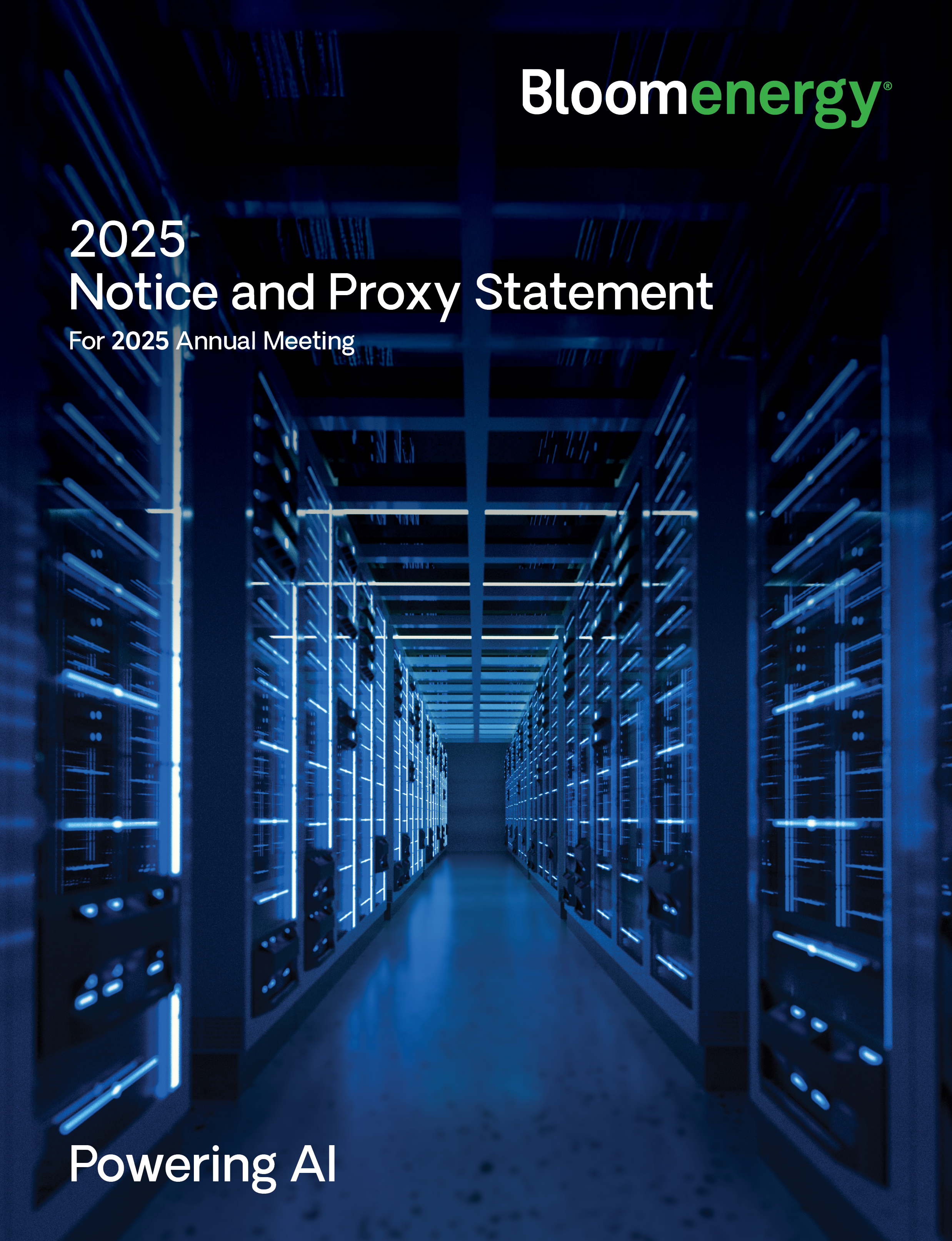














 For
For For
For For
For For
For








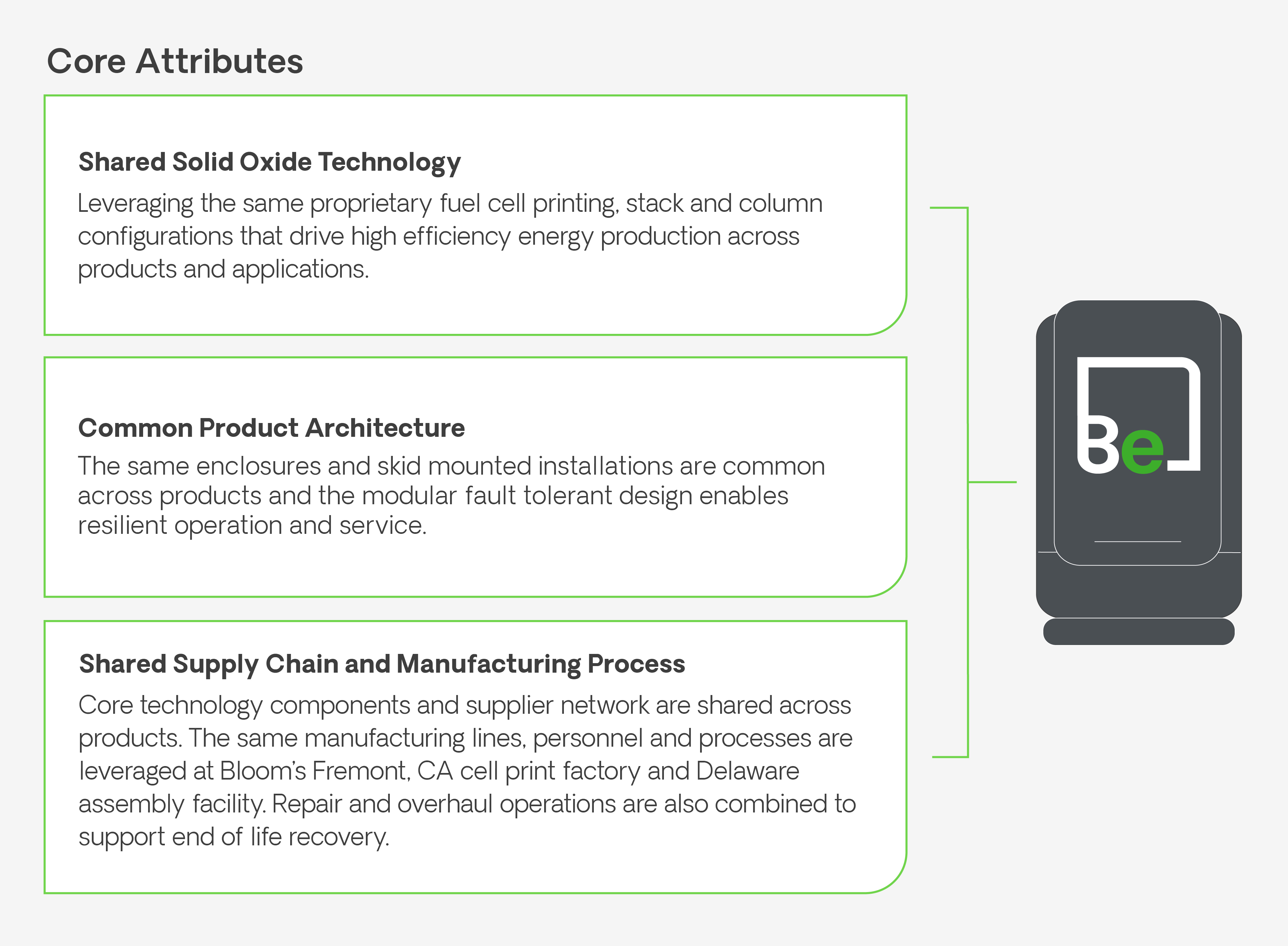











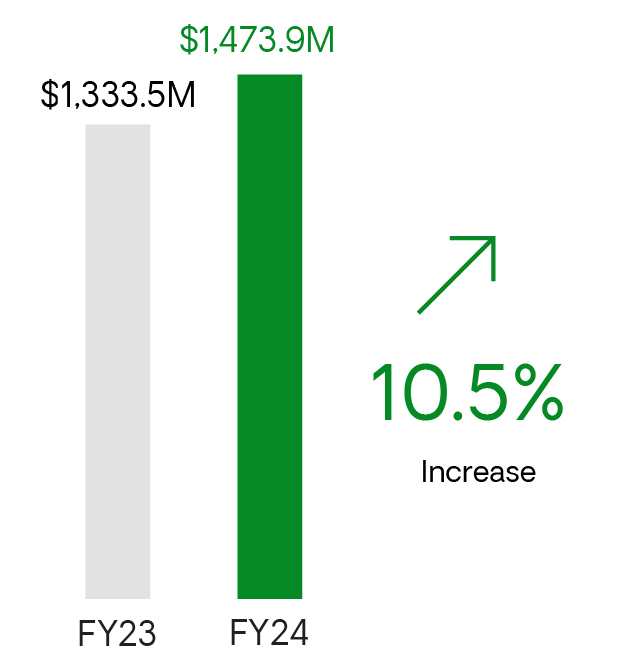
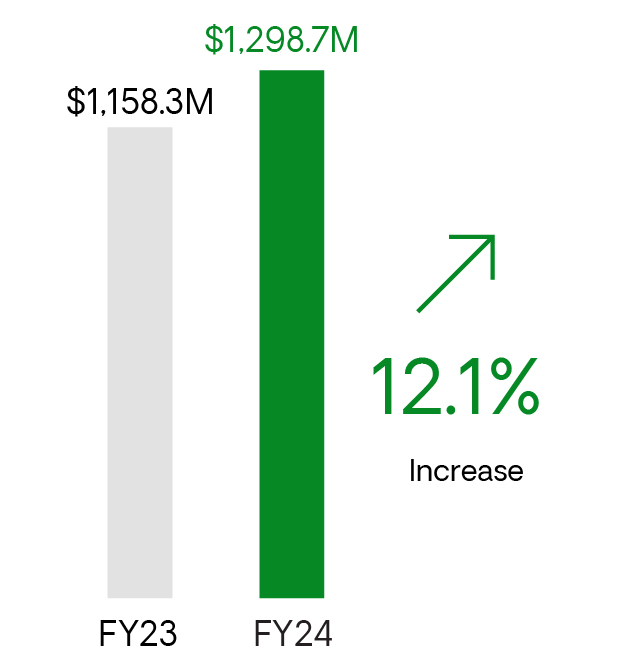
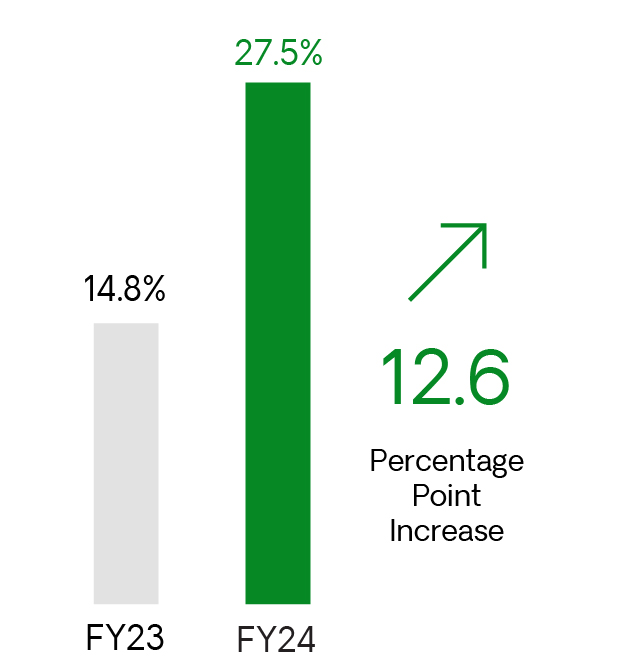
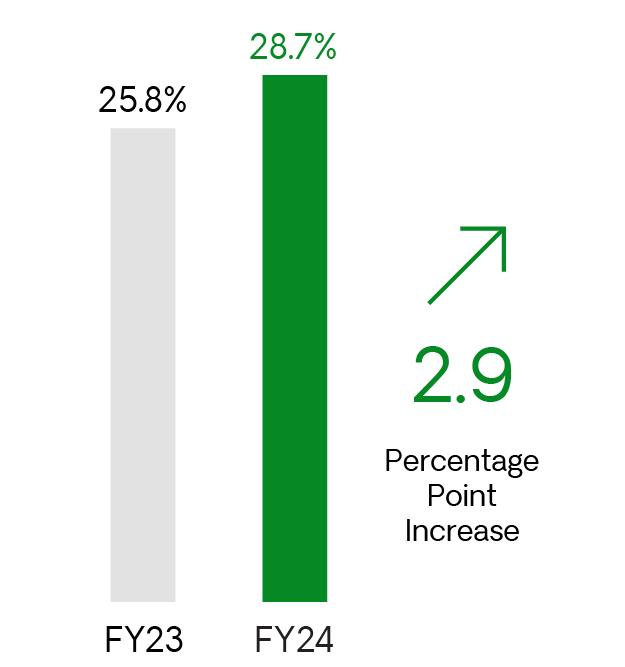
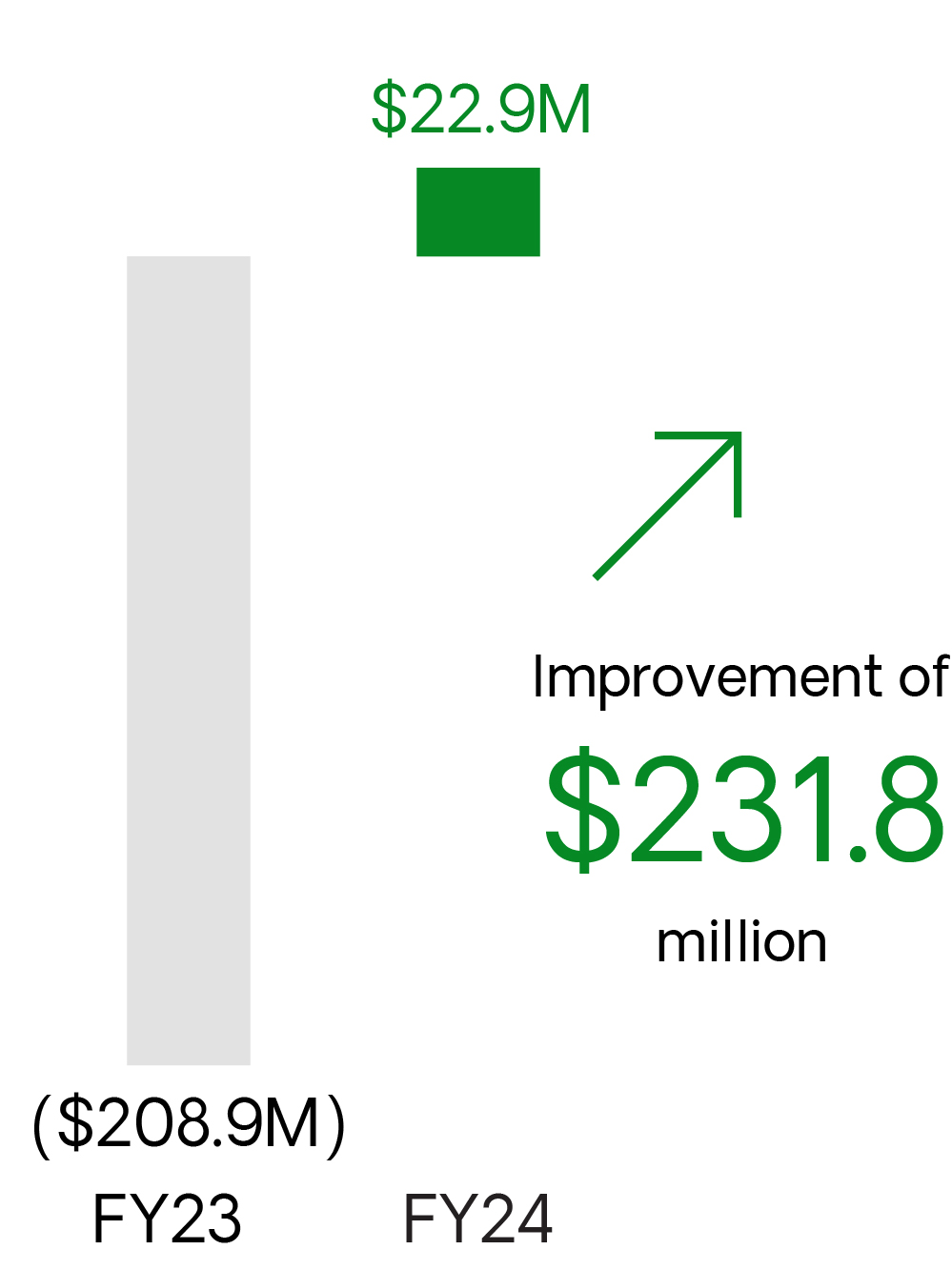
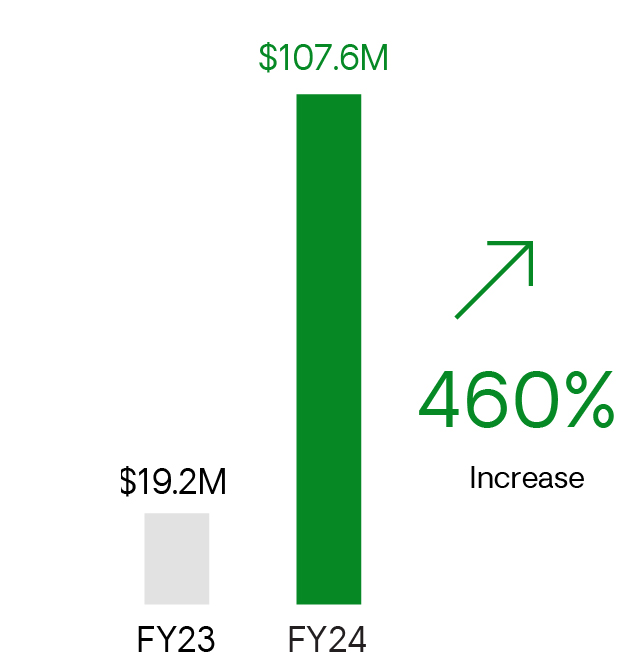
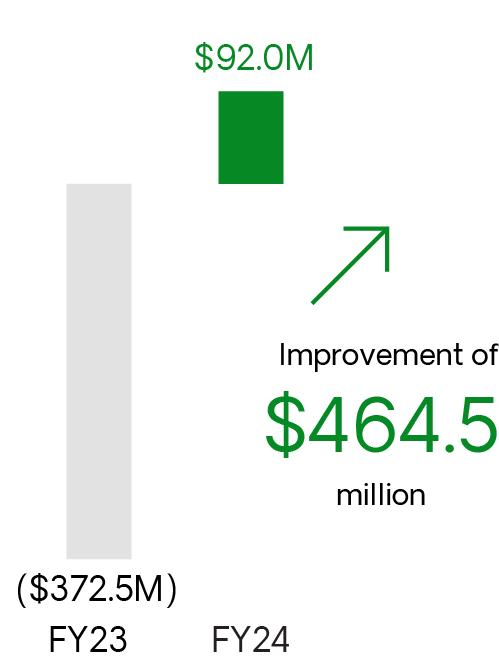




















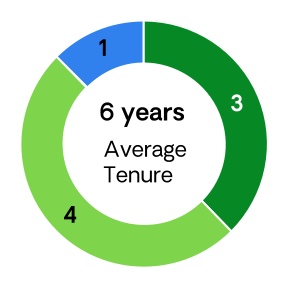



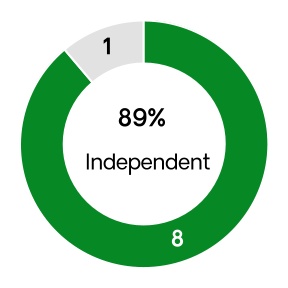








 Strong Lead Independent Director with robust and transparent authority and clearly defined responsibilities
Strong Lead Independent Director with robust and transparent authority and clearly defined responsibilities 100% independent Board committees
100% independent Board committees Majority independent Board (8 out of 9 directors are independent)
Majority independent Board (8 out of 9 directors are independent) Regular executive sessions of independent directors at Board and committee meetings
Regular executive sessions of independent directors at Board and committee meetings Annual Board, committee, and director performance assessments through self-evaluations conducted by an independent third party
Annual Board, committee, and director performance assessments through self-evaluations conducted by an independent third party Annual review of combined chair/CEO leadership structure
Annual review of combined chair/CEO leadership structure Board- and committee-level oversight of sustainability matters and reporting, including a sustainability report that aligns with TCFD and SASB disclosure principles
Board- and committee-level oversight of sustainability matters and reporting, including a sustainability report that aligns with TCFD and SASB disclosure principles Year-round engagement program for proactive outreach to understand stockholder perspectives, including one-on-one meetings and numerous investor relations touchpoints with feedback regularly reported to the Board
Year-round engagement program for proactive outreach to understand stockholder perspectives, including one-on-one meetings and numerous investor relations touchpoints with feedback regularly reported to the Board Regular sessions of directors outside of the planned quarterly meetings
Regular sessions of directors outside of the planned quarterly meetings Overboarding limits on outside board service (including Bloom: 5 boards for directors generally; 3 boards for public company CEO directors)
Overboarding limits on outside board service (including Bloom: 5 boards for directors generally; 3 boards for public company CEO directors) Required resignation if substantial change in job circumstances
Required resignation if substantial change in job circumstances Single class of common stock
Single class of common stock Prohibition on hedging and pledging
Prohibition on hedging and pledging Orientation program for new directors
Orientation program for new directors Long-standing commitment to sustainability
Long-standing commitment to sustainability Robust stock ownership requirements for executive officers and directors
Robust stock ownership requirements for executive officers and directors Clawback policies applicable to cash and equity-based incentive compensation, whether vested or unvested
Clawback policies applicable to cash and equity-based incentive compensation, whether vested or unvested
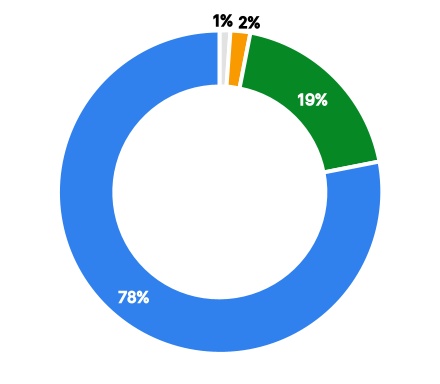




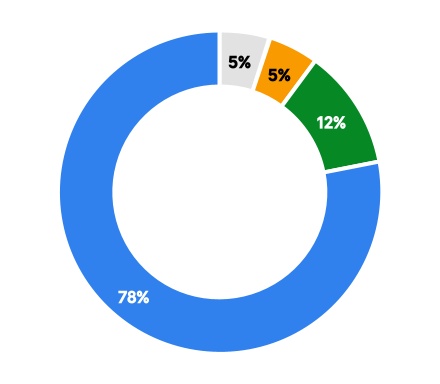











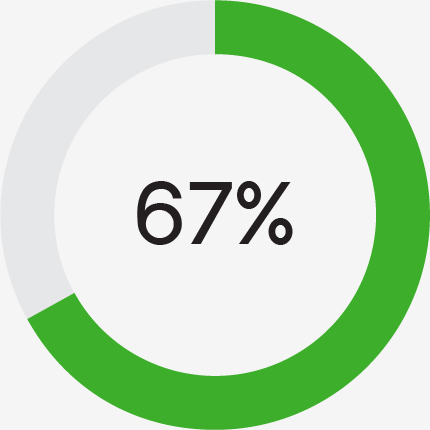



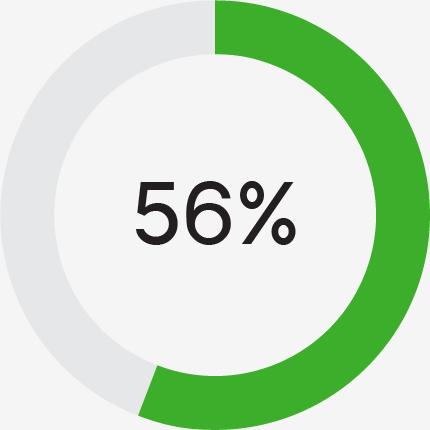
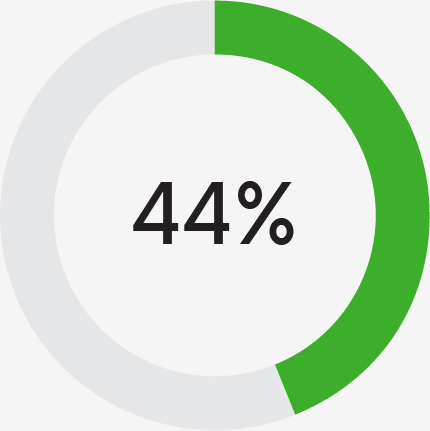
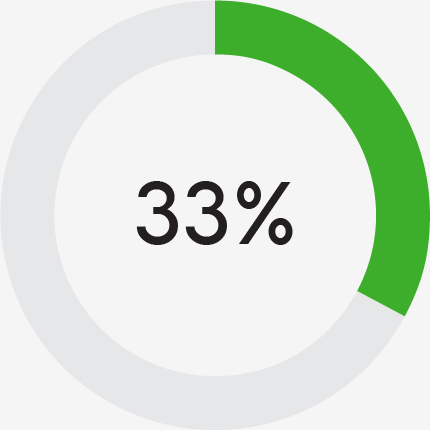





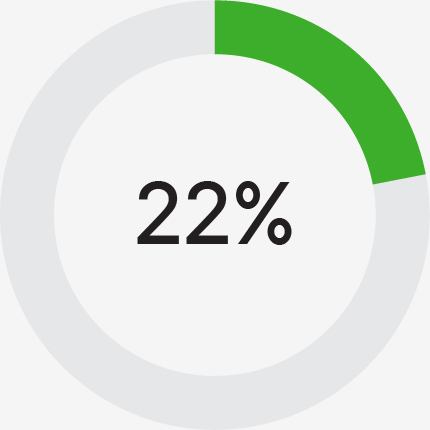





























































































































 Dr. Sridhar’s direct involvement as CEO in our operations, enabling him to communicate knowledgeably, timely, and openly with the Board on short- and long-term objectives, and to identify strategic priorities and recommend ways to execute these strategies. We believe this helps the Board focus on important strategic objectives, yet also understand the challenges we face on a day-to-day basis.
Dr. Sridhar’s direct involvement as CEO in our operations, enabling him to communicate knowledgeably, timely, and openly with the Board on short- and long-term objectives, and to identify strategic priorities and recommend ways to execute these strategies. We believe this helps the Board focus on important strategic objectives, yet also understand the challenges we face on a day-to-day basis. Dr. Sridhar’s knowledge of Bloom Energy and the industry in which it operates, which comes from being a founder of Bloom Energy and our CEO for over 20 years
Dr. Sridhar’s knowledge of Bloom Energy and the industry in which it operates, which comes from being a founder of Bloom Energy and our CEO for over 20 years Dr. Sridhar’s vision for Bloom Energy
Dr. Sridhar’s vision for Bloom Energy The importance of unified leadership to execute and oversee our strategy during this time of growth and evolution in the business and the energy industry
The importance of unified leadership to execute and oversee our strategy during this time of growth and evolution in the business and the energy industry The Board’s overall independence (8/9 directors, or 89%)
The Board’s overall independence (8/9 directors, or 89%) The Lead Independent Director’s strong leadership and meaningful authority over Board governance and operations
The Lead Independent Director’s strong leadership and meaningful authority over Board governance and operations

































































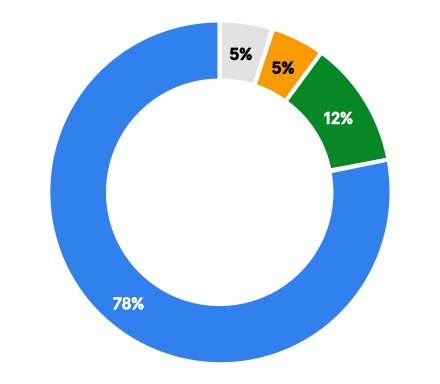





 Compensation Committee Independence – Our Board of Directors maintains a Compensation Committee comprised solely of independent directors.
Compensation Committee Independence – Our Board of Directors maintains a Compensation Committee comprised solely of independent directors. Independent Compensation Committee Advisors – The Compensation Committee engages and retains its own independent advisors and reviews their independence annually.
Independent Compensation Committee Advisors – The Compensation Committee engages and retains its own independent advisors and reviews their independence annually. Annual Compensation Review and Rigorous Oversight – The Compensation Committee conducts an annual review of our executive compensation philosophy and strategy, including a review of the compensation peer group and other information used for comparative purposes. Throughout the year, the Compensation Committee provides rigorous oversight of incentive metrics and the pay/performance relationship.
Annual Compensation Review and Rigorous Oversight – The Compensation Committee conducts an annual review of our executive compensation philosophy and strategy, including a review of the compensation peer group and other information used for comparative purposes. Throughout the year, the Compensation Committee provides rigorous oversight of incentive metrics and the pay/performance relationship. Compensation-Related Risk Assessment – The Compensation Committee conducts an annual evaluation of our compensation programs, policies, and practices, to ensure that they are designed to reflect an appropriate level of risk-taking but do not encourage our employees to take excessive or unnecessary risks that could have a material adverse impact on the Company.
Compensation-Related Risk Assessment – The Compensation Committee conducts an annual evaluation of our compensation programs, policies, and practices, to ensure that they are designed to reflect an appropriate level of risk-taking but do not encourage our employees to take excessive or unnecessary risks that could have a material adverse impact on the Company. Emphasize Performance-Based Incentive Compensation – The Compensation Committee designs our executive compensation program to use performance-based short-term and long-term incentive compensation awards to align the interests of our executive officers with the interests of our stockholders. A significant majority of total compensation is performance-based.
Emphasize Performance-Based Incentive Compensation – The Compensation Committee designs our executive compensation program to use performance-based short-term and long-term incentive compensation awards to align the interests of our executive officers with the interests of our stockholders. A significant majority of total compensation is performance-based. Emphasize Long-Term Equity Compensation – The Compensation Committee uses equity awards to deliver long-term incentive compensation opportunities to our executive officers. These equity awards vest over multi-year periods and may be earned over a multi-year period, supporting long-term alignment of the interests of our executives and stockholders and promoting value creation goals and retention objectives.
Emphasize Long-Term Equity Compensation – The Compensation Committee uses equity awards to deliver long-term incentive compensation opportunities to our executive officers. These equity awards vest over multi-year periods and may be earned over a multi-year period, supporting long-term alignment of the interests of our executives and stockholders and promoting value creation goals and retention objectives. Stock Ownership Policy – We maintain a stock ownership policy for our directors and executive officers which requires each of them to own a specified amount of our shares as a multiple of their base salary or annual board retainer.
Stock Ownership Policy – We maintain a stock ownership policy for our directors and executive officers which requires each of them to own a specified amount of our shares as a multiple of their base salary or annual board retainer. Compensation Recovery Policies – We have adopted policies that provide for the recoupment of cash and equity incentive compensation from our executive officers resulting from fraud, intentional misconduct, or gross negligence, or in the event of a restatement.
Compensation Recovery Policies – We have adopted policies that provide for the recoupment of cash and equity incentive compensation from our executive officers resulting from fraud, intentional misconduct, or gross negligence, or in the event of a restatement. Prohibition on Hedging and Pledging – Under our Insider Trading Policy, we prohibit our executive officers from hedging any Company securities owned by them and from pledging any Company securities owned by them as collateral for a loan.
Prohibition on Hedging and Pledging – Under our Insider Trading Policy, we prohibit our executive officers from hedging any Company securities owned by them and from pledging any Company securities owned by them as collateral for a loan. Succession Planning – Our Board of Directors reviews on an annual basis our succession strategies and plans for our most critical positions.
Succession Planning – Our Board of Directors reviews on an annual basis our succession strategies and plans for our most critical positions. No Single Trigger Equity Acceleration Upon a Change of Control – Our executive officers’ Change of Control Agreements require a double trigger (termination following the change of control) to accelerate vesting of equity awards.
No Single Trigger Equity Acceleration Upon a Change of Control – Our executive officers’ Change of Control Agreements require a double trigger (termination following the change of control) to accelerate vesting of equity awards. No Supplemental Executive Retirement or Defined Benefit Pension Plan – Other than our Section 401(k) plan generally available to all employees in the U.S., we do not offer a supplemental executive retirement plan or a defined benefit pension plan for our executive officers.
No Supplemental Executive Retirement or Defined Benefit Pension Plan – Other than our Section 401(k) plan generally available to all employees in the U.S., we do not offer a supplemental executive retirement plan or a defined benefit pension plan for our executive officers. No Tax “Gross-Ups” or Payments – We do not provide any “gross-ups” or tax payments in connection with any compensation element for our executive officers, other than our executive health plan. This means we do not provide any excise tax “gross-up” or tax reimbursement in connection with any change of control payments or benefits.
No Tax “Gross-Ups” or Payments – We do not provide any “gross-ups” or tax payments in connection with any compensation element for our executive officers, other than our executive health plan. This means we do not provide any excise tax “gross-up” or tax reimbursement in connection with any change of control payments or benefits. No Unearned Dividends – We do not pay dividends or dividend equivalents on unvested or unearned RSU or PSU awards.
No Unearned Dividends – We do not pay dividends or dividend equivalents on unvested or unearned RSU or PSU awards. No Stock Option Repricing – We do not retroactively adjust the exercise price of previously granted stock options.
No Stock Option Repricing – We do not retroactively adjust the exercise price of previously granted stock options.























